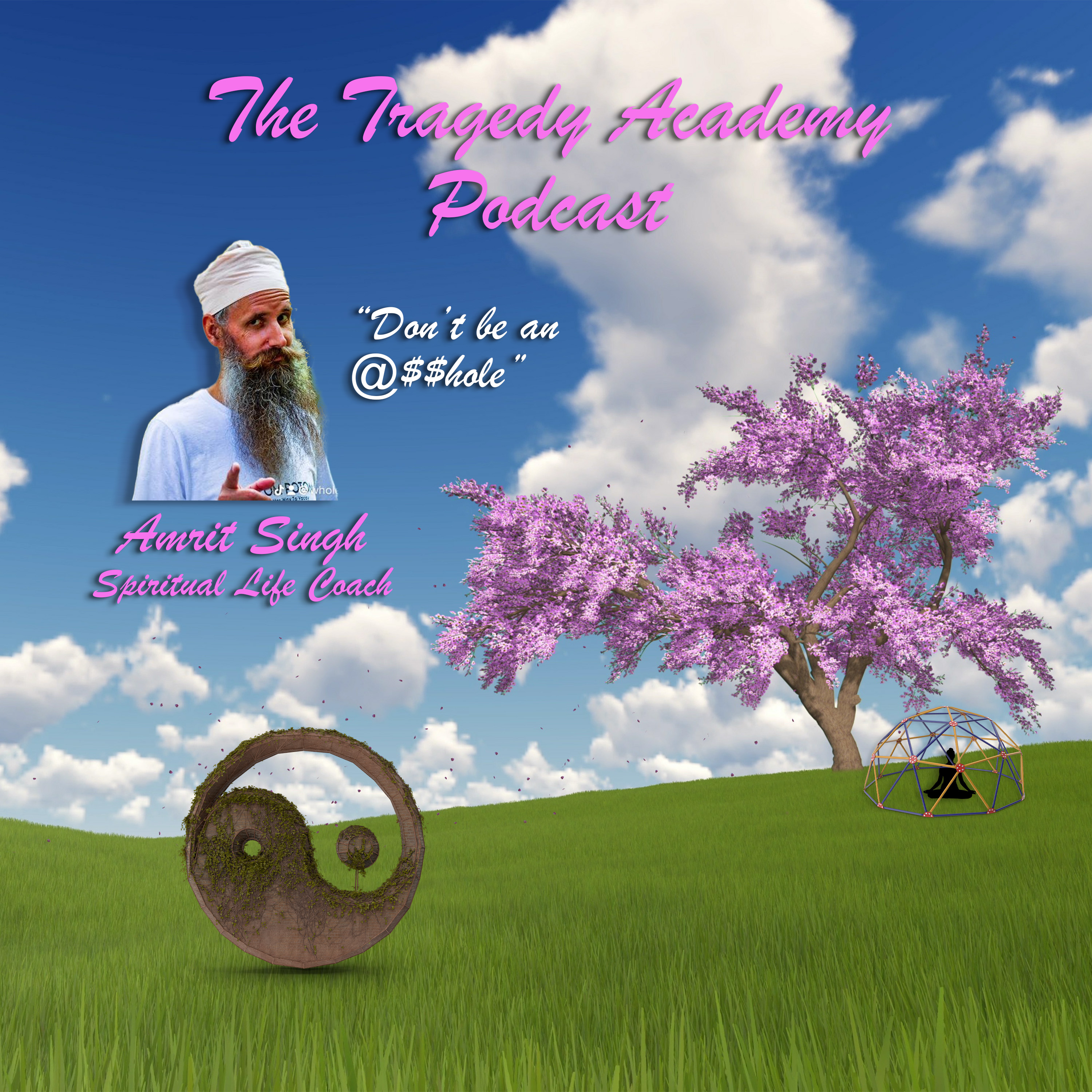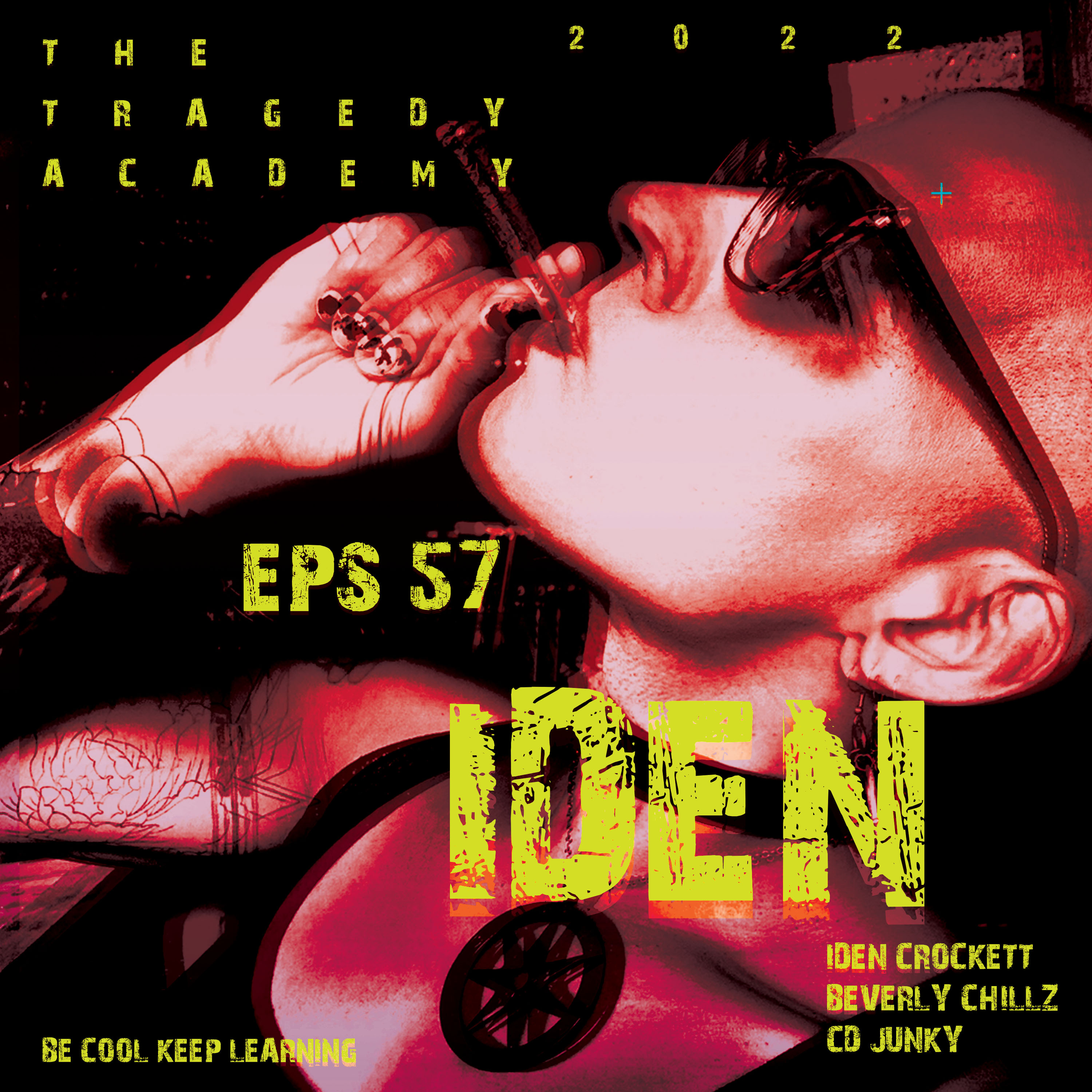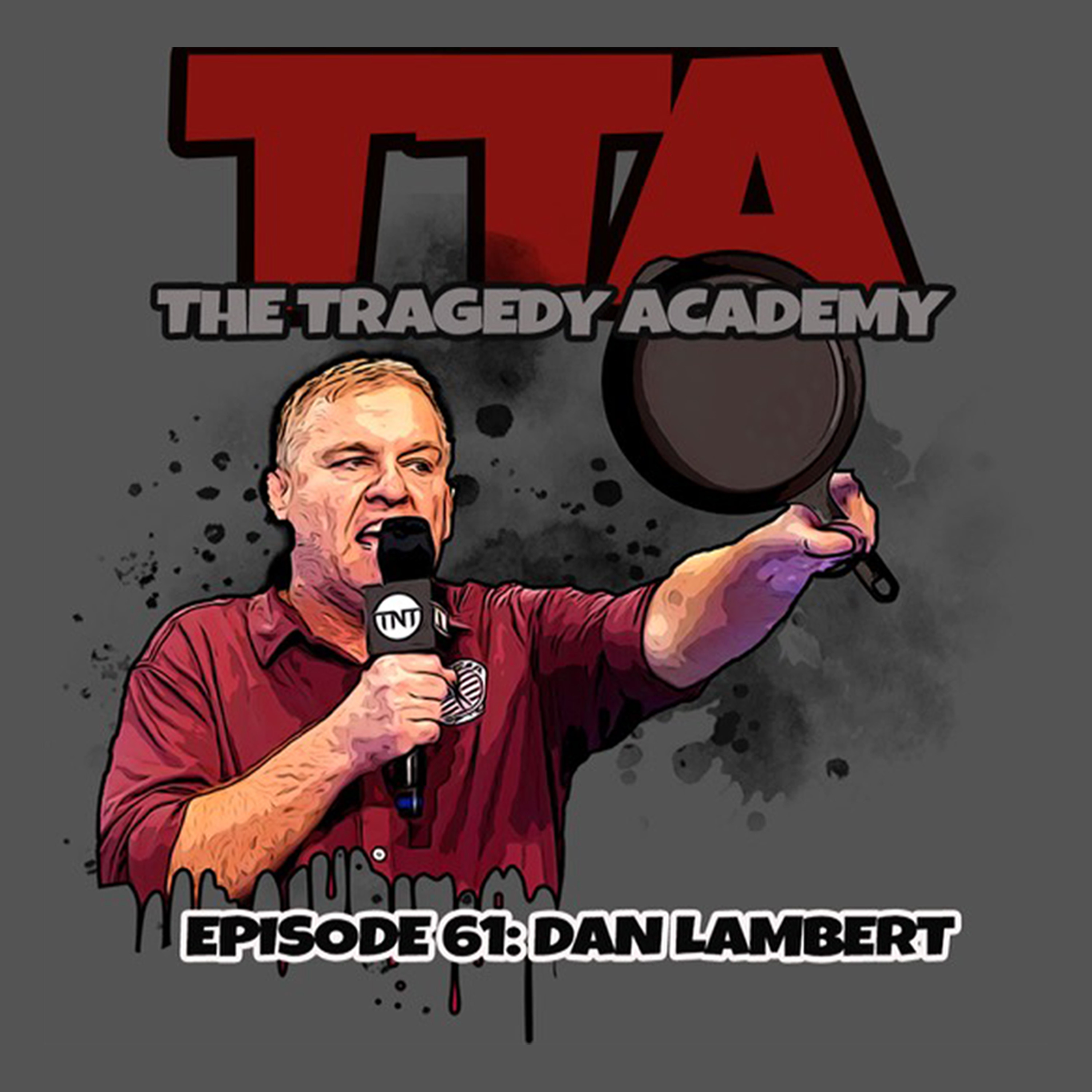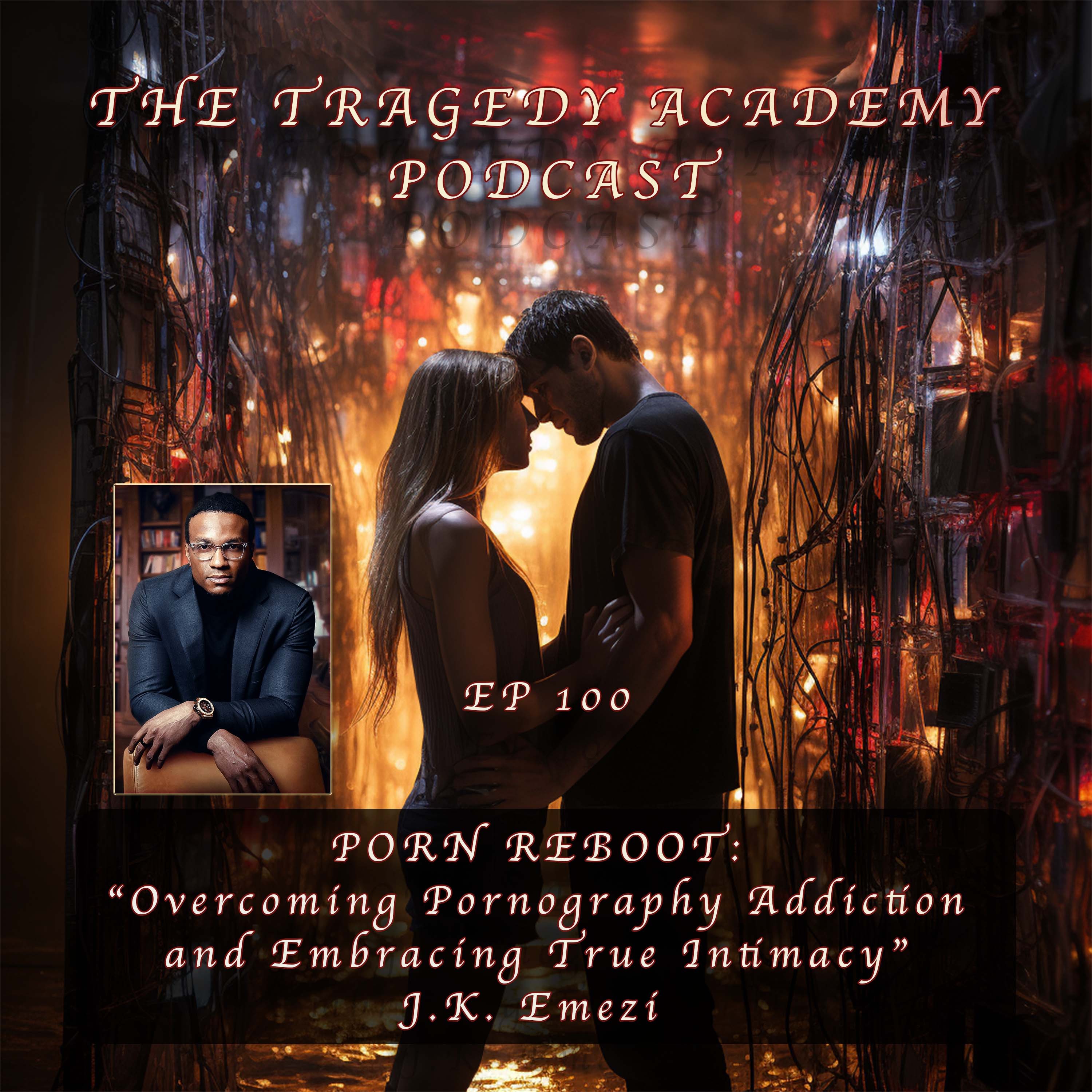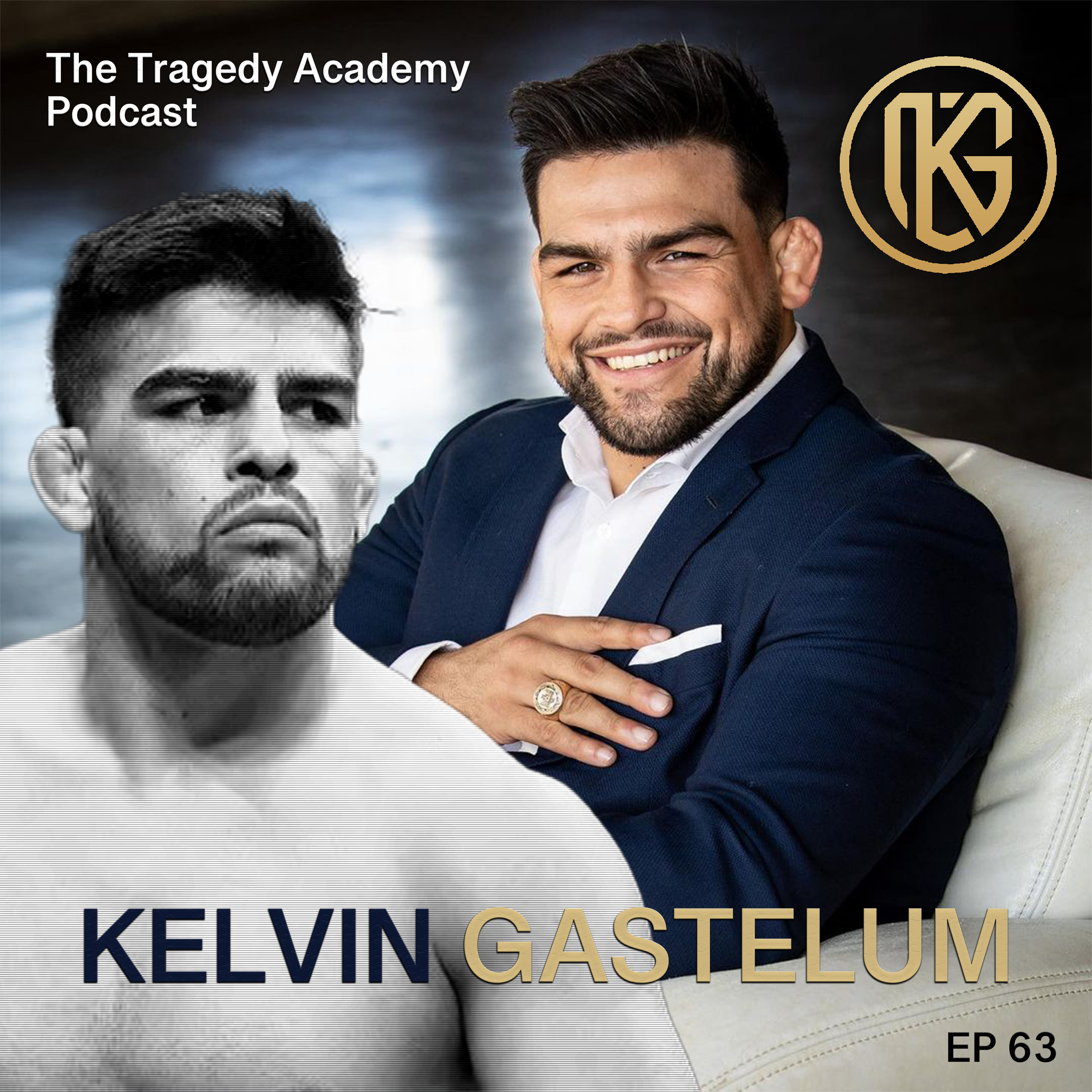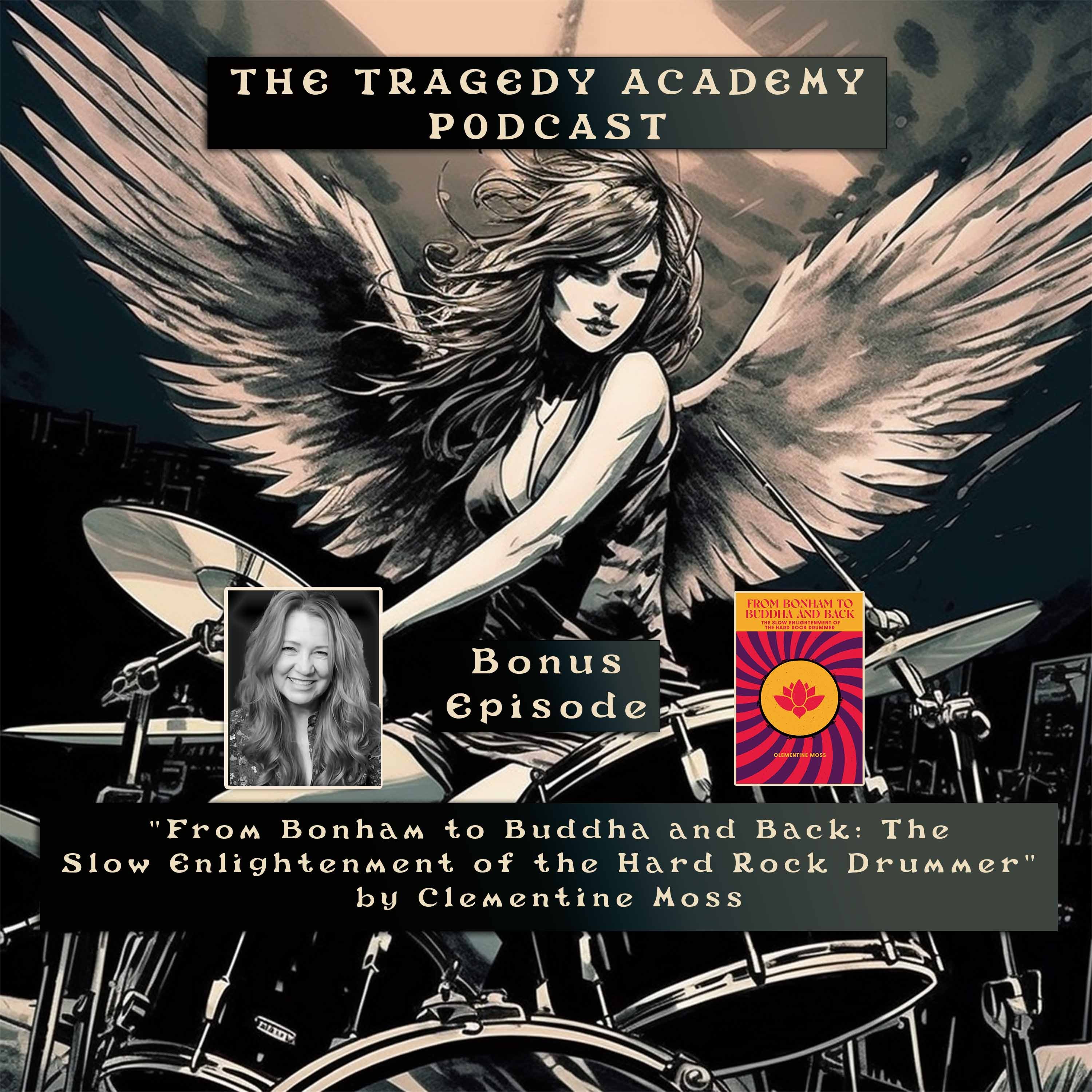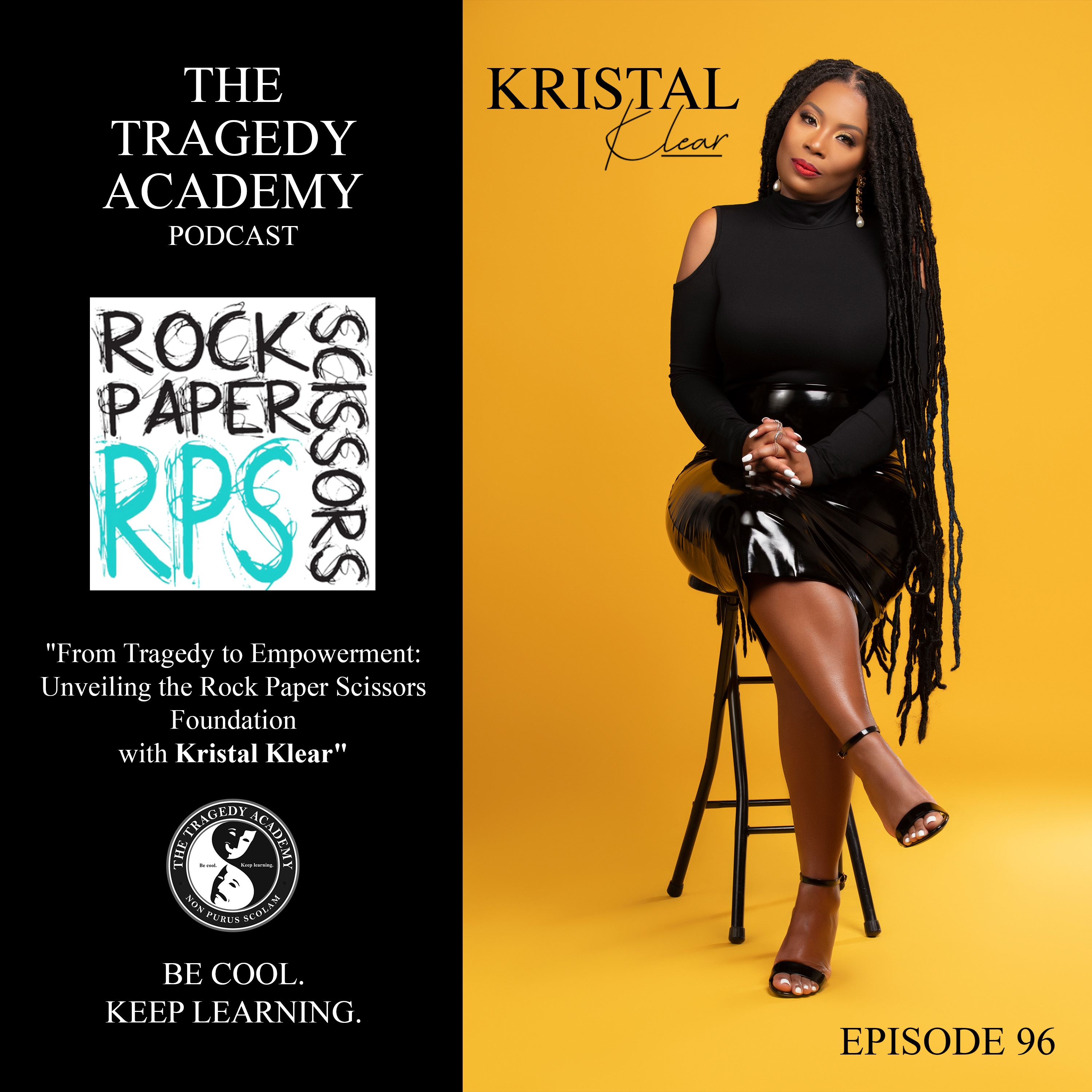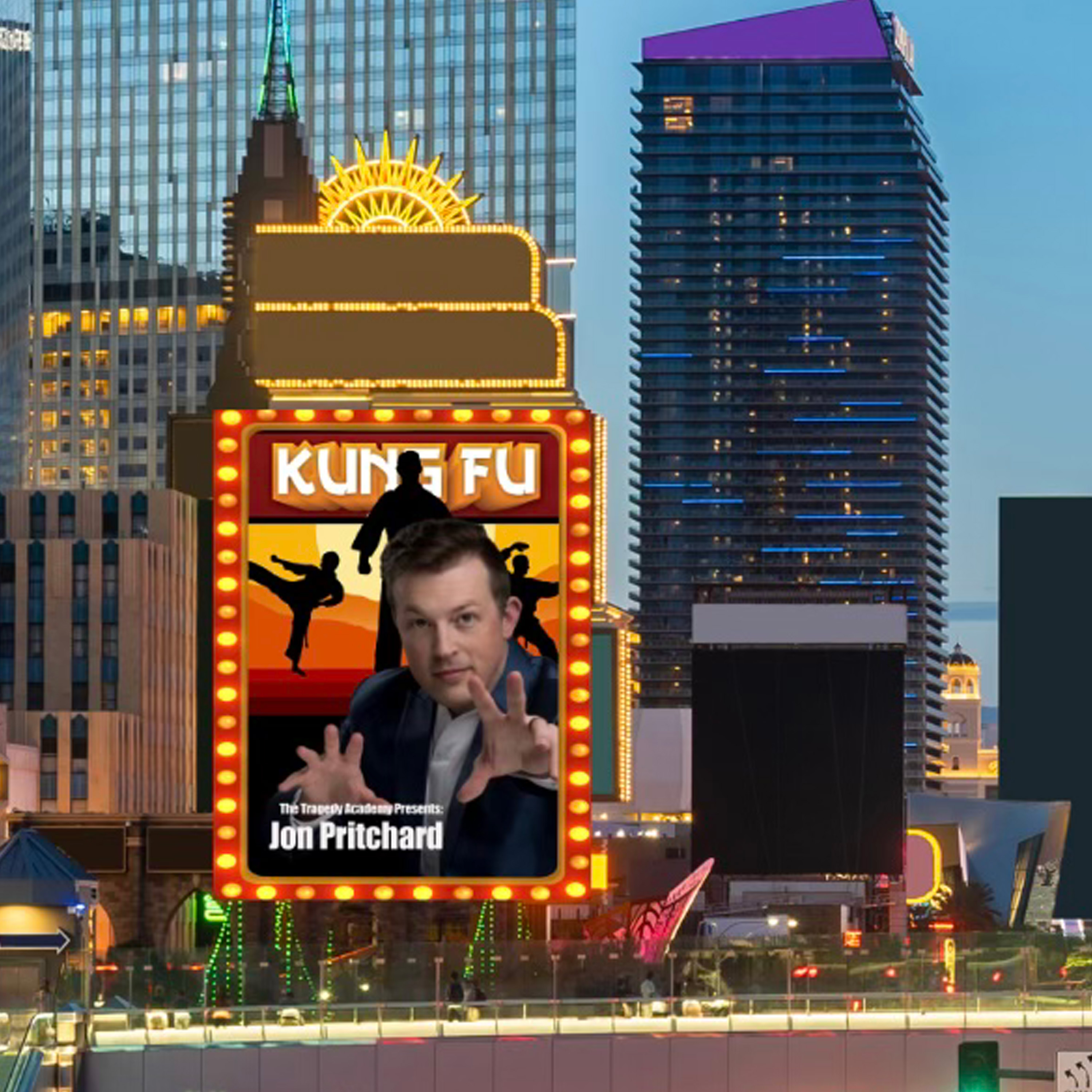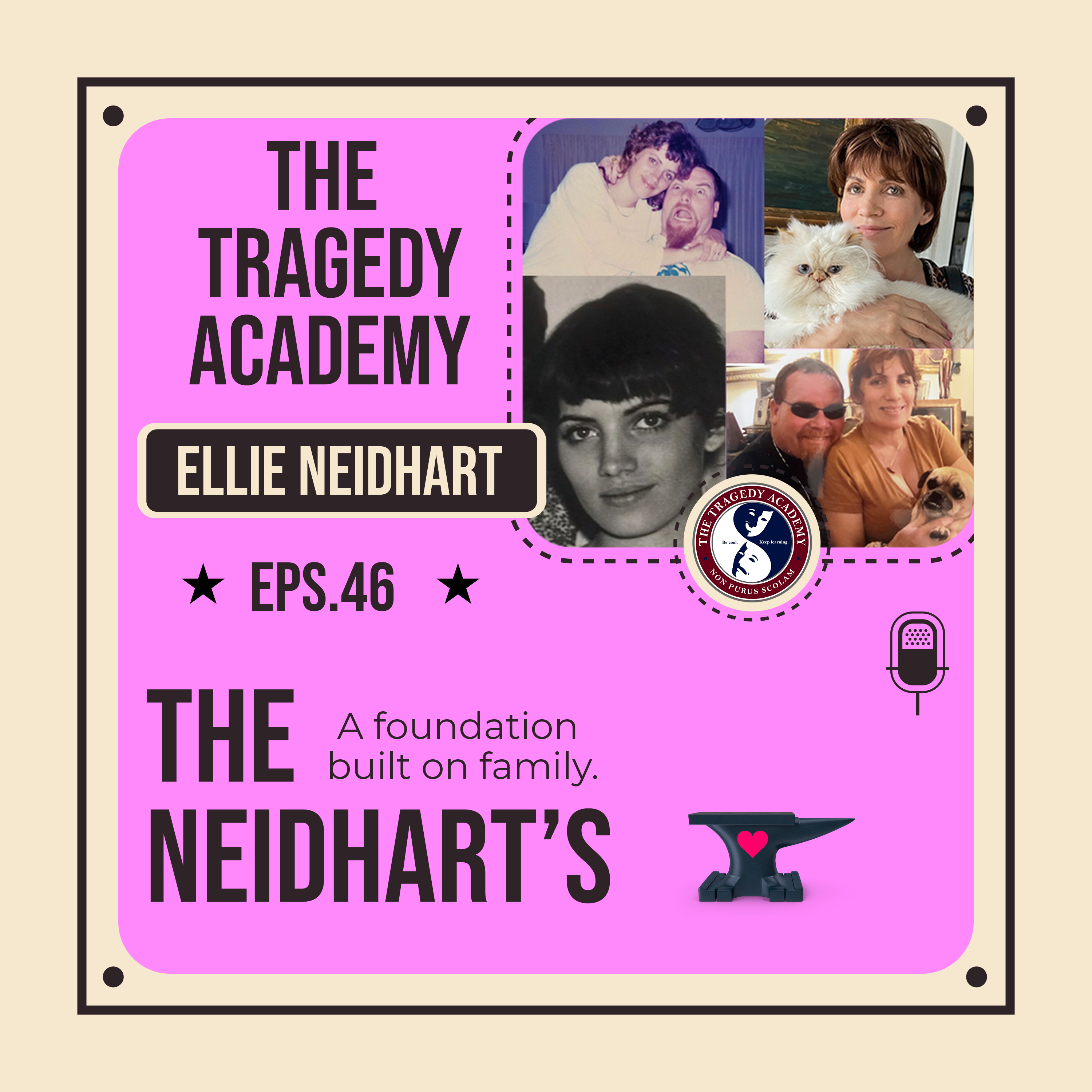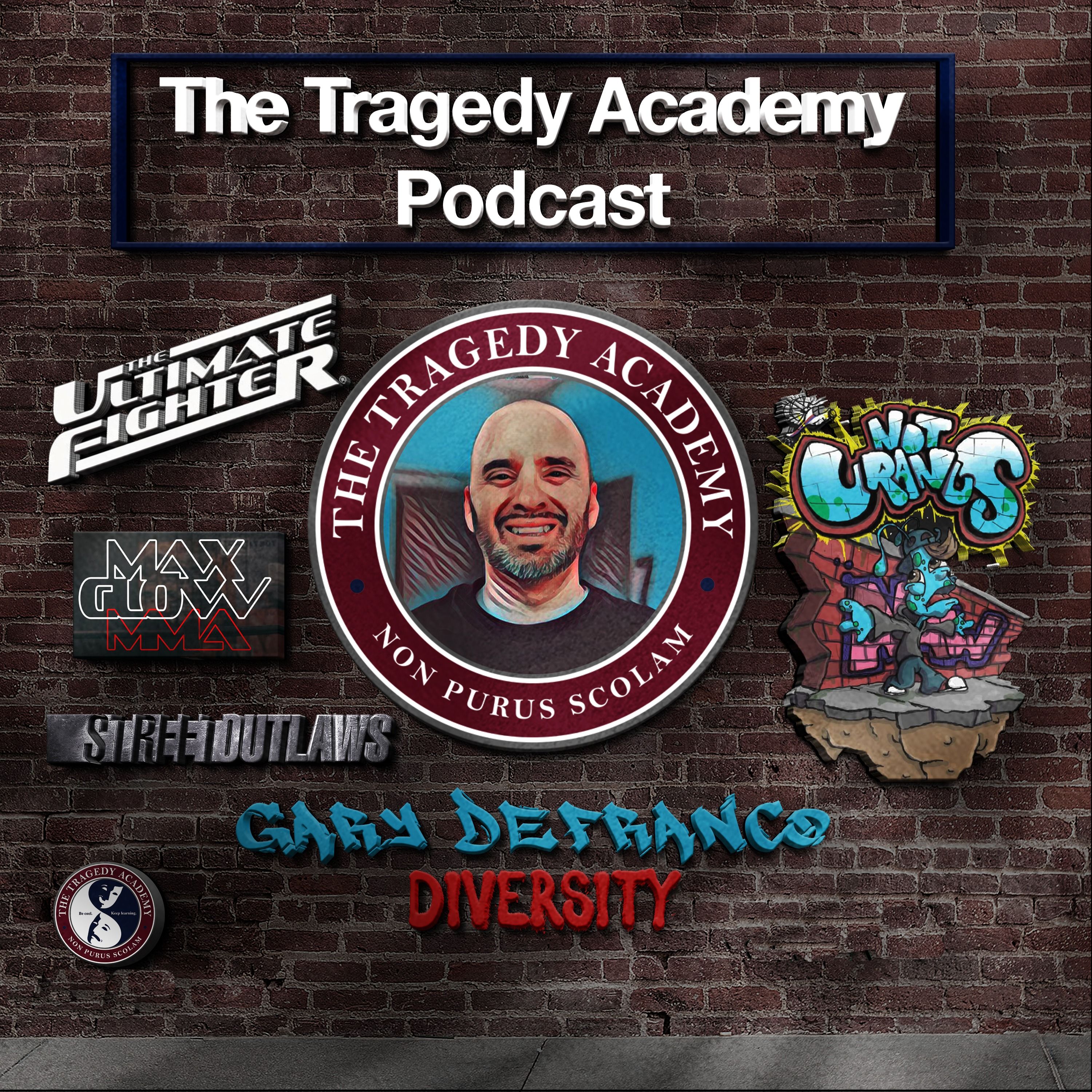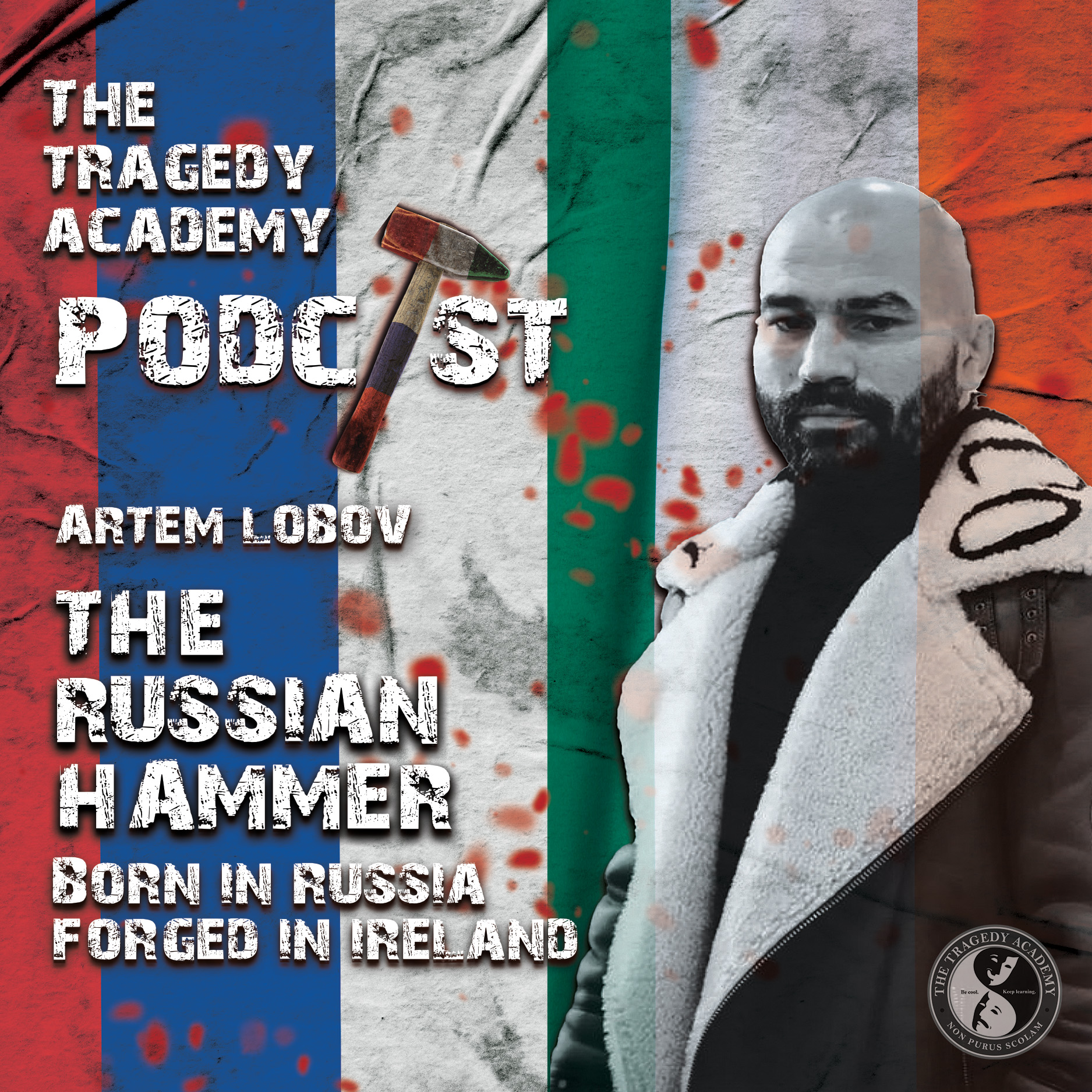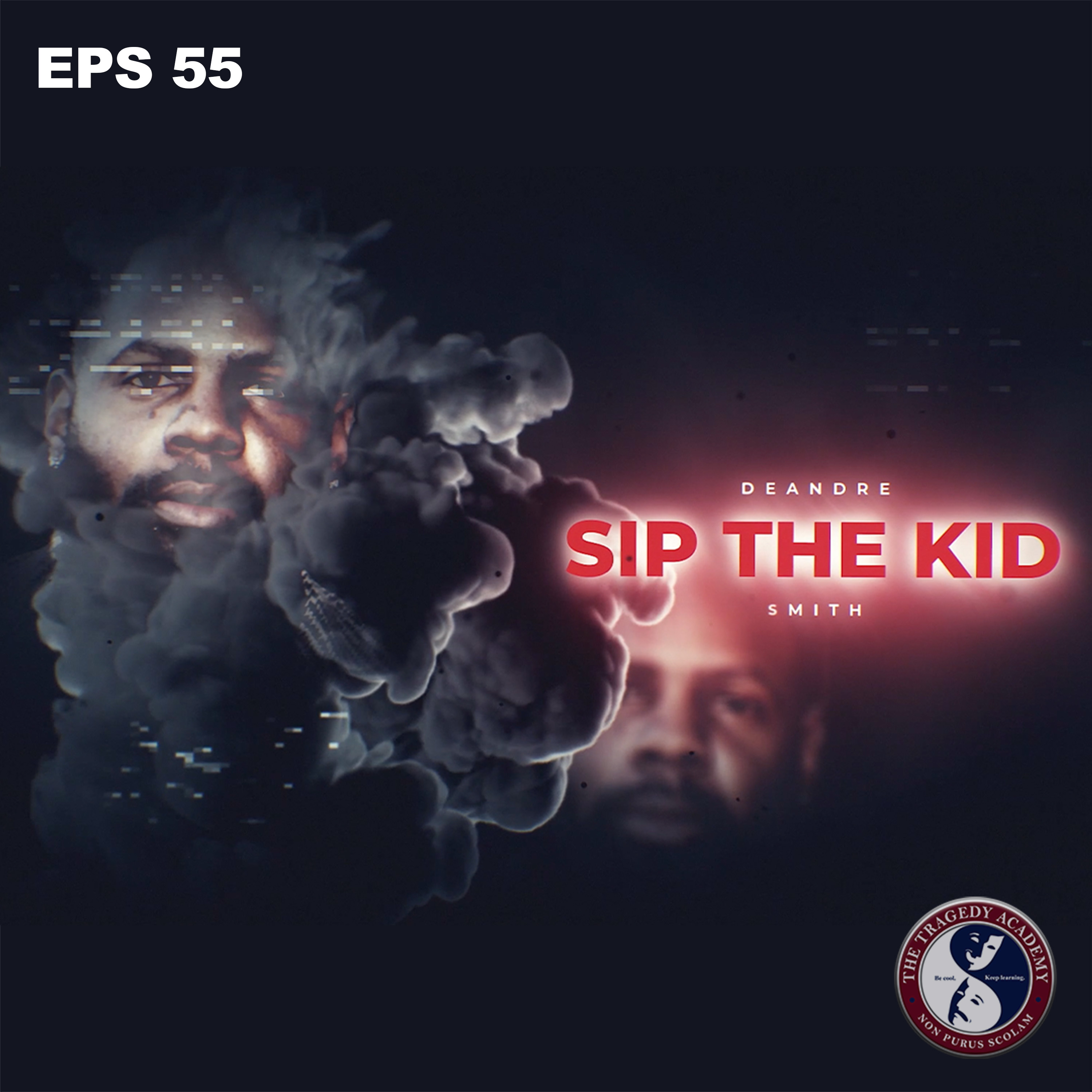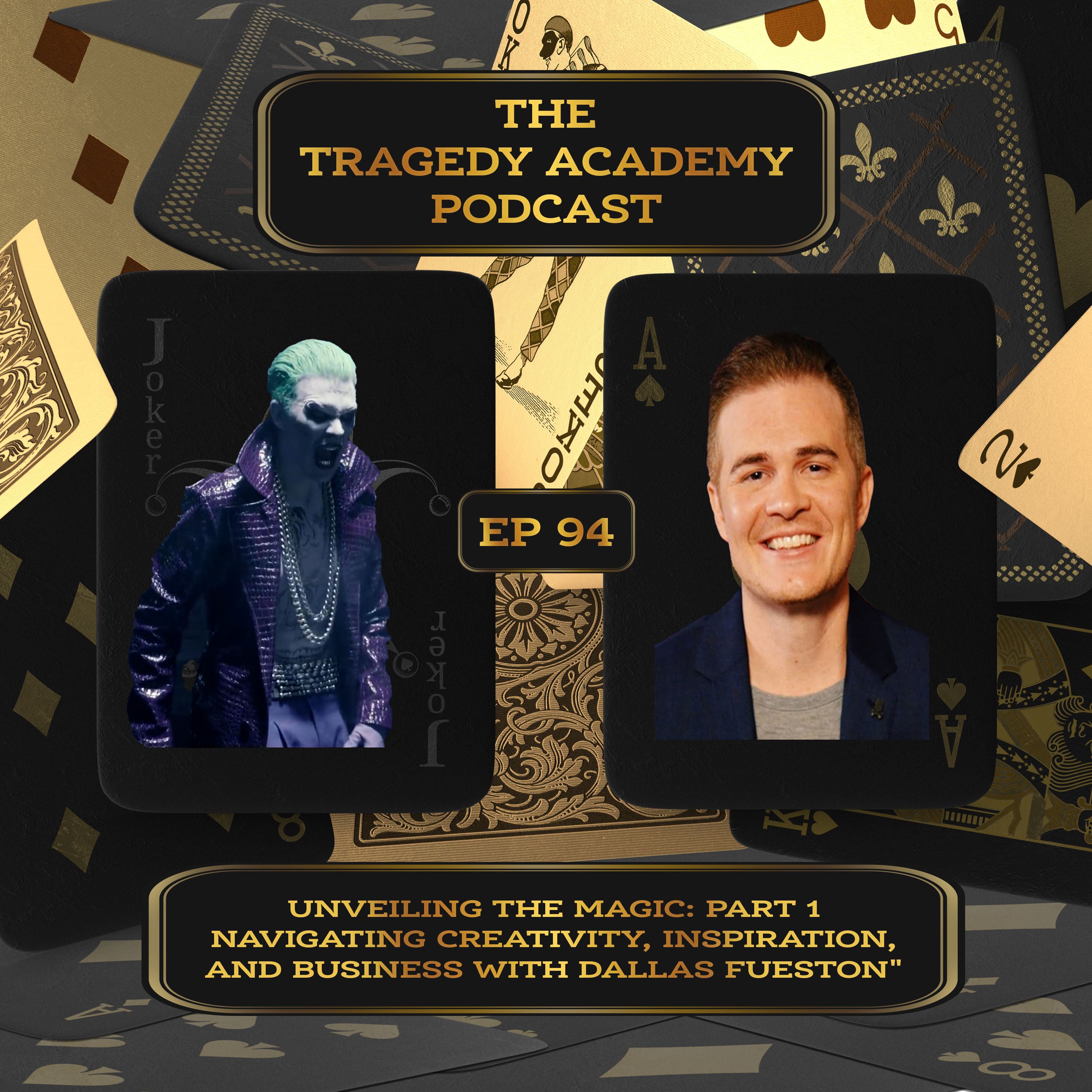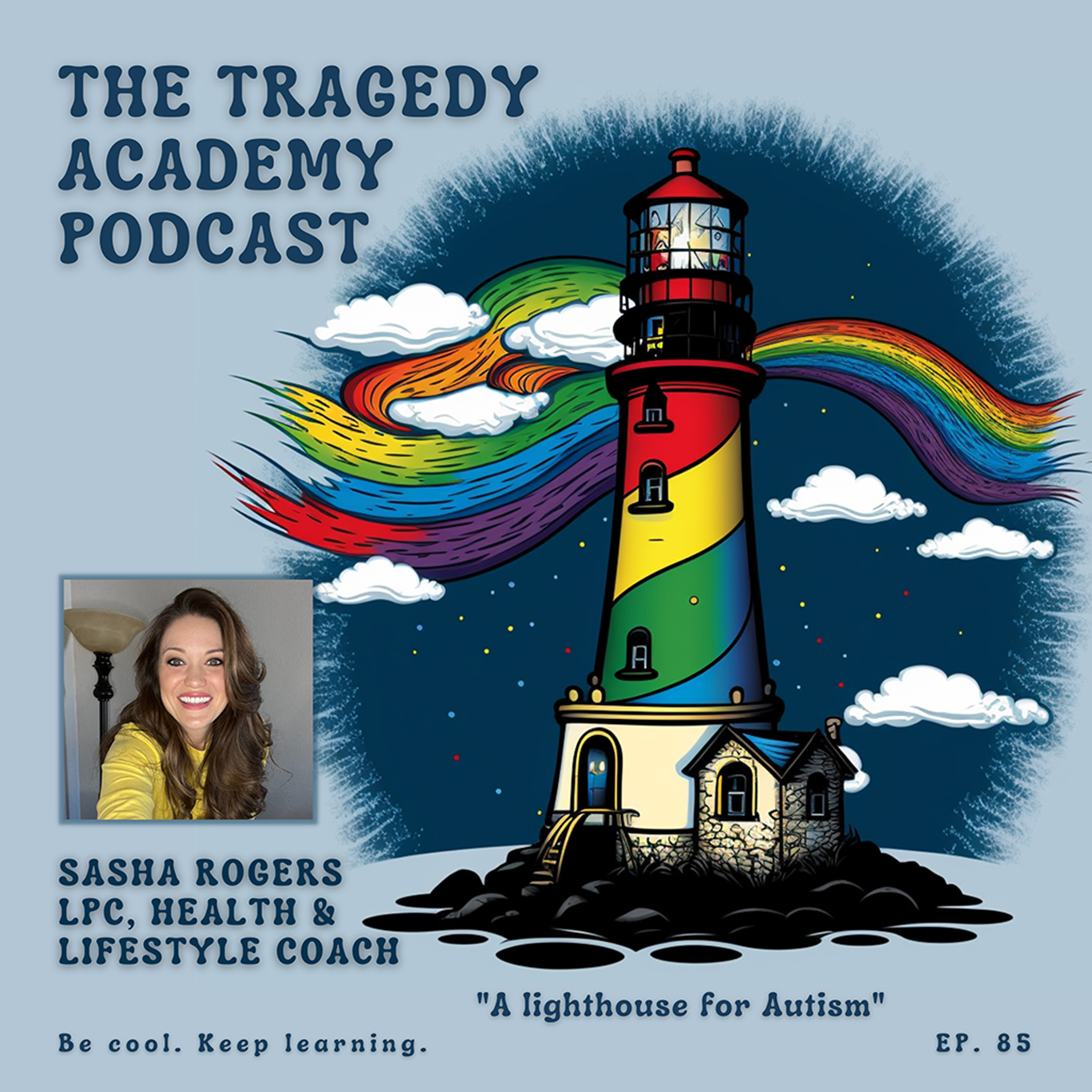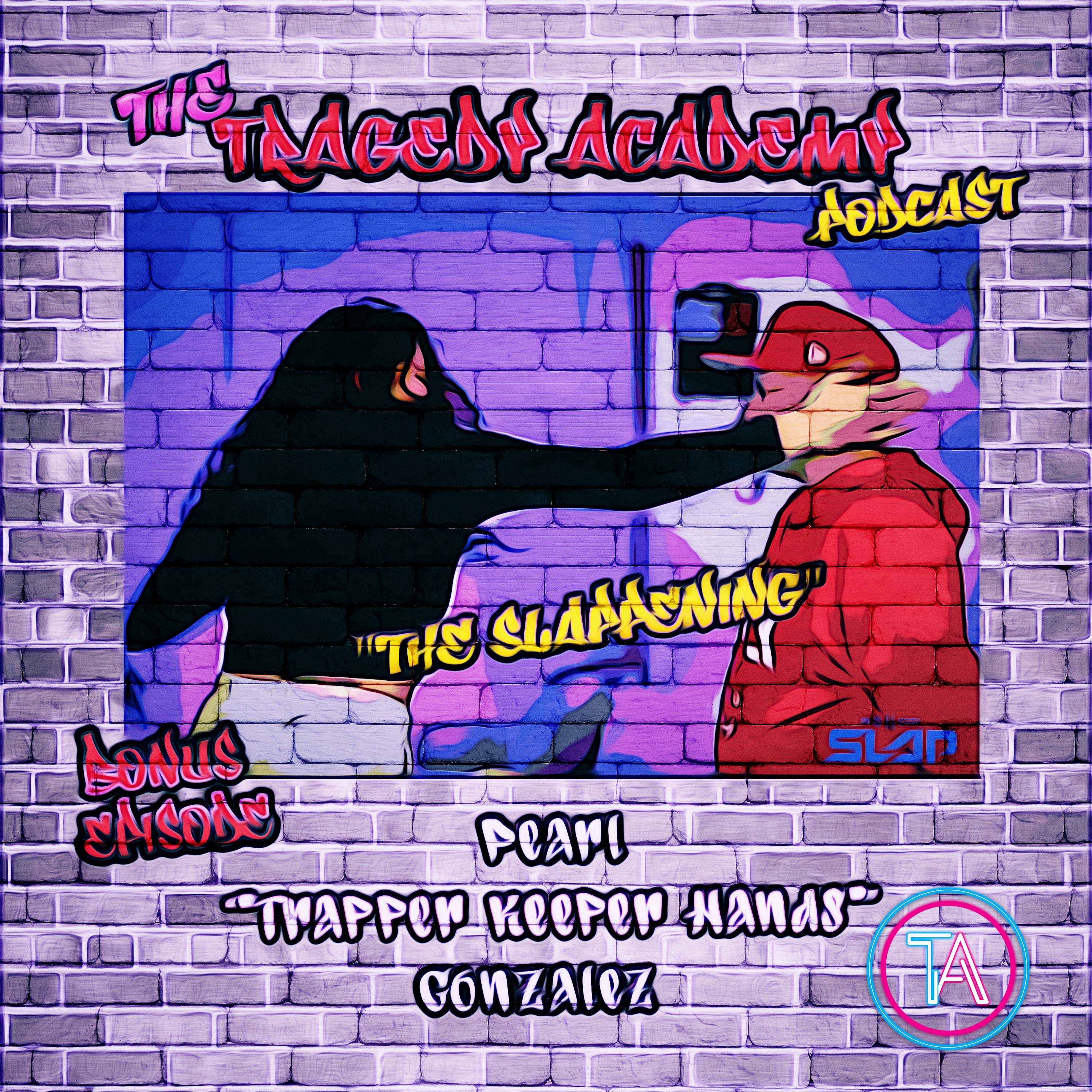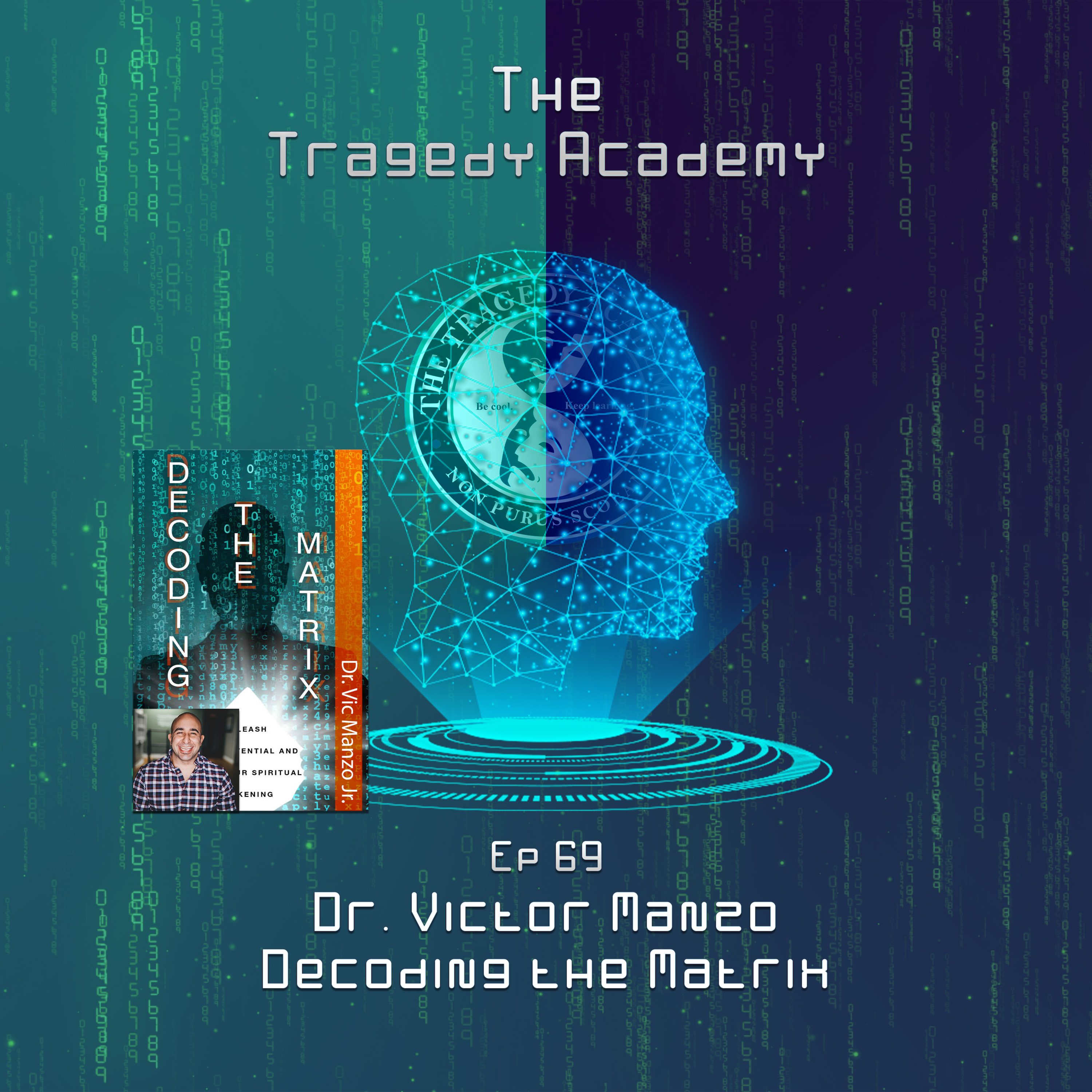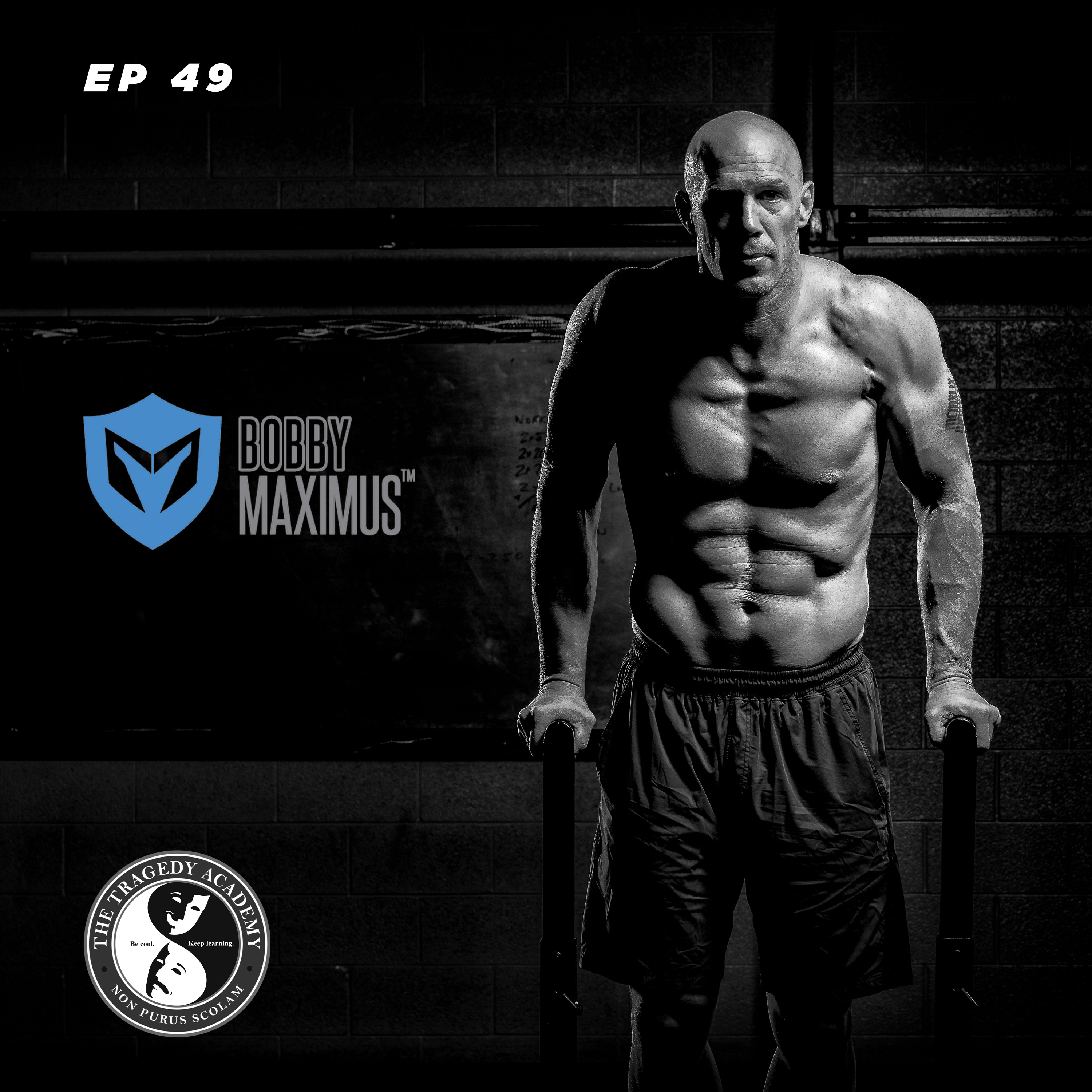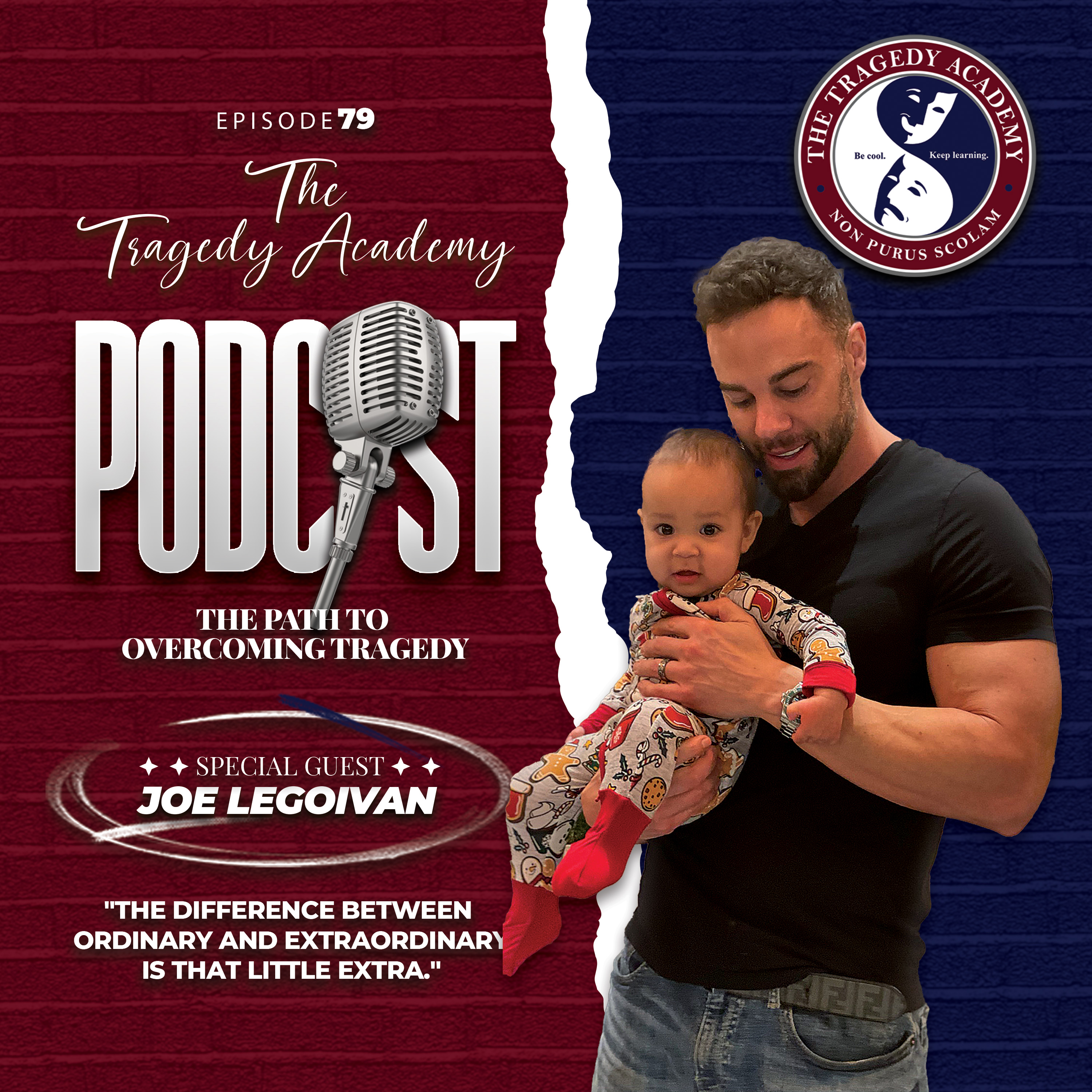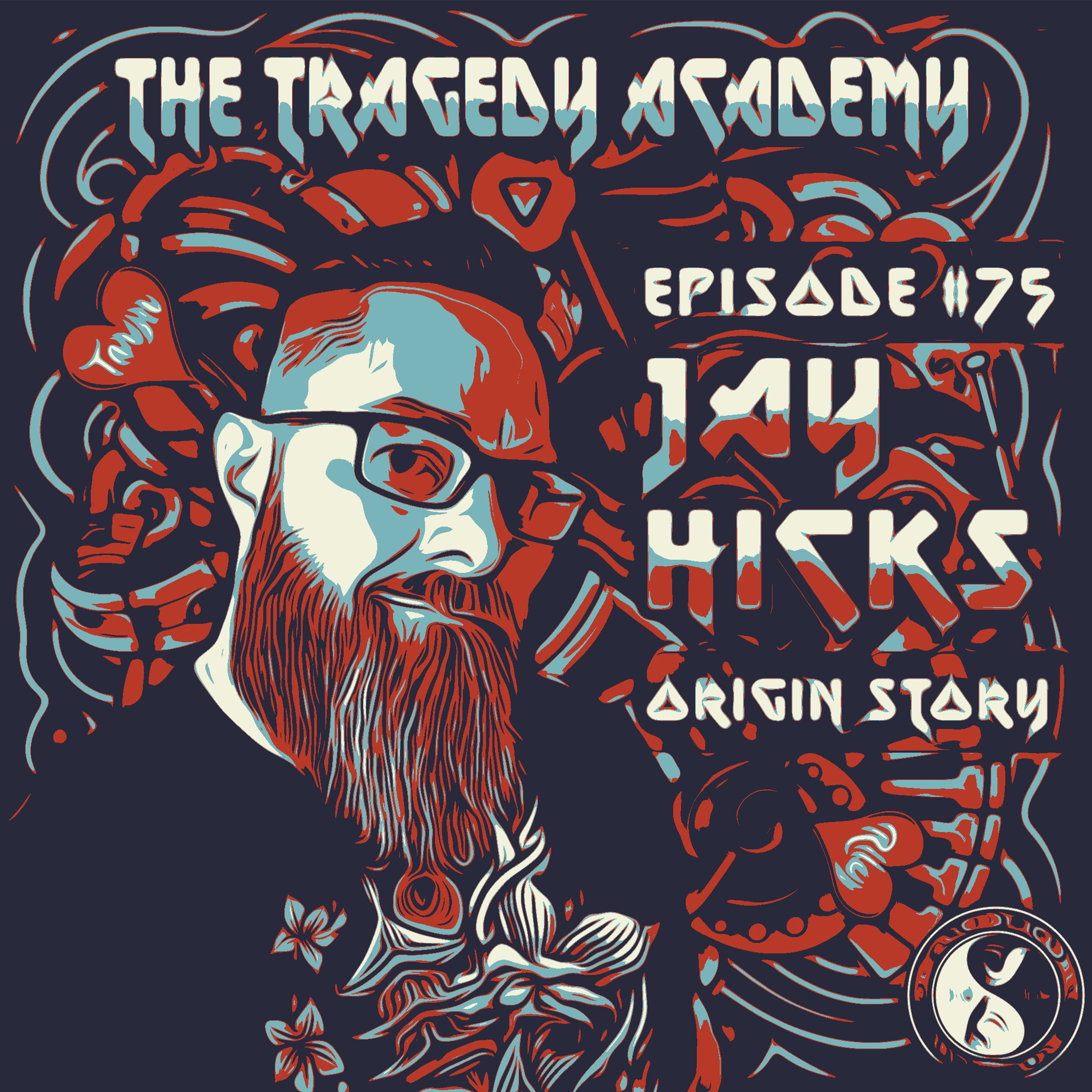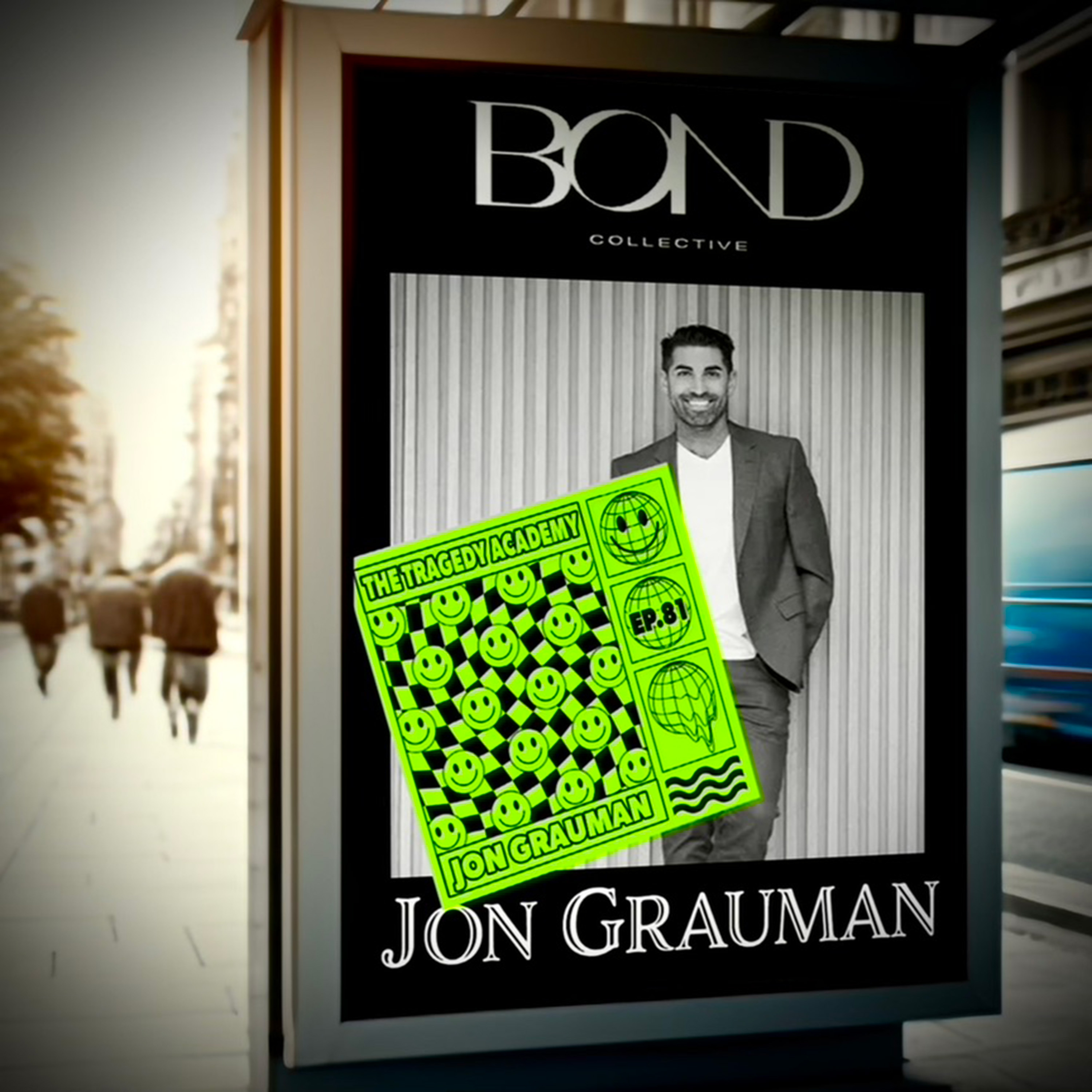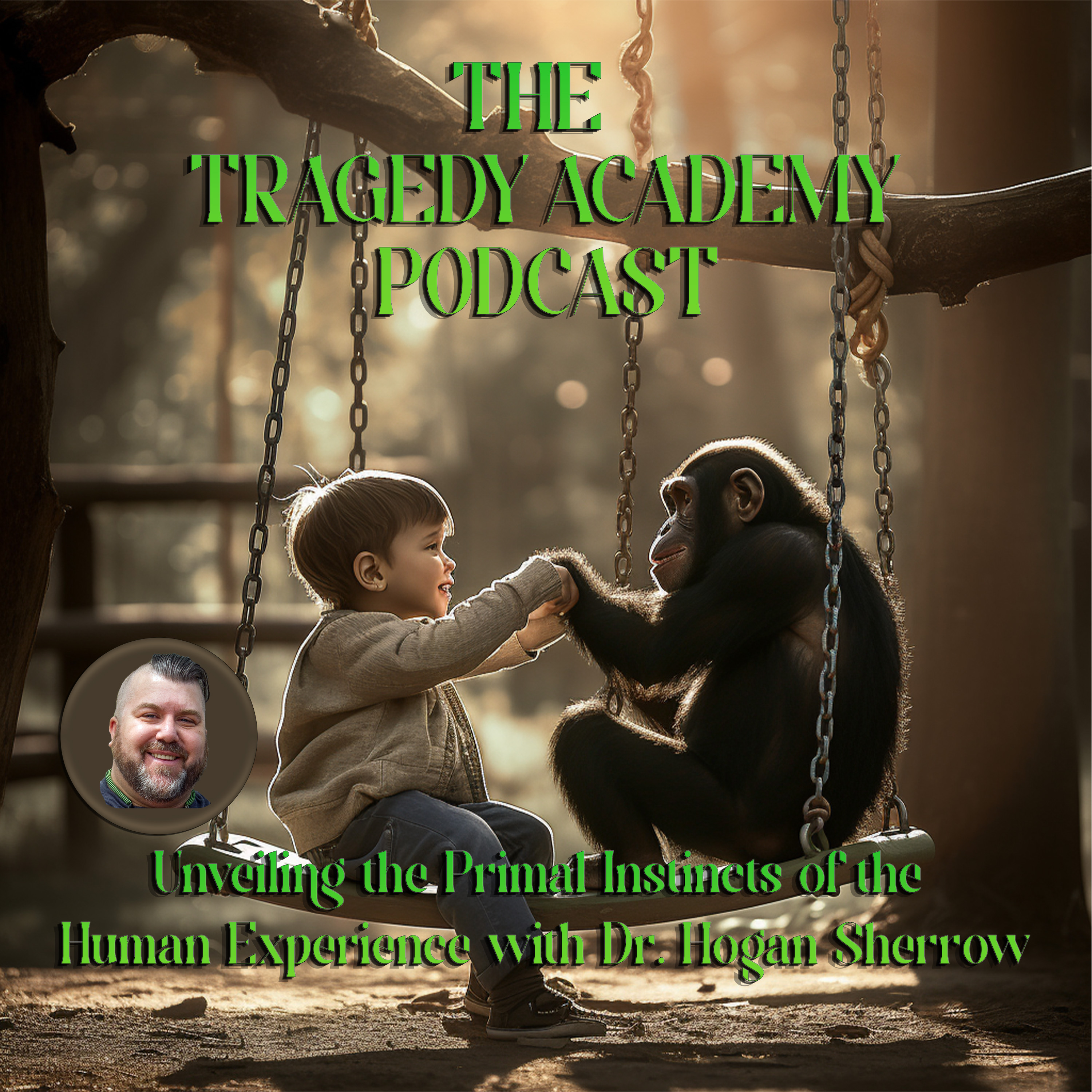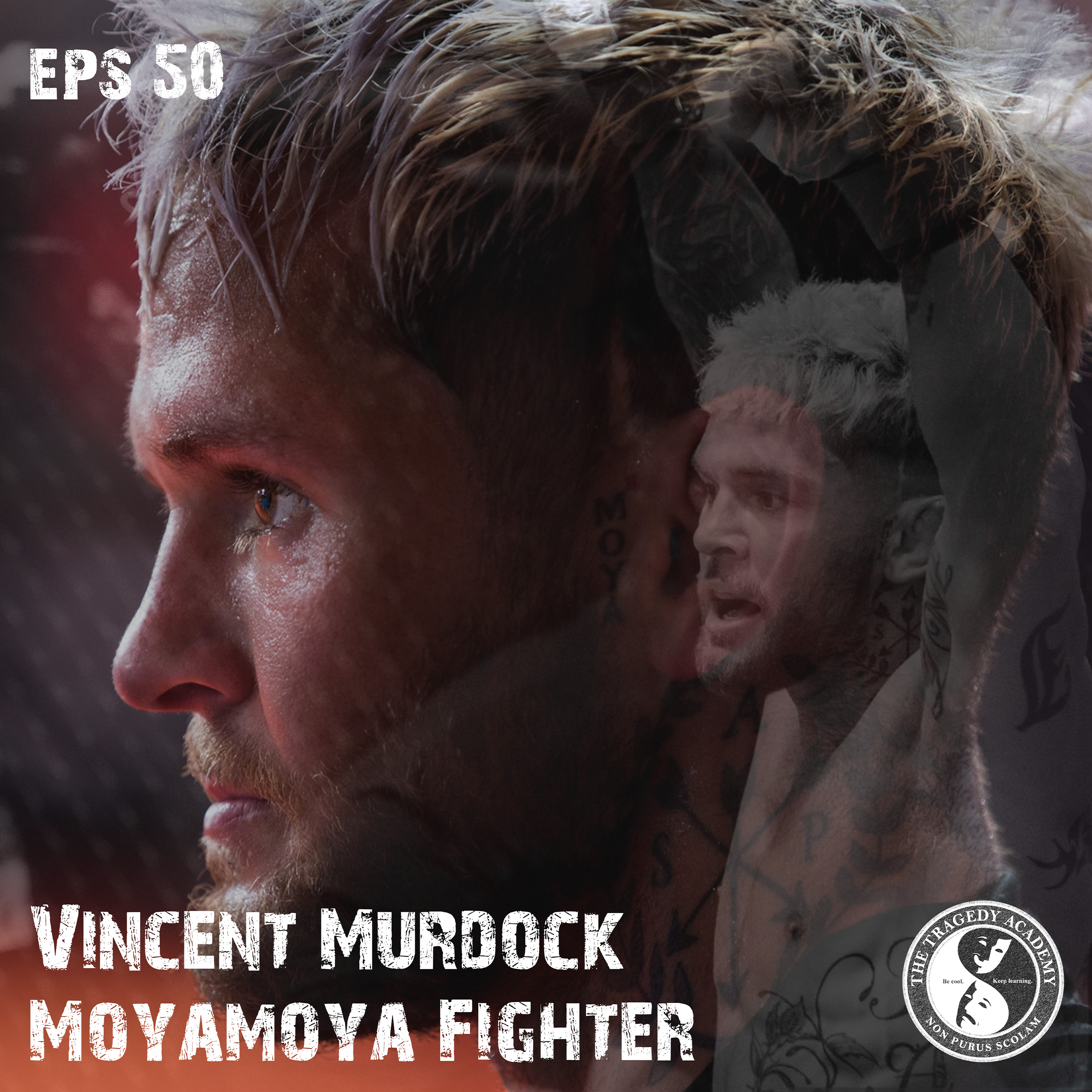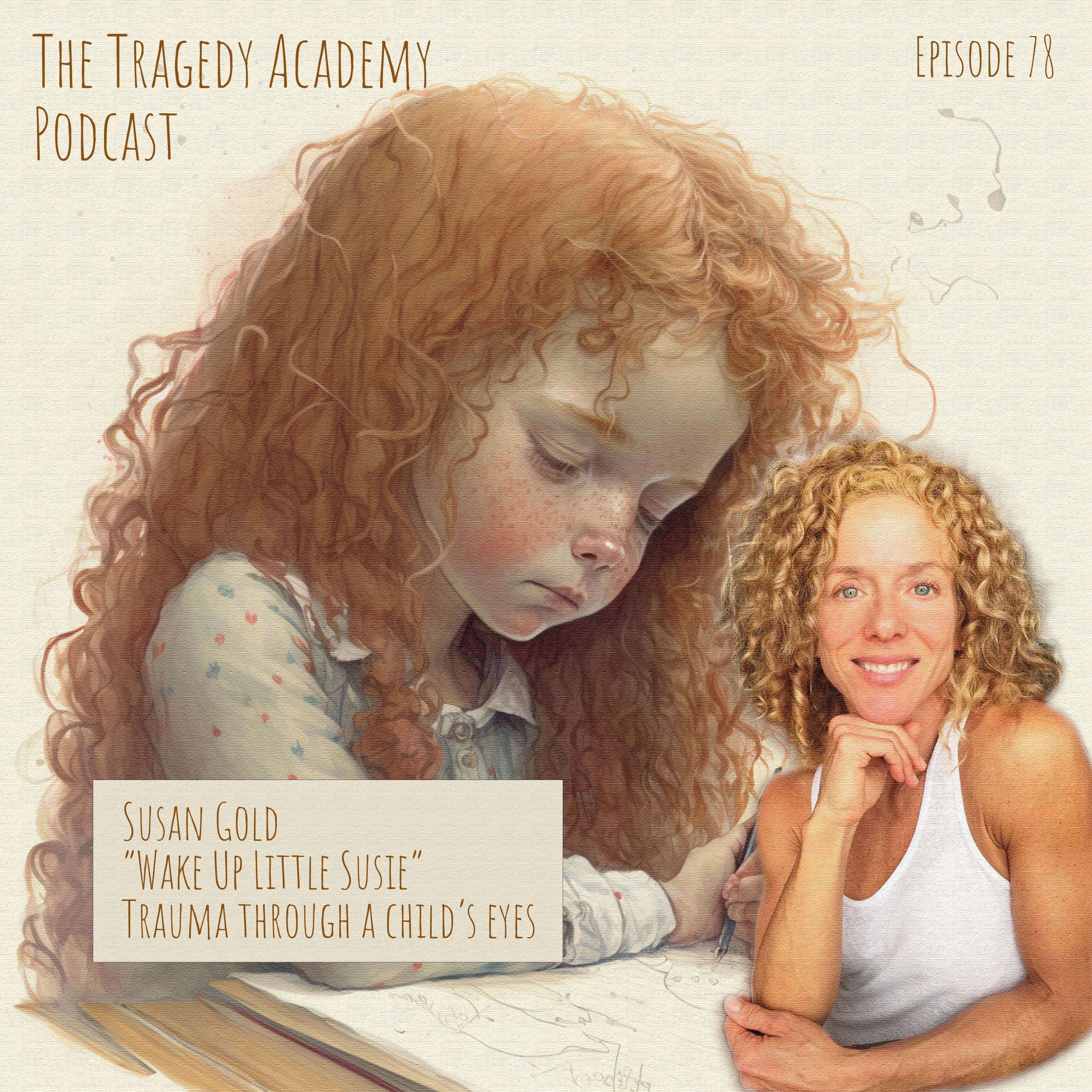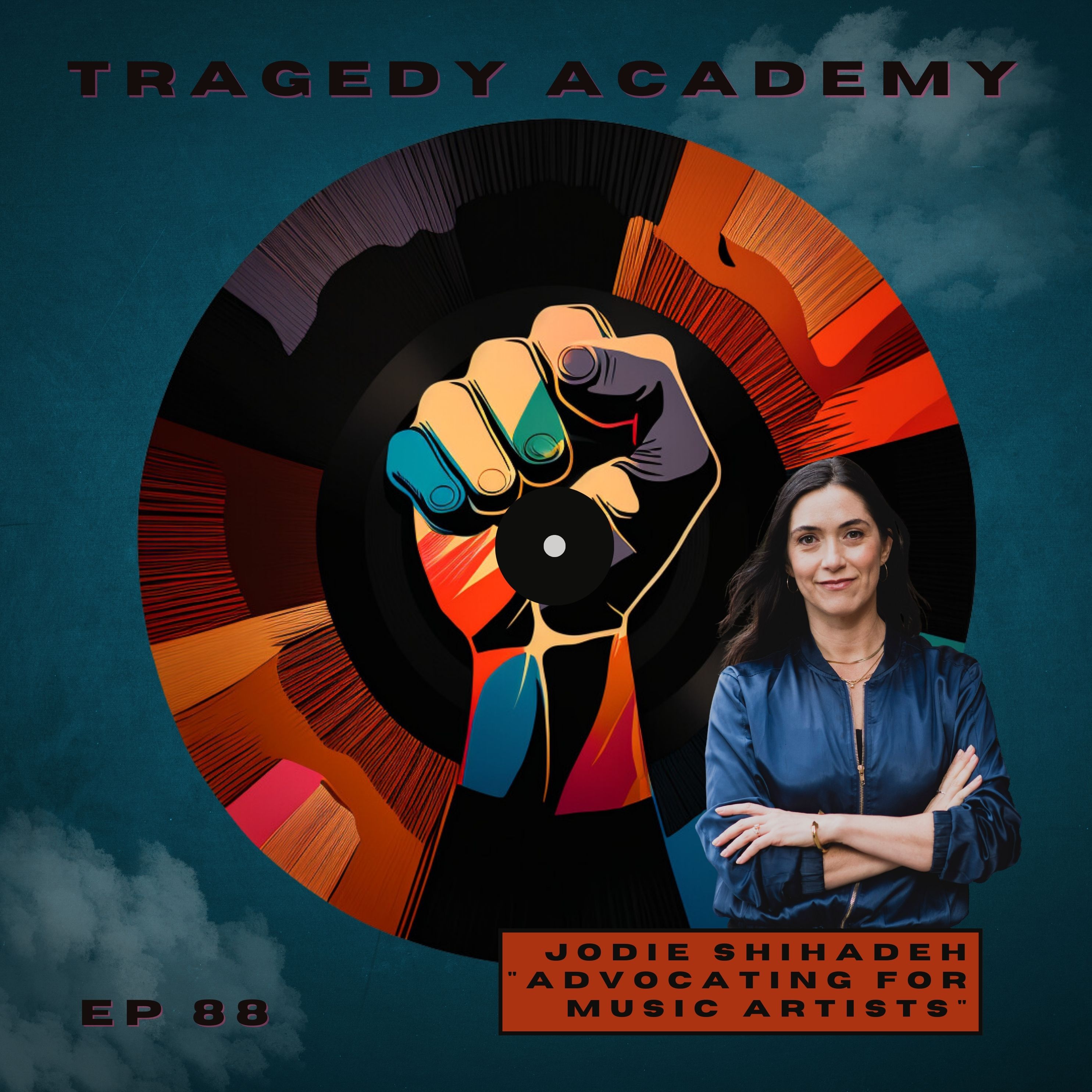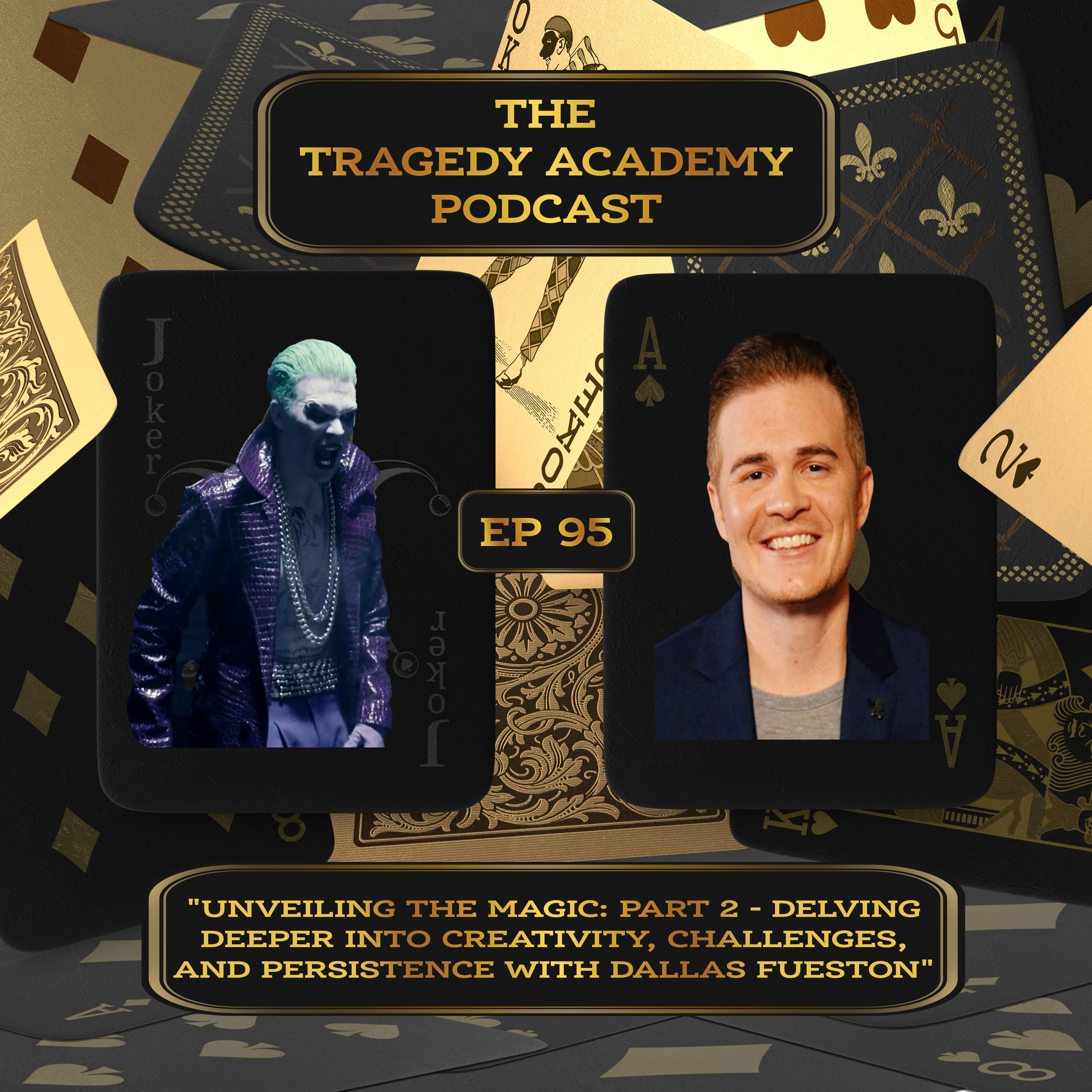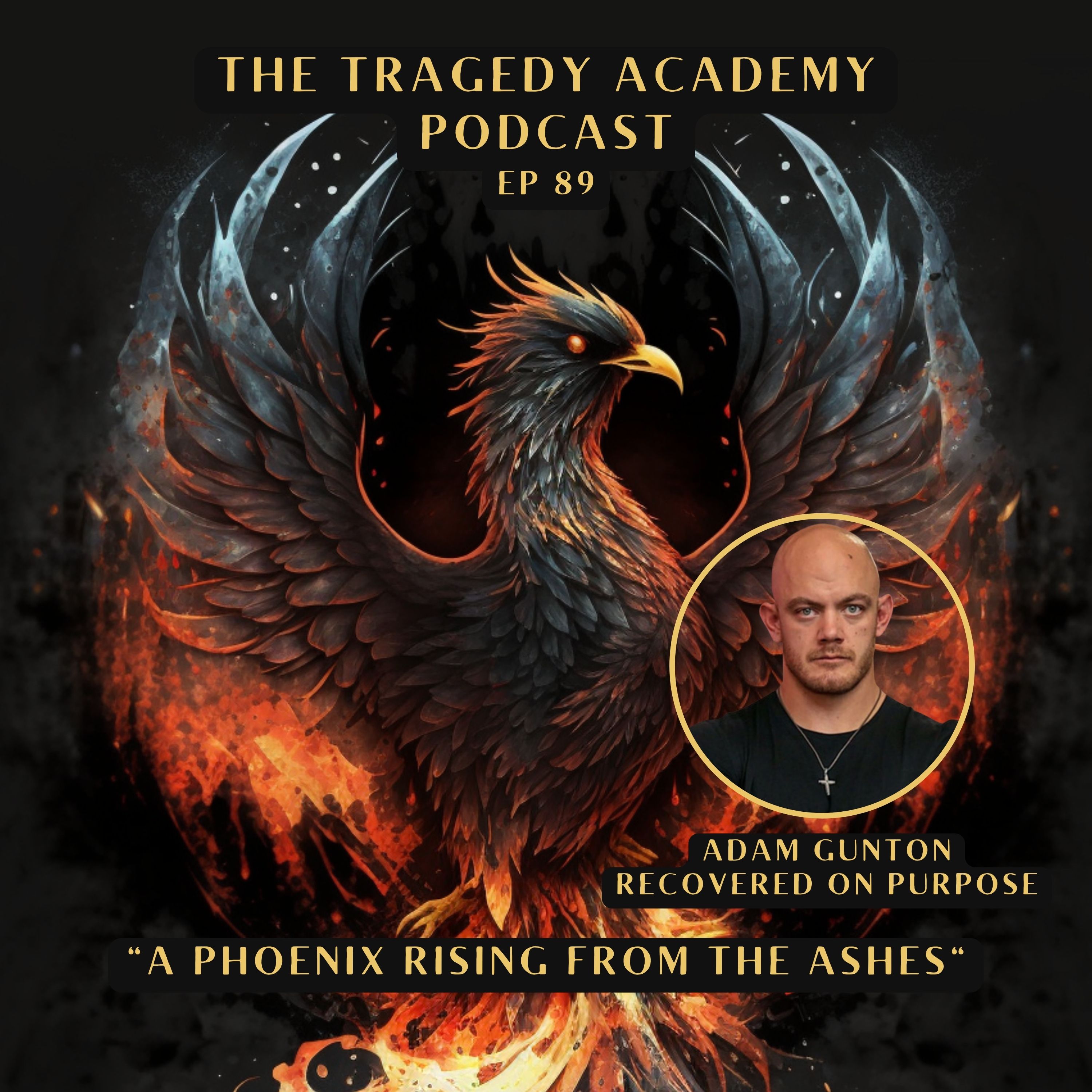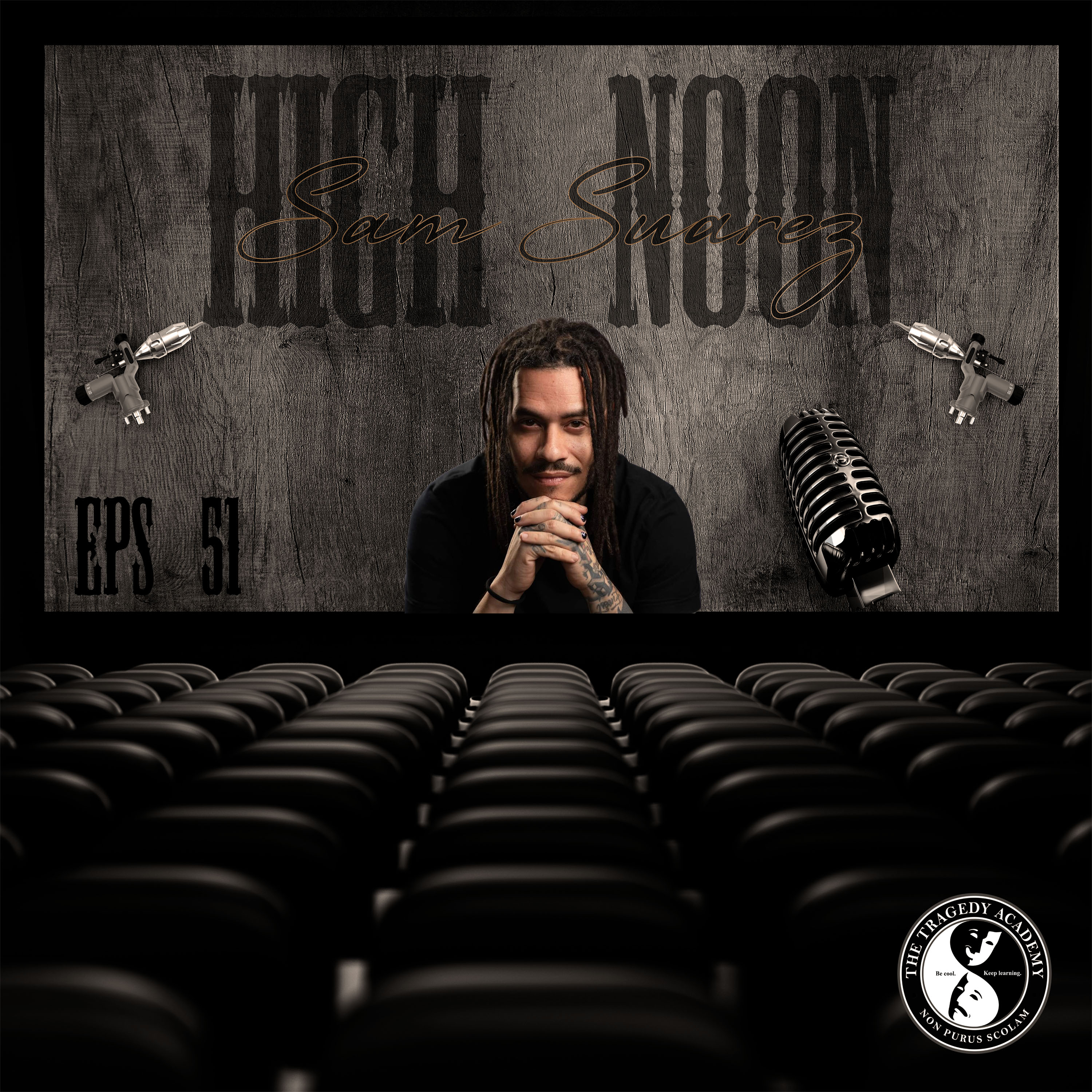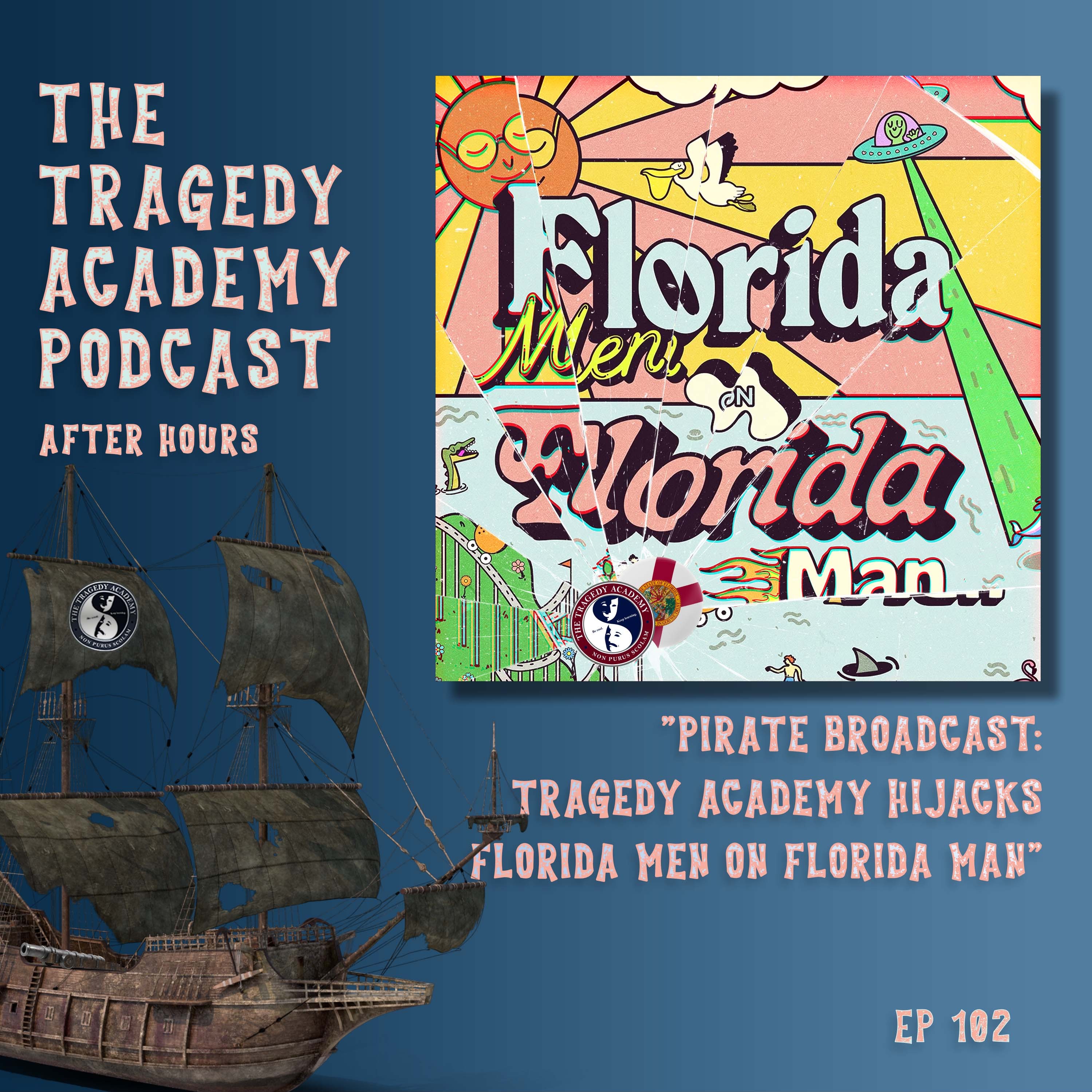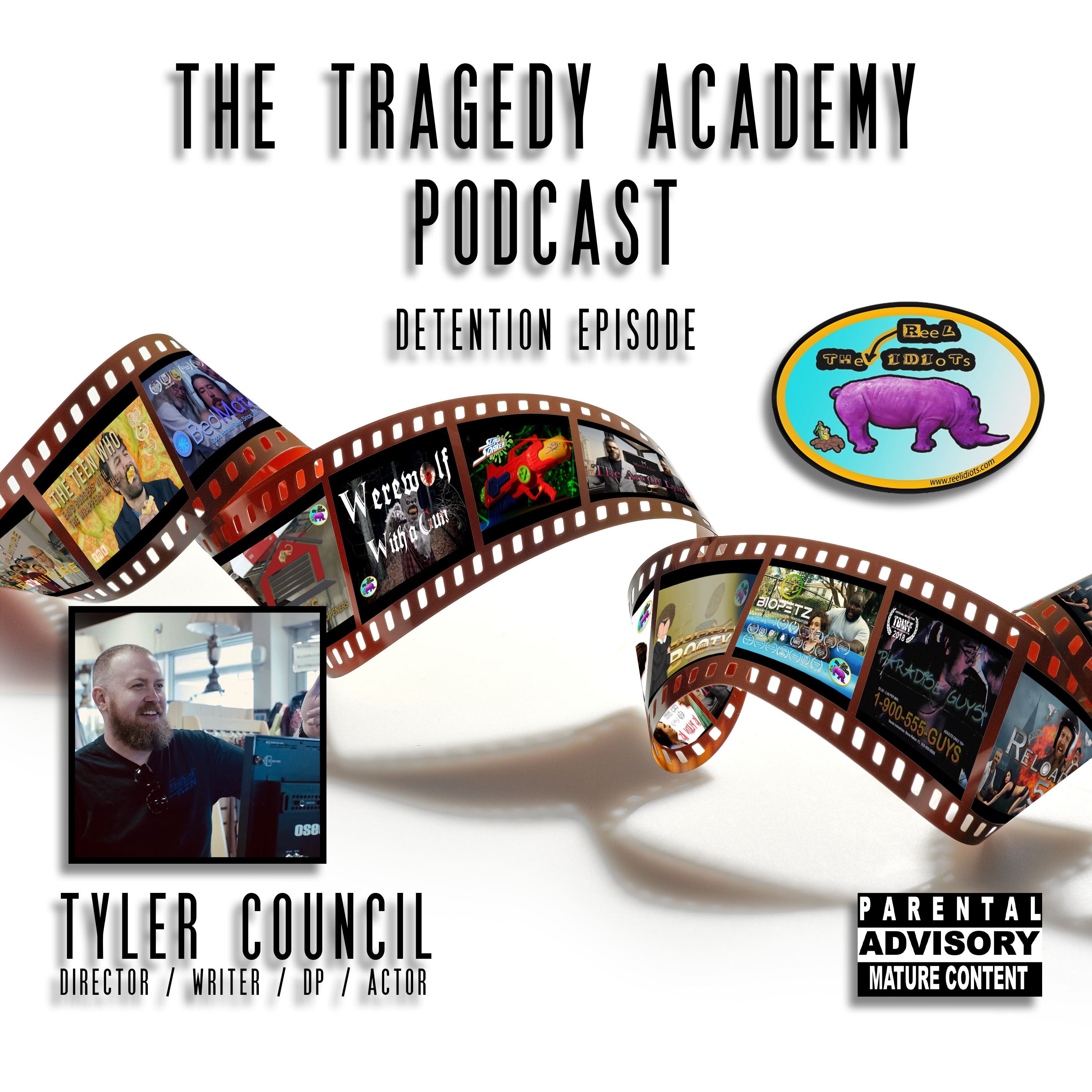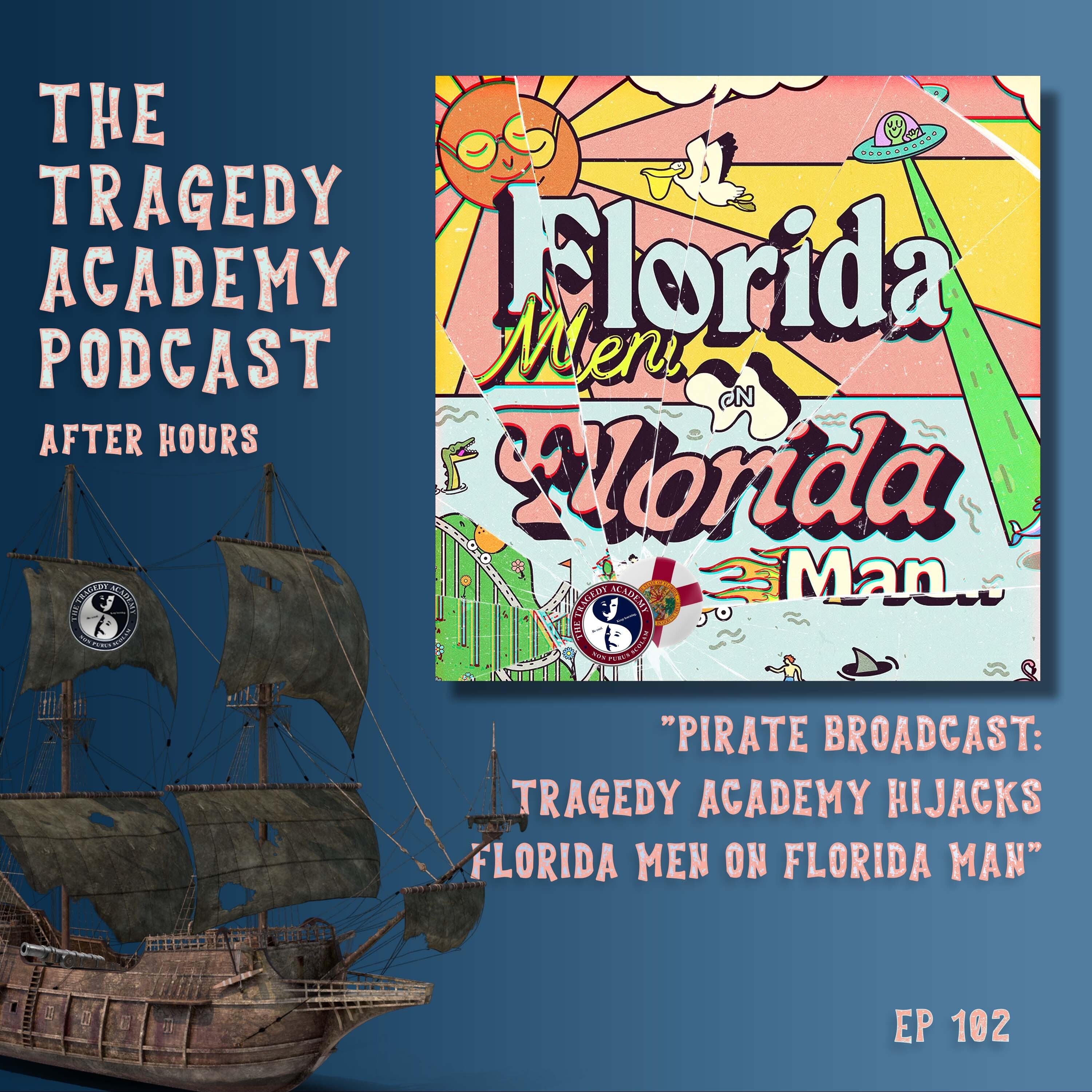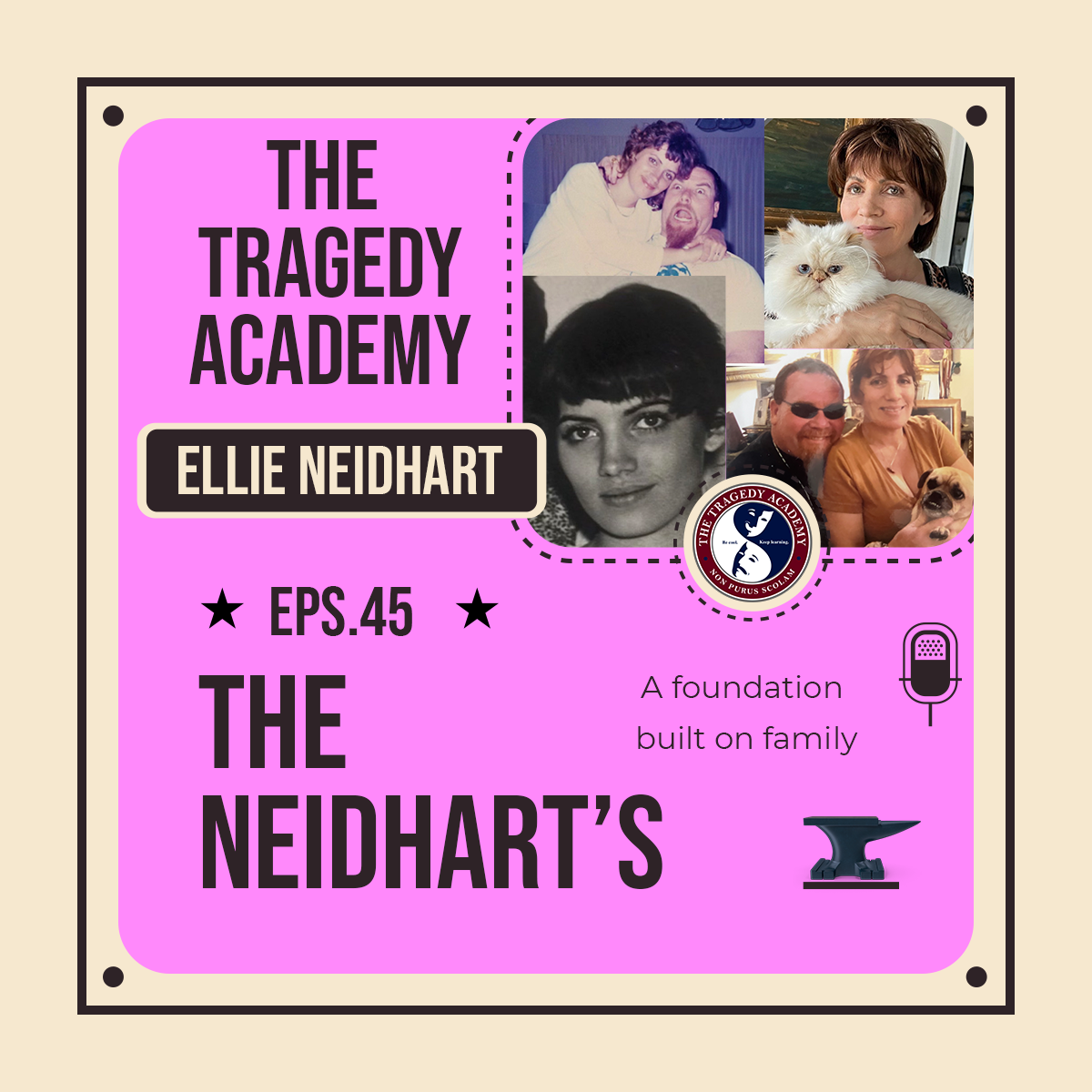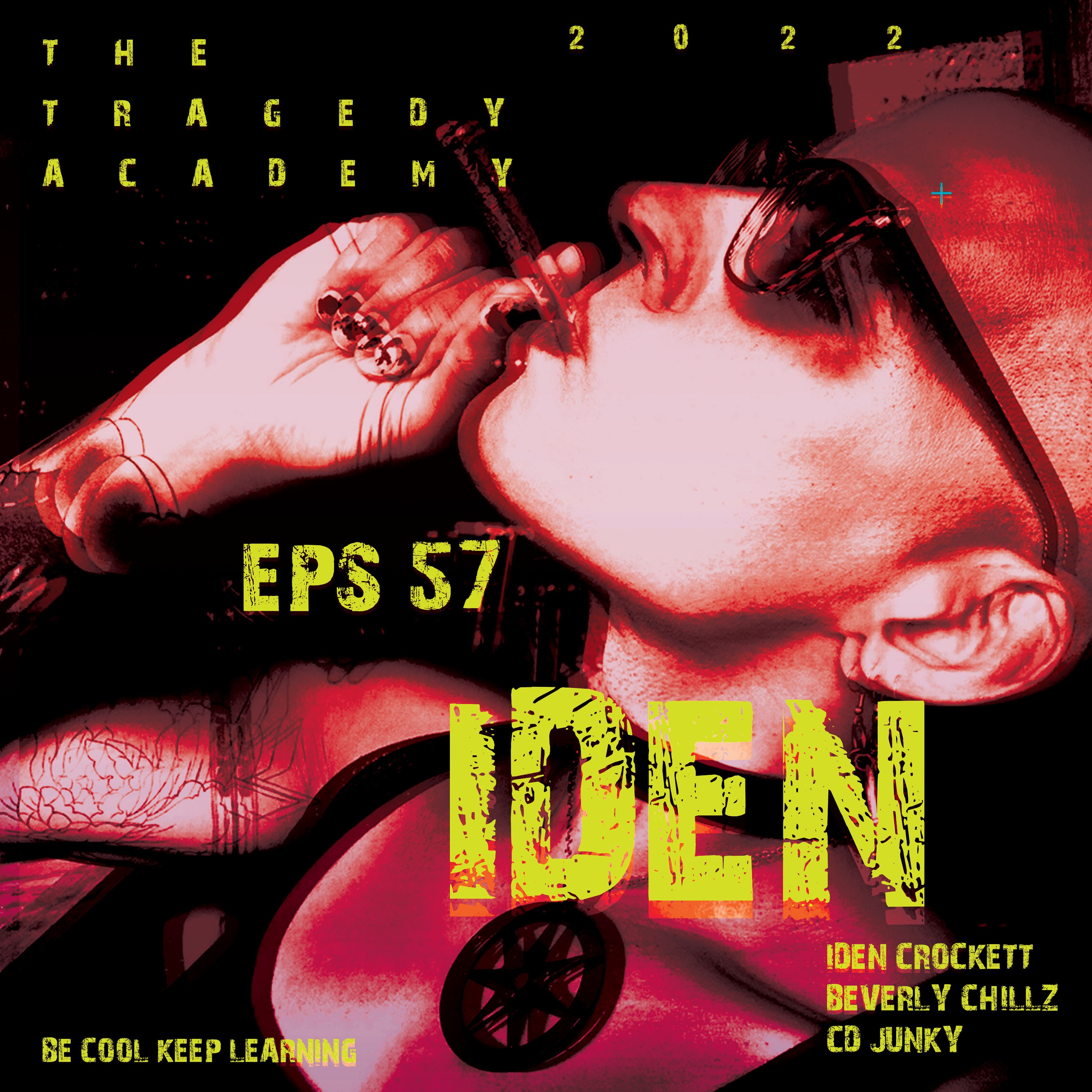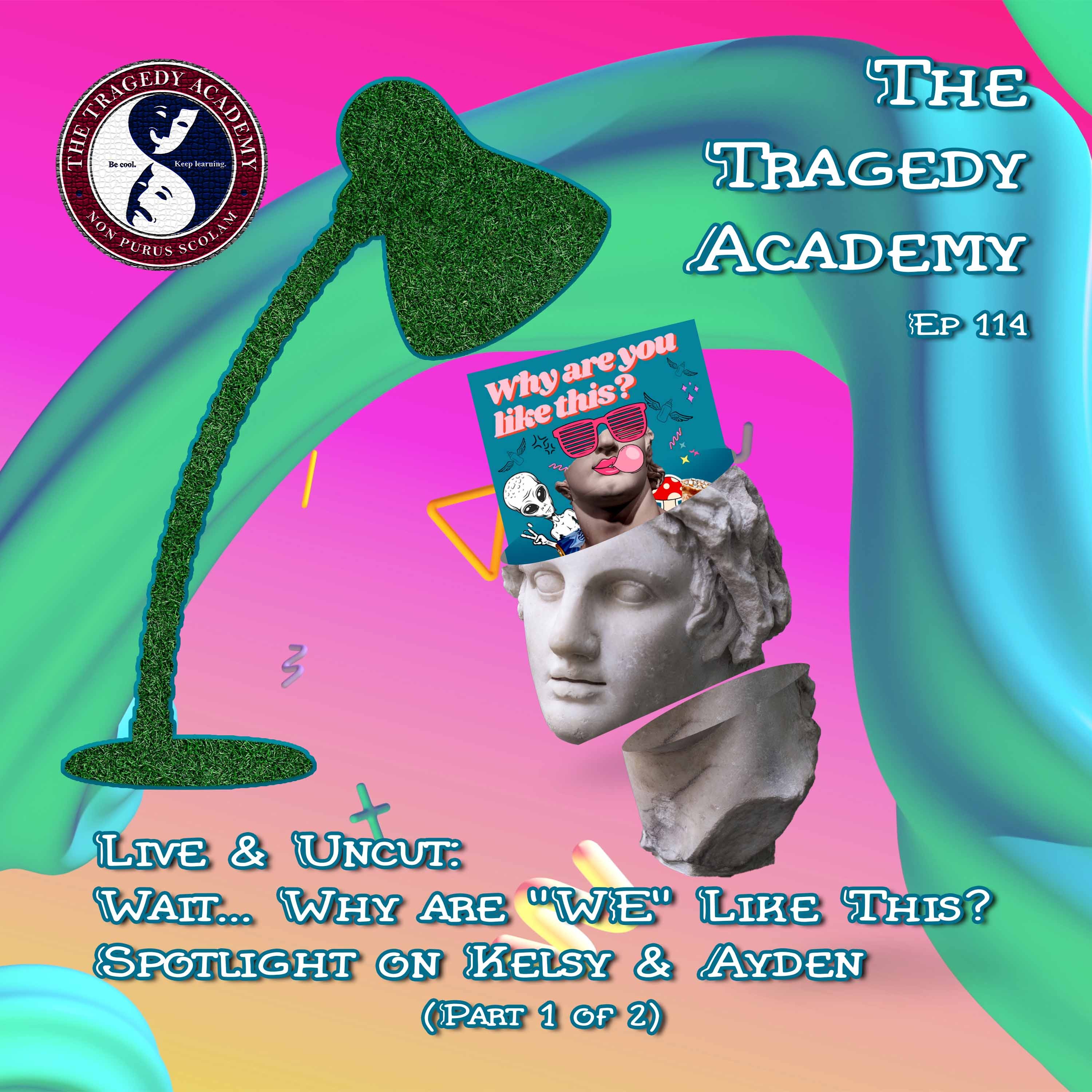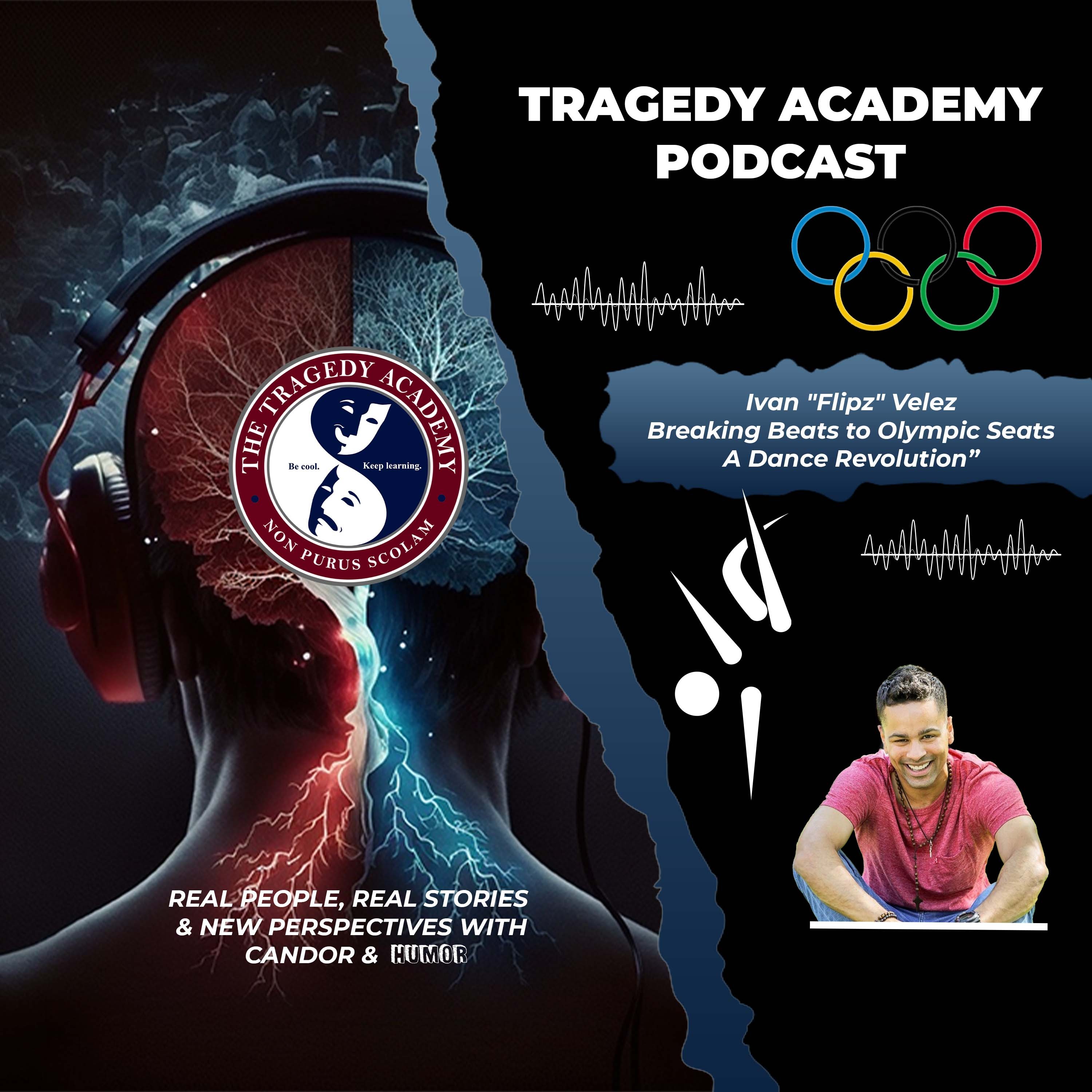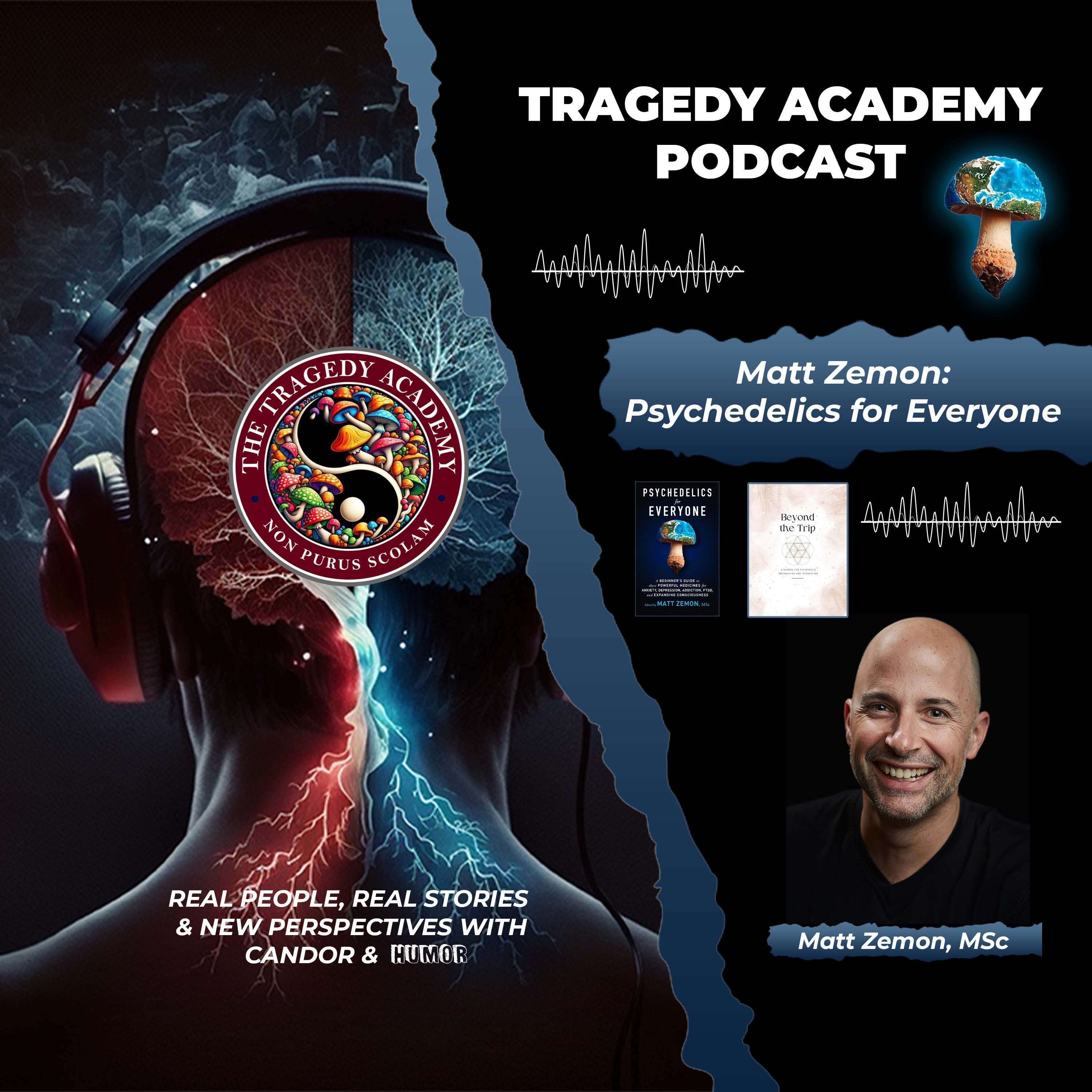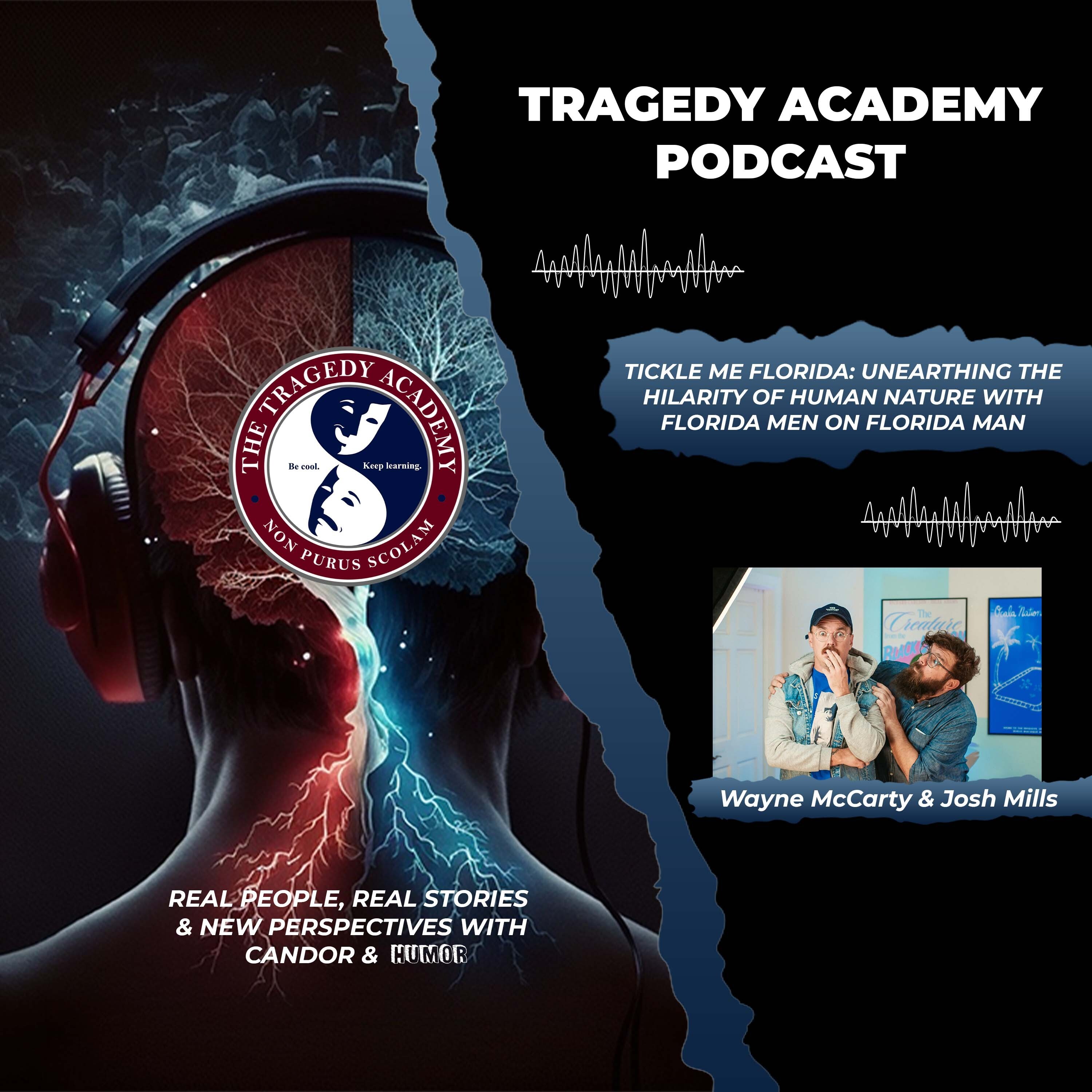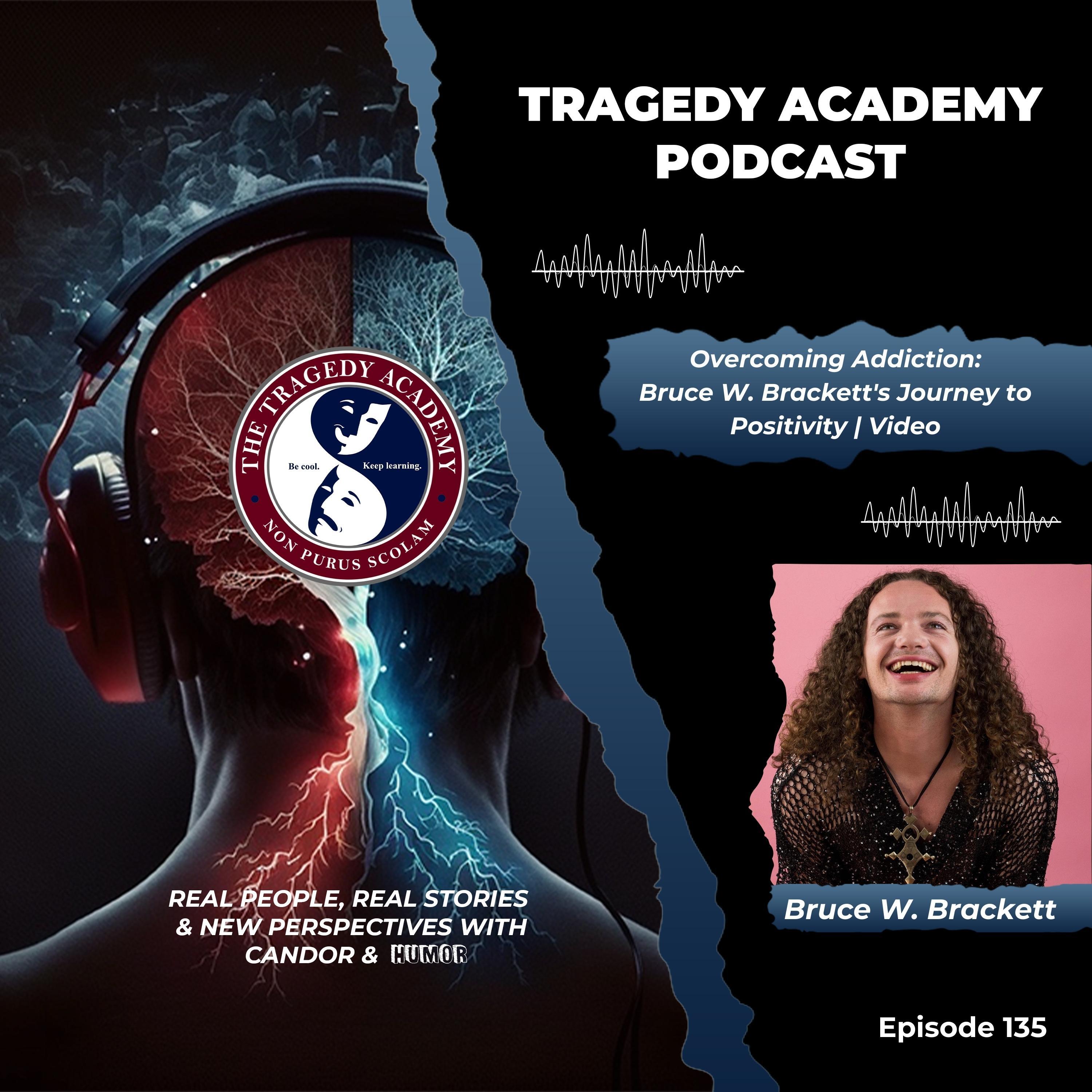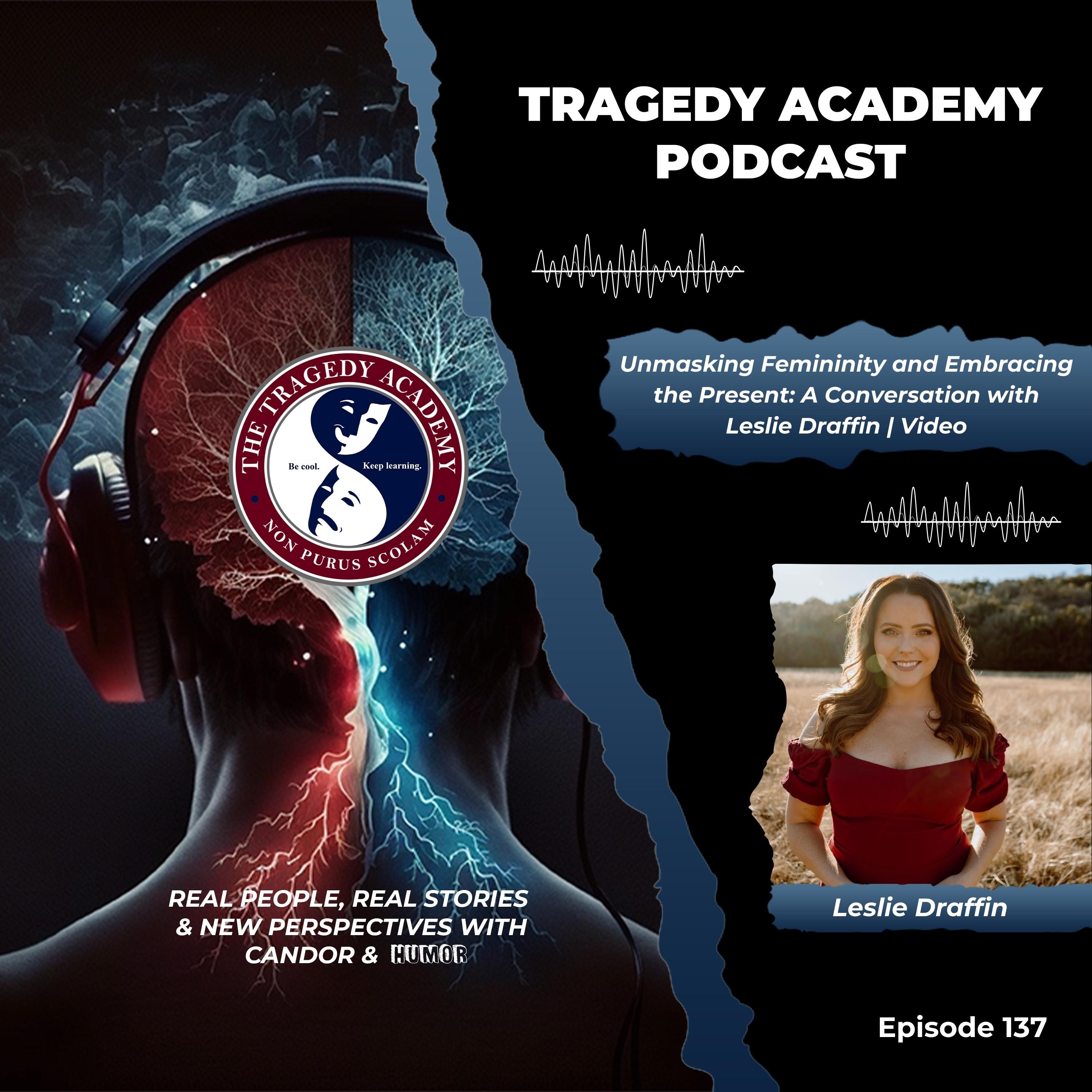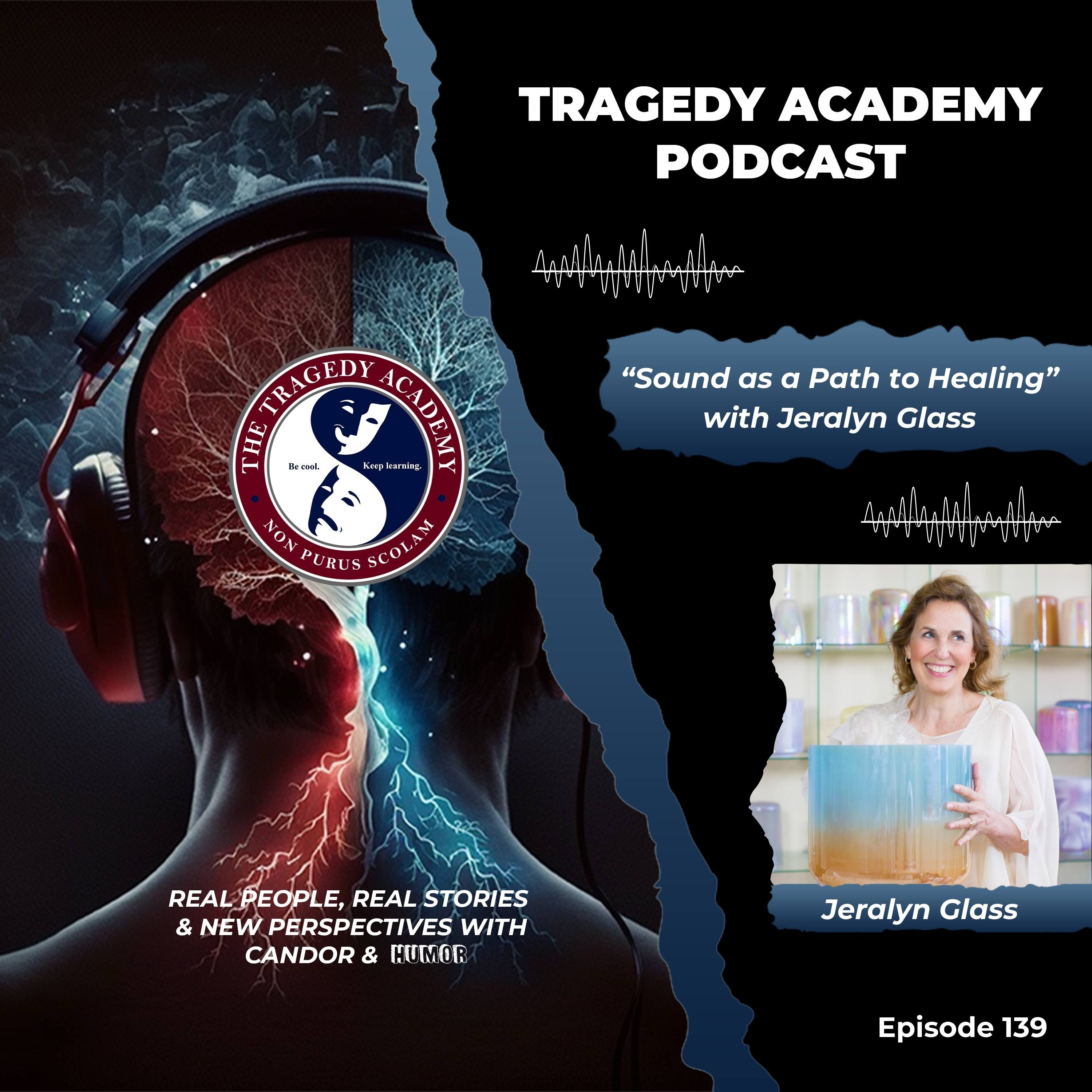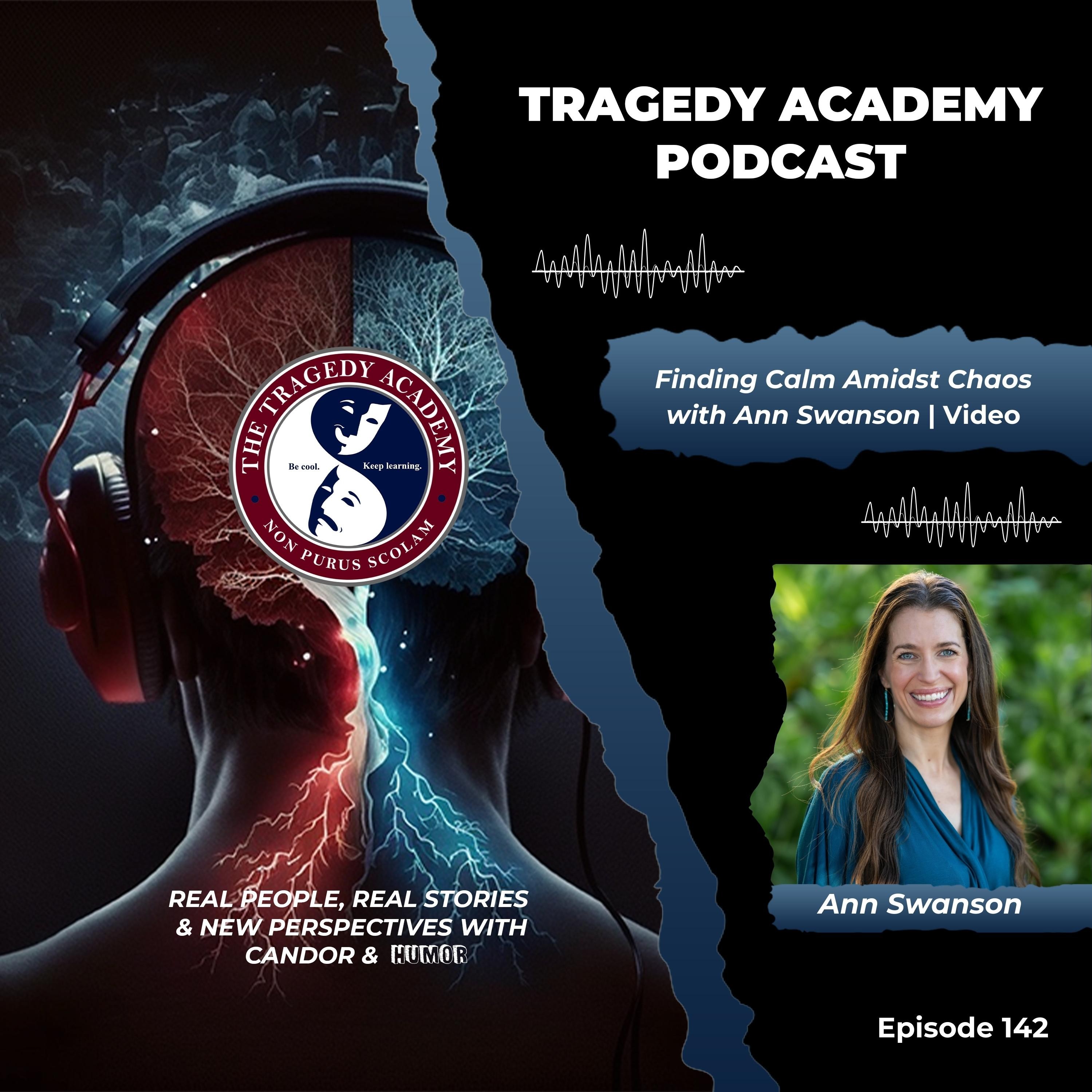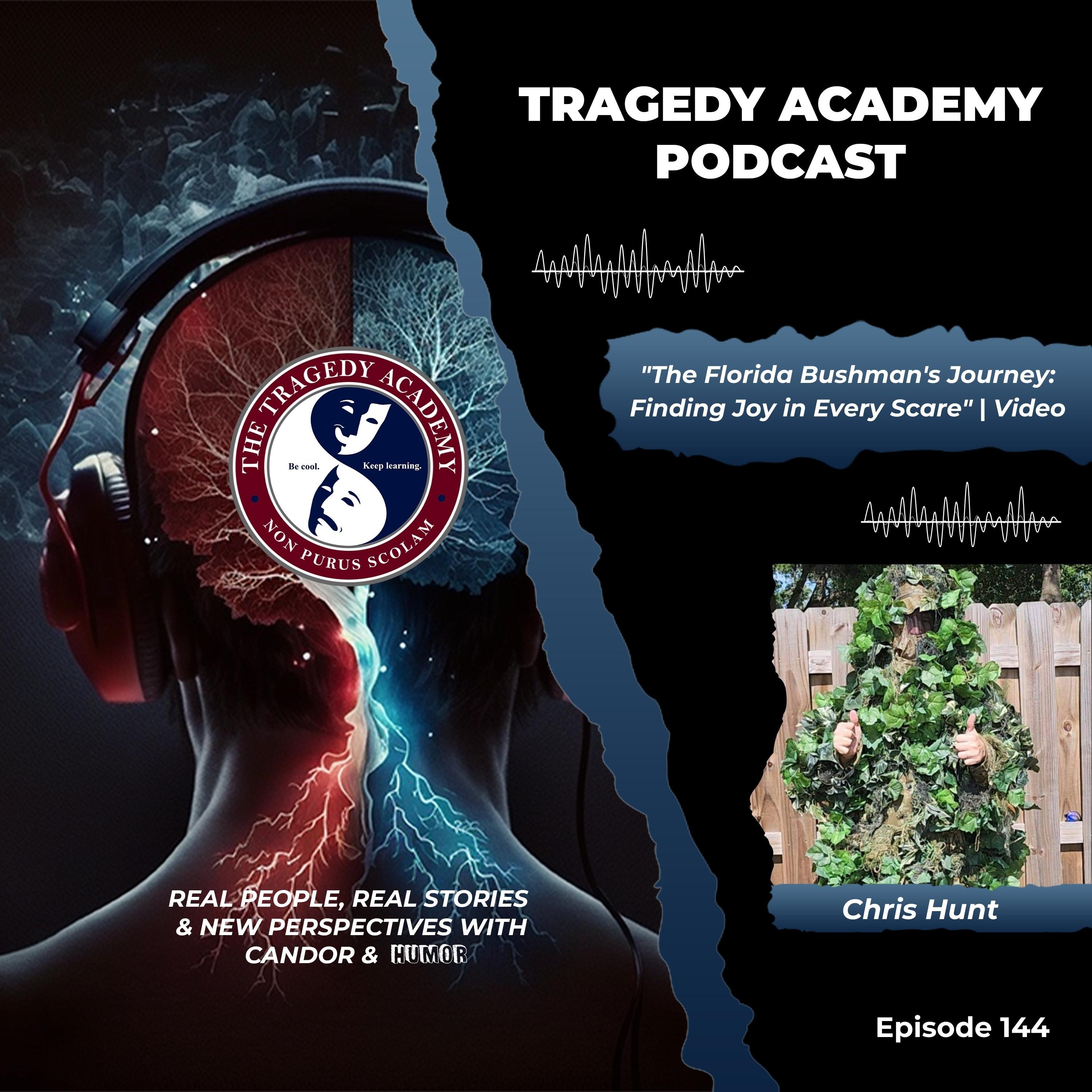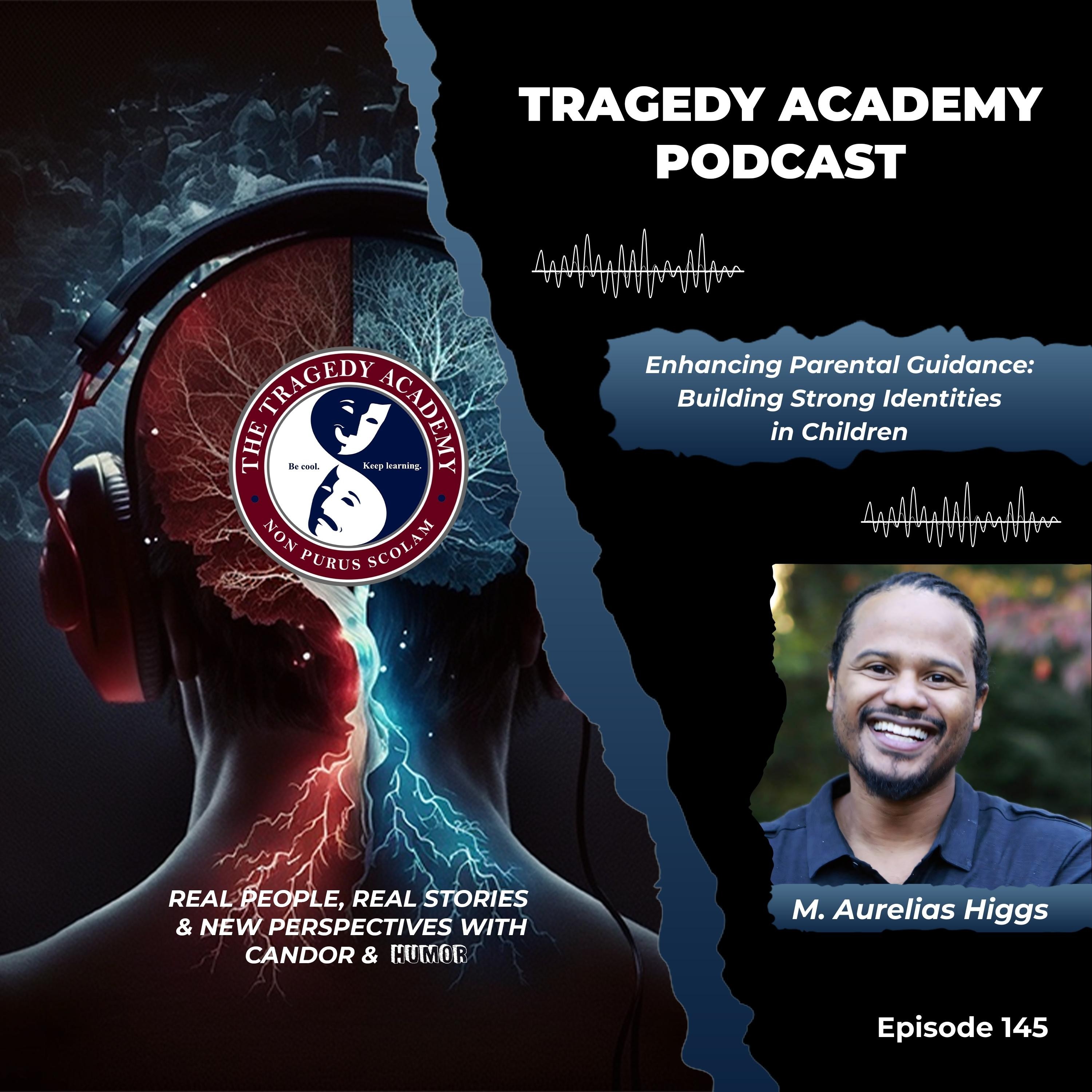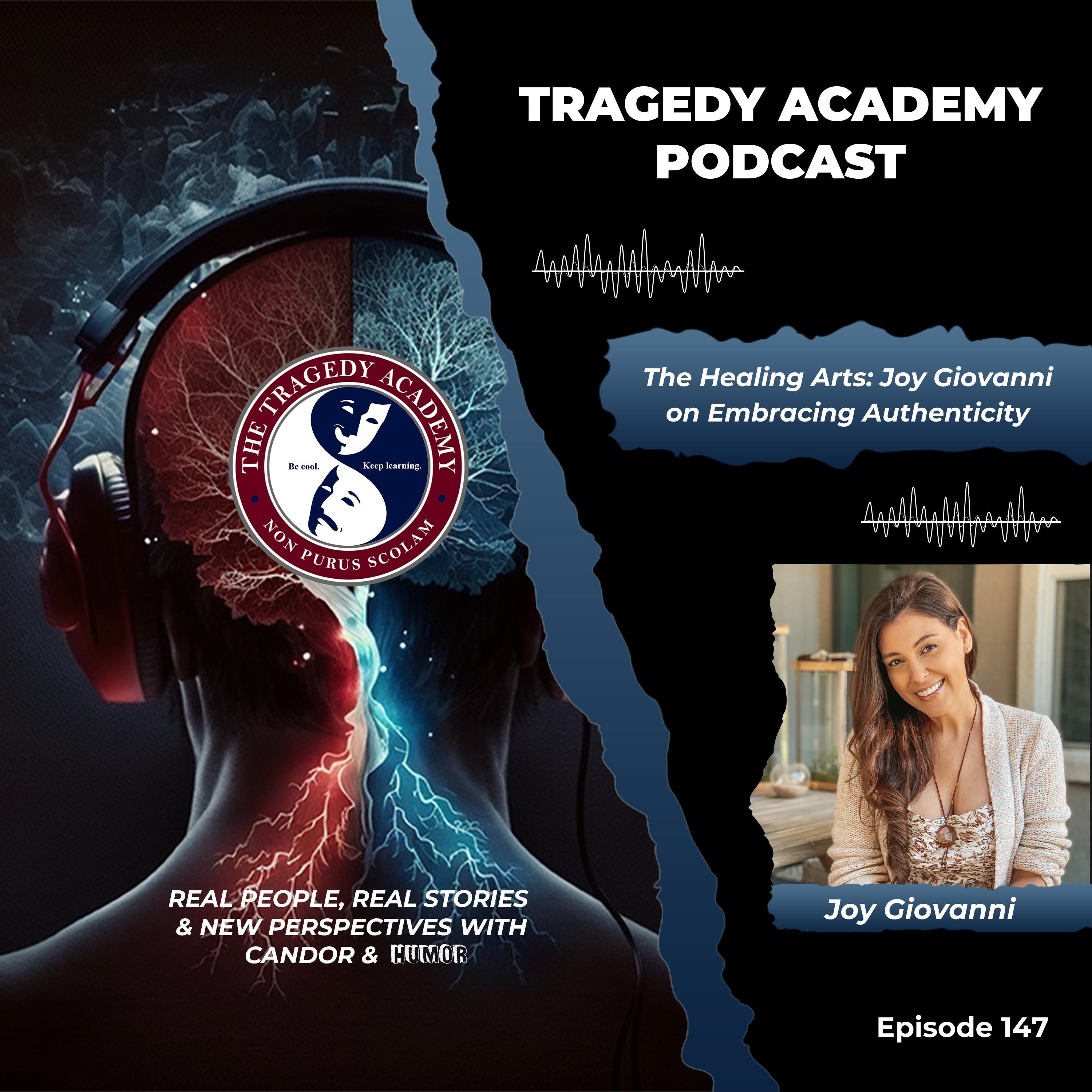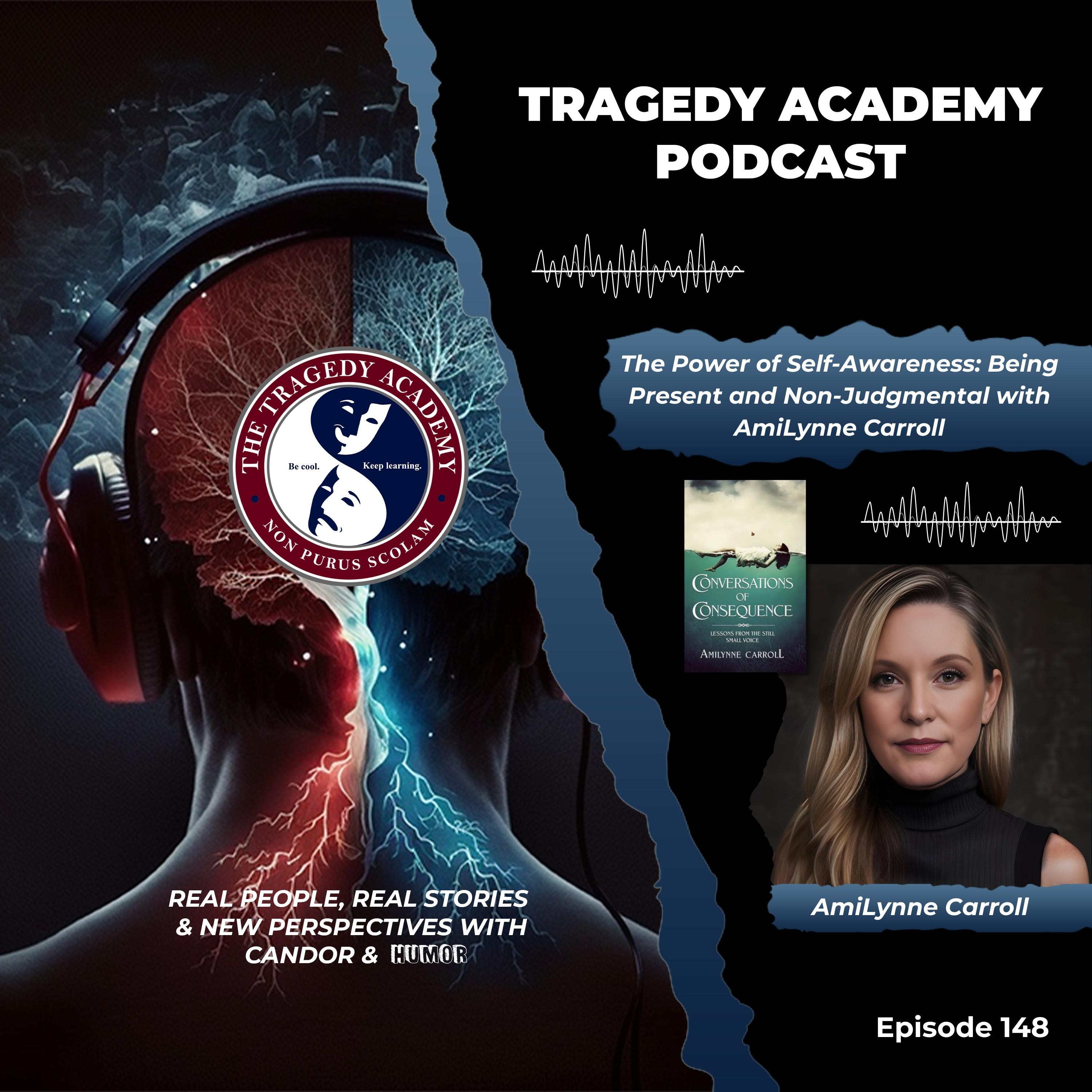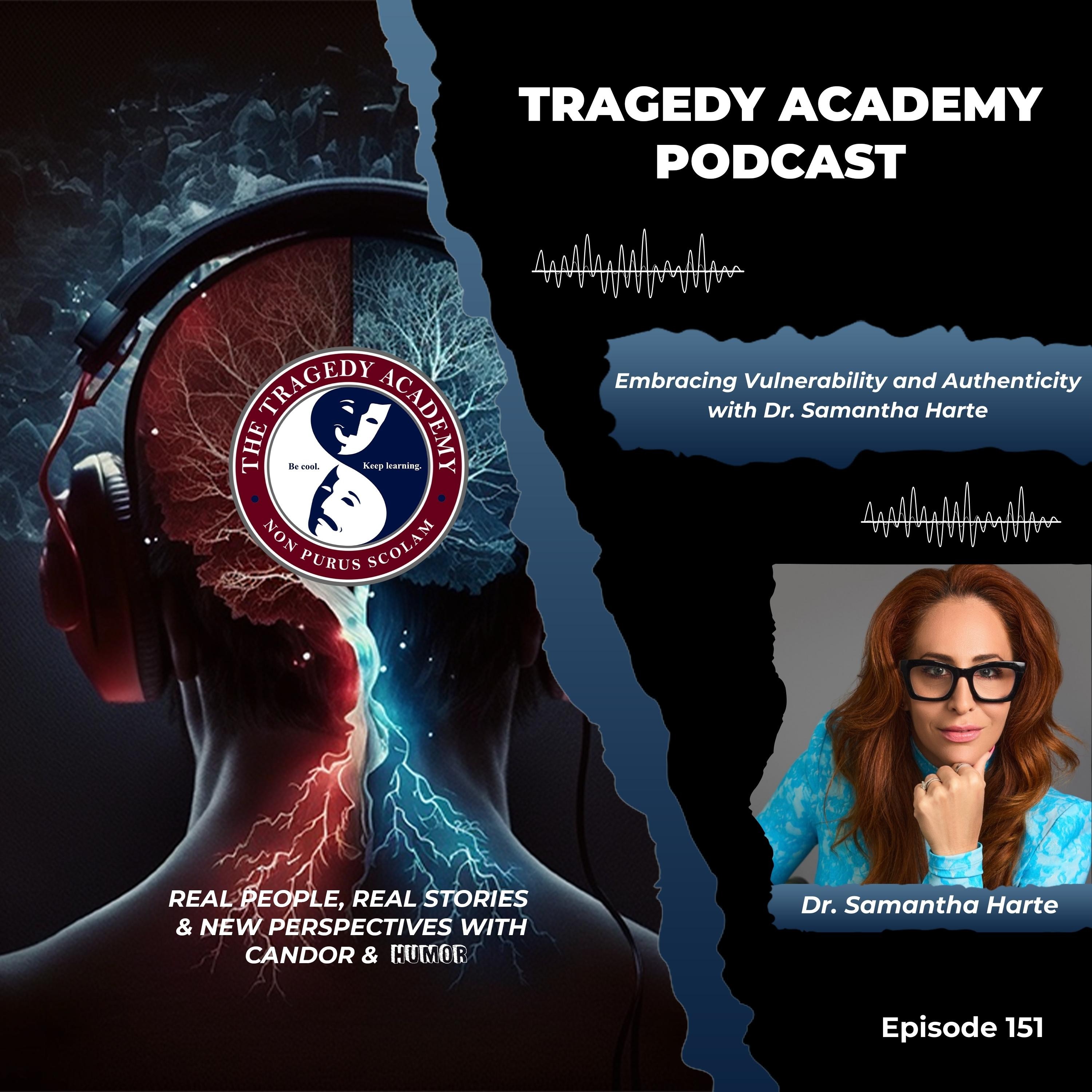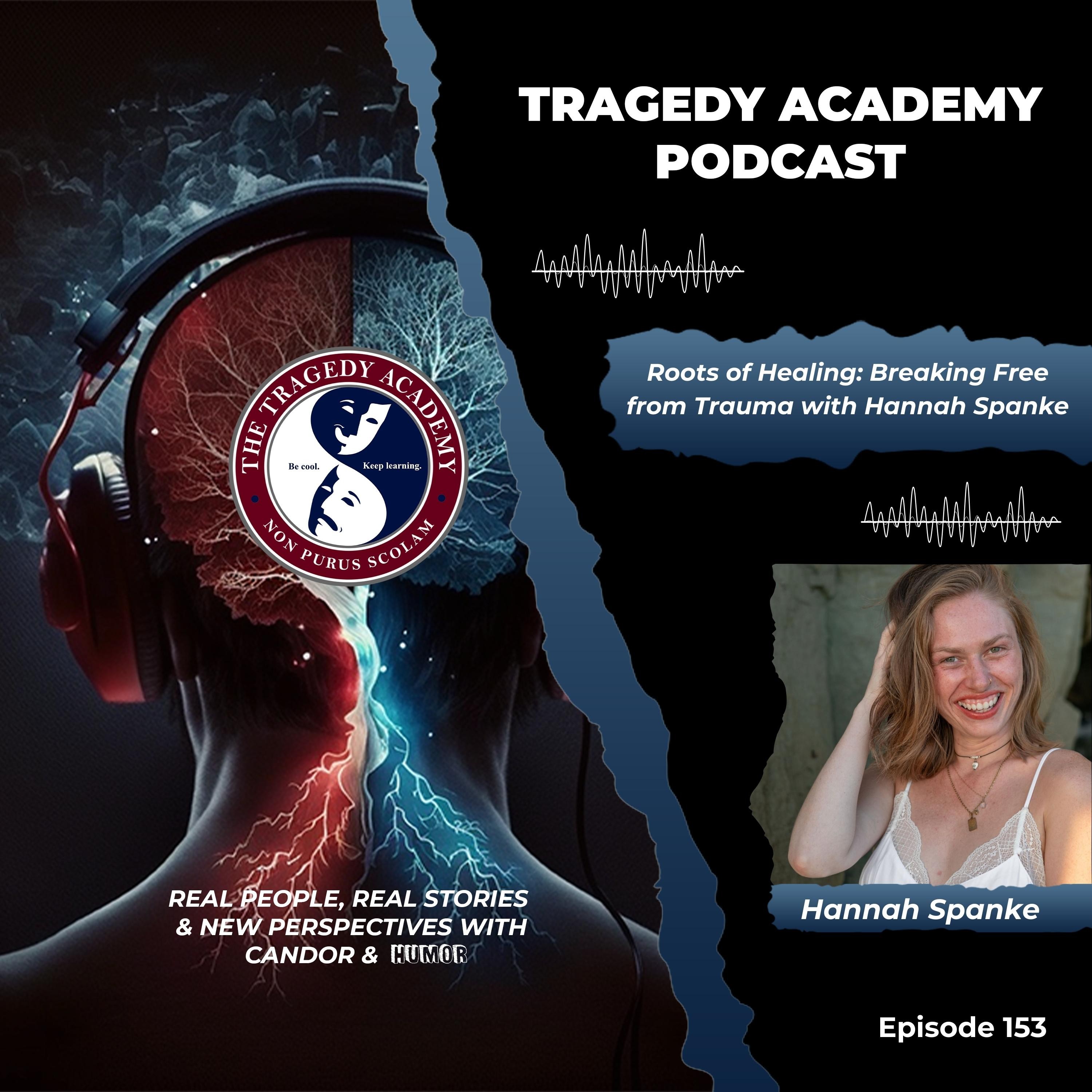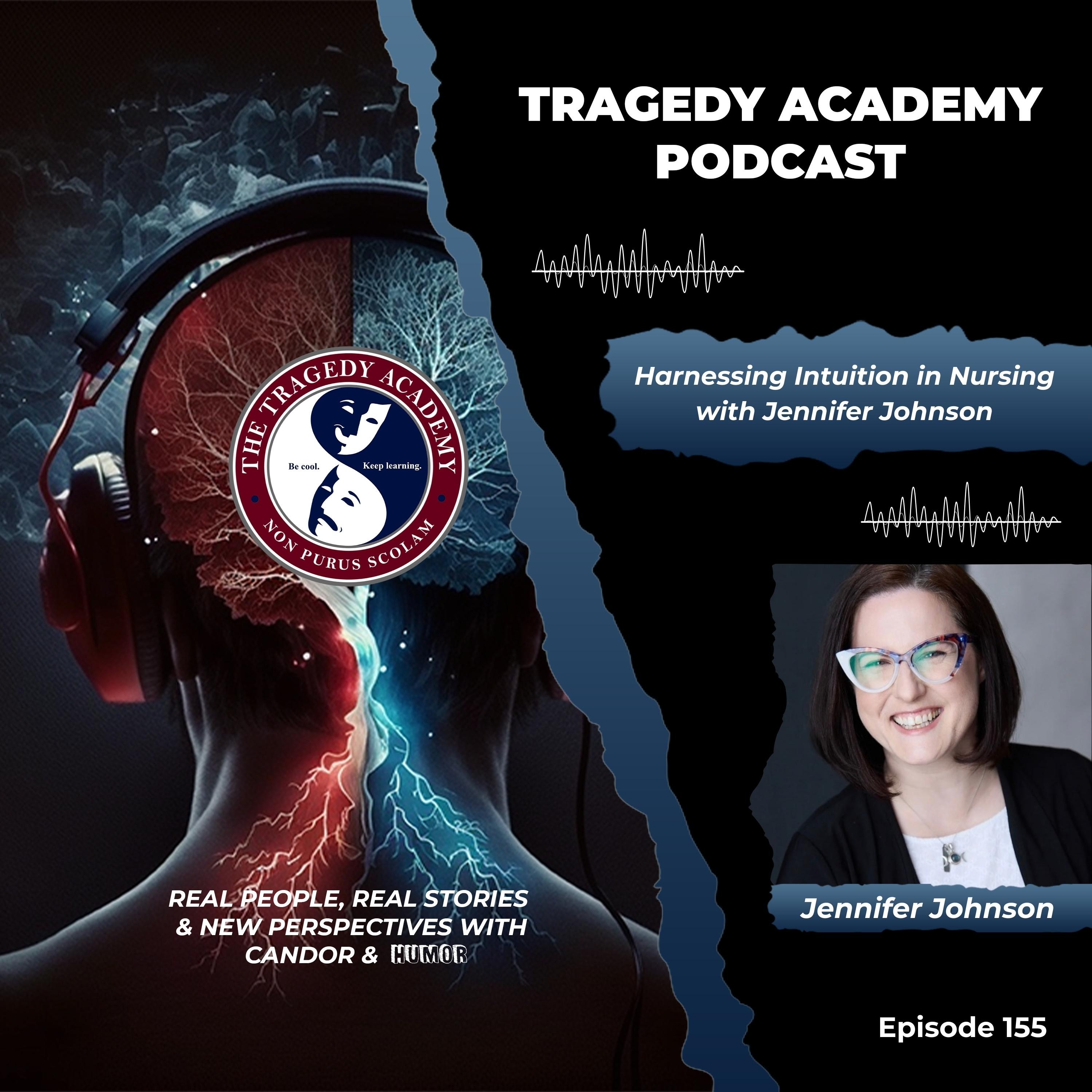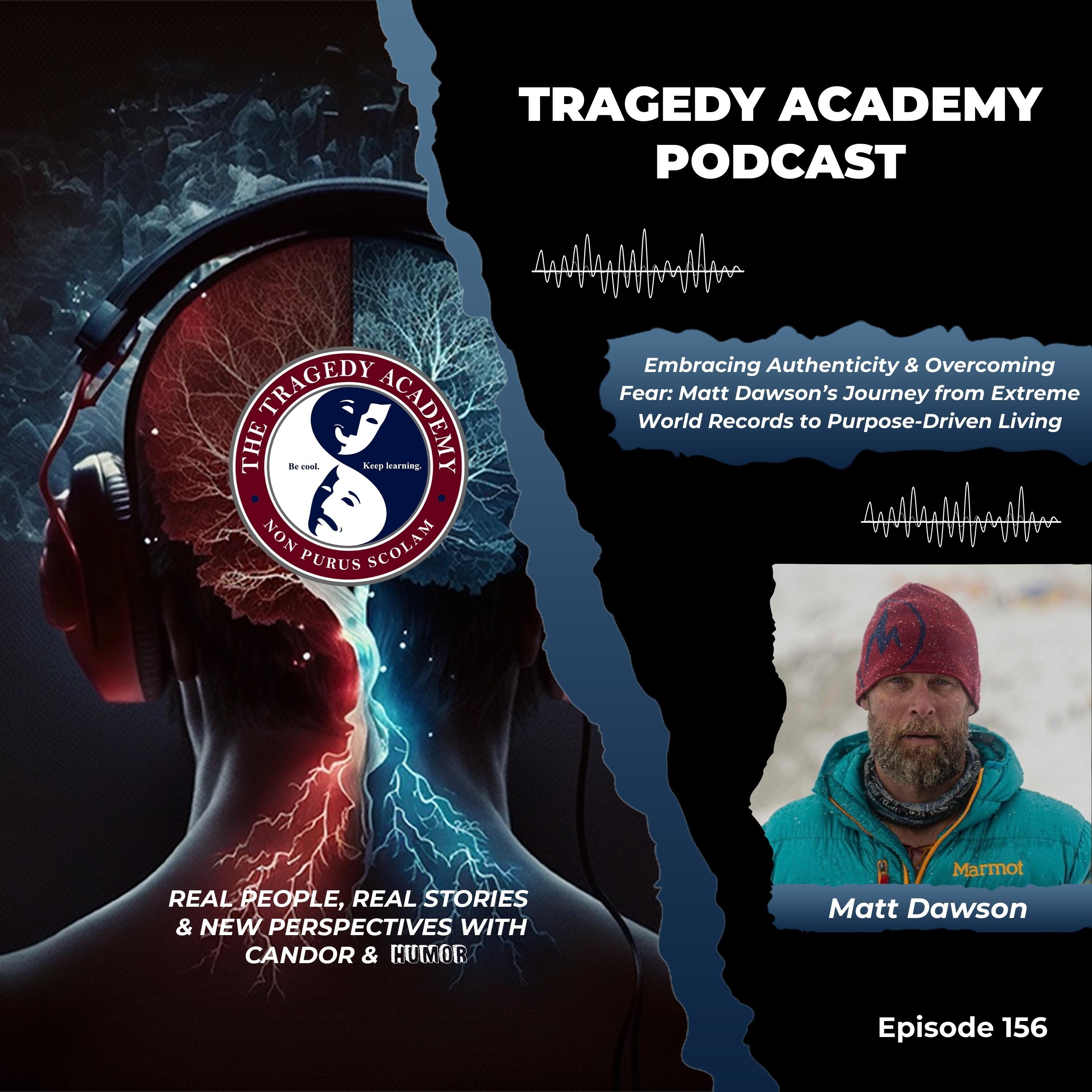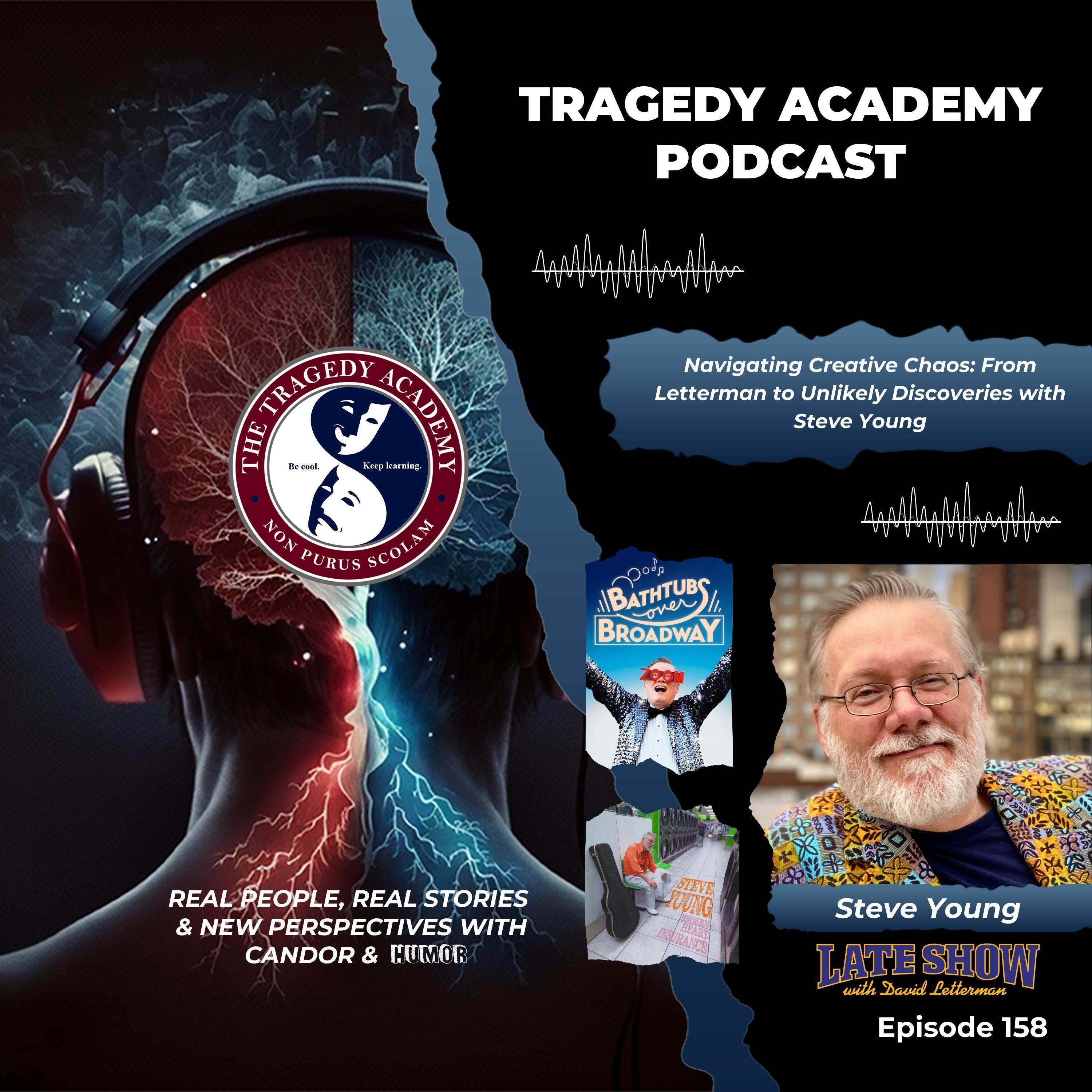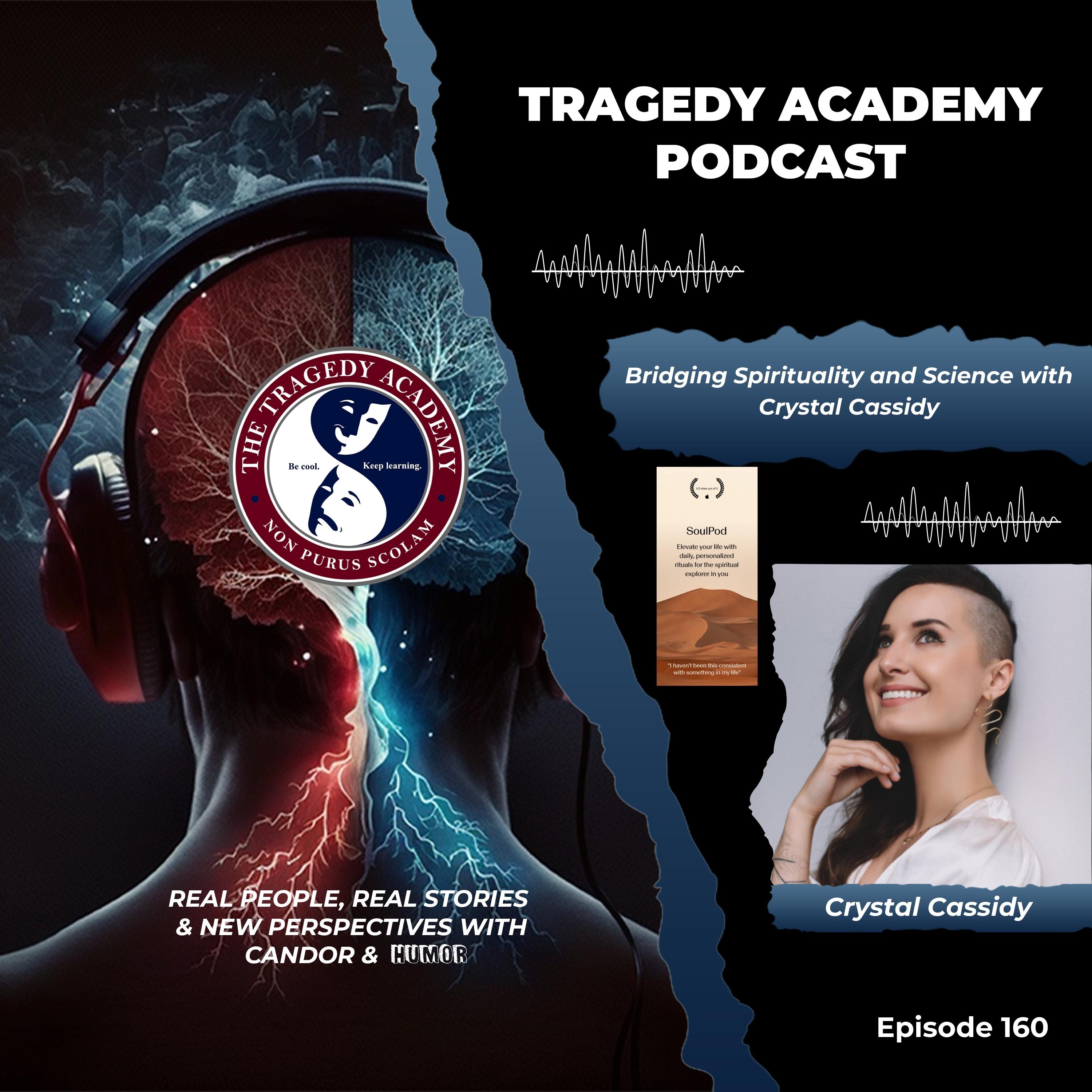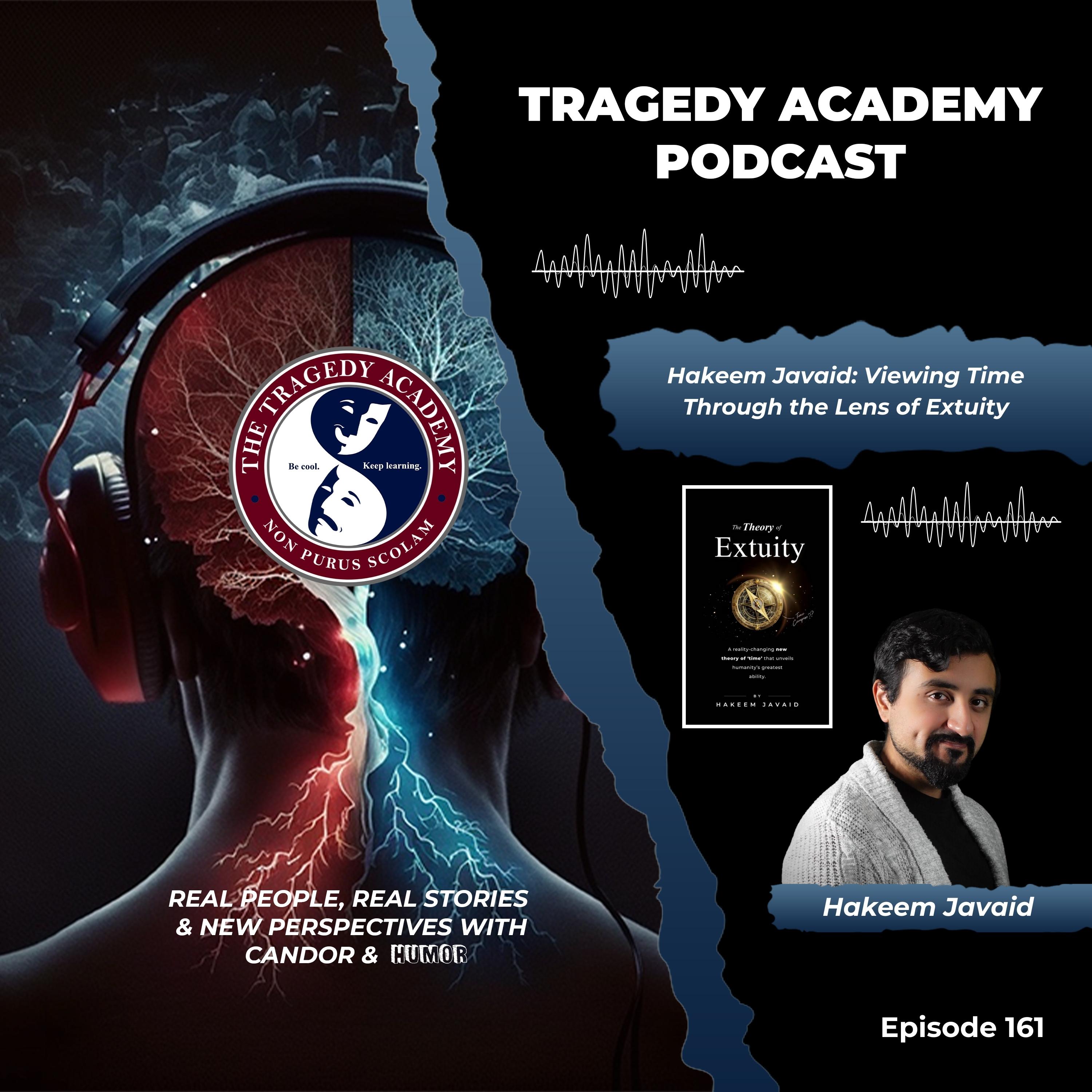Embracing Spirituality: Kimberly Braun’s Journey
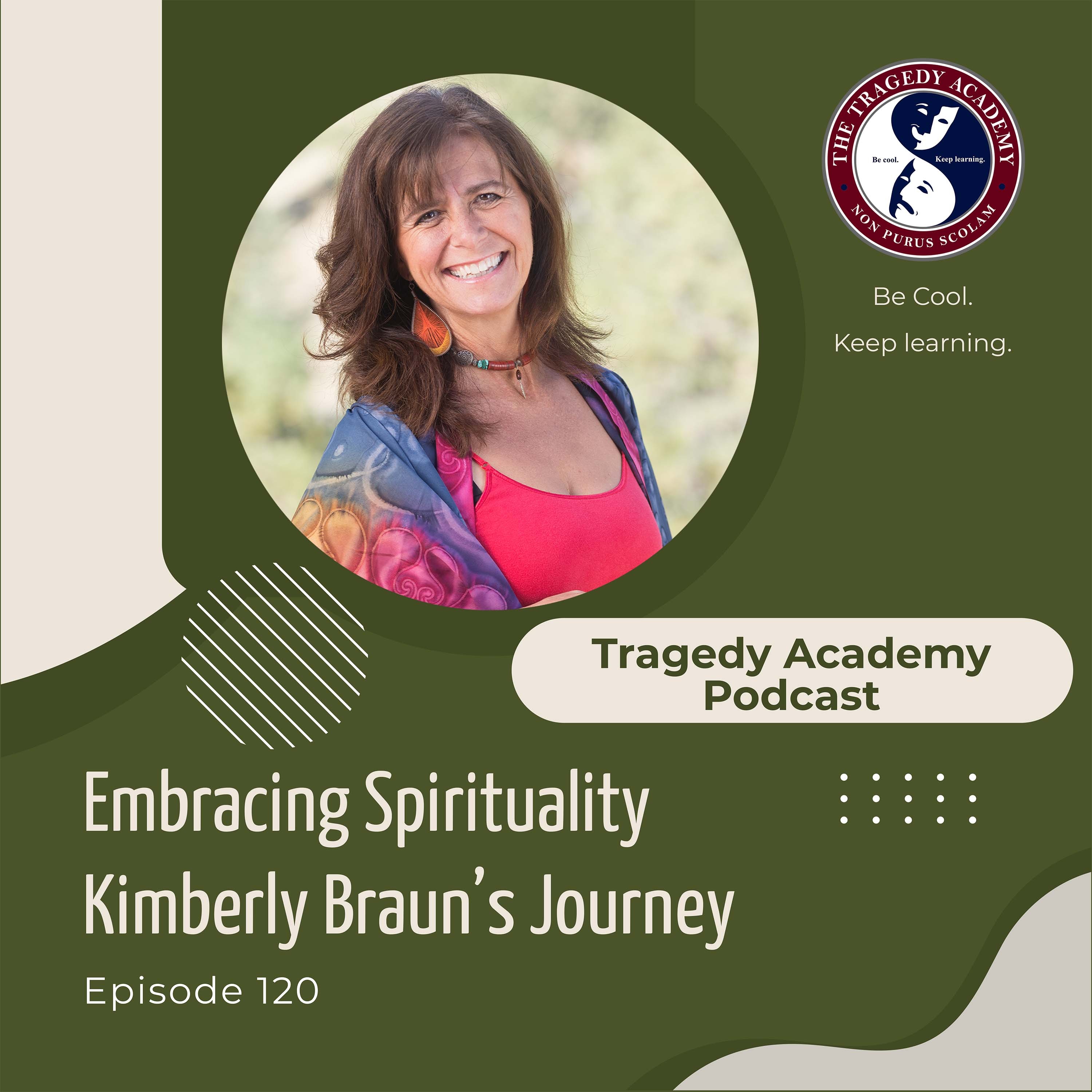
In this episode of The Tragedy Academy Podcast, host Jay Hicks and cohost Gary DeFranco explore the spiritual journey of Kimberly Braun, a former monastic nun. 🎙️
This episode takes you through Kimberly Braun's incredible journey, from her unique experiences as a nun to her profound insights into meditation and Christianity. Listeners are invited to discover the transformative power of spirituality, authenticity, and presence with engaging conversations and personal anecdotes. Jay and Gary's unique perspectives enrich this deep dive into spiritual self-discovery.
Bio: Kimberly Braun, profoundly influenced by her early childhood experiences, dedicated over a decade of her life to the monastic path as a Carmelite nun, deeply exploring the concept of Presence. Holding a master's degree in theology and ordained, Kimberly is passionate about inspiring others to connect with and live from the Divine Love within themselves. She is an accomplished TEDx speaker and has served as a meditation faculty member at the Omega Institute. Her exceptional communication skills have facilitated transformative experiences, guiding individuals toward greater freedom and joy. Kimberly has impacted many through her writings, speeches, retreats, online courses, and community involvement. In 2023, she added to her contributions by releasing two new books.
Chapters:
[00:00] Introduction and Personal Preferences
[00:51] Exploring the Intersection of Meditation and Christianity
[05:16] The Journey to Becoming a Nun
[06:56] Understanding the Role of Rituals in Spirituality
[11:53] The Power of Authenticity and Presence
[32:00] Embracing Change and Seeking Guidance
[32:46] Experiencing Spiritual Phenomena
[34:22] Finding Solace in Shared Experiences
[36:05] Exploring the Language of Spiritual Progression
[38:31] The Breath of Inspiration and the Power of Surrender
[43:21] Building a Monastery: A Journey of Faith and Determination
[51:10] The Power of Meditation and Self-Exploration
Guest Quotes:
- "Exploring spirituality is like unraveling a deeply personal and transformative journey."
- "Embracing change and seeking guidance has been crucial in my spiritual growth."
- "The power of meditation and self-exploration cannot be overstated."
Join us on this enlightening journey by subscribing to The Tragedy Academy Podcast. Share your thoughts, leave a review, and spread the word. 🌱 Be cool and keep learning.
Dive deeper into Kimberly Braun's inspiring journey. Visit her website, follow her on social media, and discover her profound teachings and latest books. 📚
https://www.instagram.com/kimberlybraun09/
https://www.facebook.com/kimberlybraun.ma
https://www.youtube.com/kimberlybraunmedia
https://www.linkedin.com/in/kimberlybraunma/
Email: Kimberly@Kimberlybraun.com
Conclusion: Take advantage of the next episode of The Tragedy Academy Podcast for more inspiring stories. Be cool and keep learning. 🌟
📲 Connect with us!
https://www.thetragedyacademy.com
✨ Resources & Affiliate Links:
💻 Create your own stunning podcast website with PodPage: https://bit.ly/3LSCBh5
🎙️ Elevate your recording game with Riverside.fm: https://bit.ly/3ImjNWD
👕 Love Jay's t-shirt from this episode? Get your own at INTO THE AM: https://bit.ly/431MLD5
📚 For Tragedy Academy-recommended books and authors, visit our Bookshop:
https://bit.ly/42pPHcv
Youtube!
📺 Don't forget to Subscribe to our YouTube channel! 💥 https://www.youtube.com/channel/UCEUXqlregig6vcrvuVNGlKg
📲 Connect with us on socials!
Instagram: https://www.instagram.com/thetragedyacademypodcast/
Facebook: https://www.facebook.com/TheTragedyAcademy
Twitter: https://twitter.com/Tragedy_Academy
Show and host information:
The Tragedy Academy Podcast is a show that explores the human experience through the lens of tragedy and triumph. We aim to help listeners grow and thrive by sharing stories of real people who have experienced adversity and success.
Hosted by Jay Hicks, a veteran, music producer, and multimedia artist, along with co-host Gary DeFranco, an Emmy-nominated executive producer with 20 years of experience producing non-scripted television, The Tragedy Academy Podcast provides a unique perspective on life's challenges and how to overcome them.
The Tragedy Academy is a show created to bridge societal divides in a judgment-free zone using candor and humor.
Be cool. Keep Learning.
Title: "Embracing Spirituality: Kimberly Braun's Journey" - The Tragedy Academy Podcast
In this enlightening episode of The Tragedy Academy Podcast, hosts Jay Hicks and Gary DeFranco engage in a profound conversation with Kimberly Braun, a former monastic nun. They explore her spiritual journey, delving into her experiences with meditation, Christianity, and the transformative power of spirituality. The transcript captures insightful discussions on authenticity, spiritual rituals, and the journey towards self-discovery and inner peace. Braun's background as a TEDx speaker and meditation expert shines through in this captivating episode. Introduction and Personal Preferences
[00:00:30] Jay: And now, do you go by Kimberly or Kim? I go by Kimberly. Okay, excellent. See that's why you ask. Some people like to assume My first name is Matthew and I am all about not being called Matt It's not something i'm not something you wipe your feet on, And yeah, and typically people, that use the name Matt will try to be using it as a way to build a connection with me, an artificial one, because I [00:01:00] have never gone by that name. Most people do, though. Yeah. Like Matthew. I know, but if you're saying that to me under the pretense that, we're close, it's dude, you don't know who I am.
[00:01:10] Jay: Is Matt there? Nope. No Matt lives here. Nice phone call.
[00:01:15] Gary: I know Matt's and, Matthew from the Bible, but I don't know any other Matthews.
Exploring the Intersection of Meditation and Christianity
[00:01:21] Jay: that's a great segue to what we're going to be, discussing today. We have Kimberly Braun, who is a former monastic nun, a master's in theology, a TEDx speaker, meditation faculty at Omega Institute.
[00:01:35] Jay: How are you doing today, Kimberly?
[00:01:36] Kimberly: I'm doing great. Happy to be here with you both.
[00:01:39] Jay: That's awesome. We're super happy to have you. I was looking through your background and, we were excited that you had signed up. I love meditation. it's something that helped me change my life. And I was super fascinated when I saw you come across our desk because I feel like [00:02:00] the meditation world has not crossed over into what is a Western religion view of Catholicism and Christianity.
[00:02:11] Jay: It doesn't seem to be as openly discussed the meditation piece and how that is, centered to, what it is that you're trying to take care of within yourself.
[00:02:24] Kimberly: Yeah, that's a really good point. And I know when I was in the monastery, the words meditation and contemplation were used for the opposite than what our culture uses as well.
[00:02:35] Kimberly: Which I find really interesting when I left and got into seminary training. And then of course began to explore the many paths in awakening. but when I've been down that road, you're right. There seemed to be Certain hesitancy. Sometimes there's hard nose just because of where something is traced to have its origin, whether it's a location or a tradition or a [00:03:00] person, but there's also hesitancy because of the unfamiliarity of what it's about and the fact that it's being introduced.
[00:03:09] Kimberly: In complementary nature to a faith tradition instead of from the heart of the tradition.
[00:03:16] Jay: That's a brilliant way to put it because a lot of people do take the baggage that comes with it or what is the background to the particular scenario. Because if people are talking about meditation, typically they're discussing a particular area of the world.
[00:03:29] Jay: They're discussing, yoga. They're discussing some kind of, holistic treatment of whatever it might be. But at the end of the day, monks in Catholicism would be doing the same thing and examining themselves and meditating themselves and coming to conclusions, not being told what they need to know.
[00:03:49] Jay: And that's my take on it. And I find that beautiful and I don't think that enough people know that exists within Christianity in today's society.
[00:03:59] Kimberly: [00:04:00] Yeah, it's so interesting about that too is a couple years ago, I developed an online course going into the mystical teachings of Teresa of Avila.
[00:04:09] Kimberly: And she in her growing up years into her early 20s was in a culture where you were discouraged from praying. Where you were actually yeah, Isn't that interesting now? That's a whole other theological. Absolutely but what was amazing about part of her path Was that her deep inner longing for union?
[00:04:40] Kimberly: Led her to question it not question it in a rebellious way, but question it from a deep humble open hearted way to God And in that she discovered that for her and what she then passed on to others was that we're actually all meant to have [00:05:00] these communing moments, if you will.
[00:05:03] Jay: Because we're one entity and at the end of the day, we're viewing ourselves from within ourselves.
[00:05:10] Jay: I don't think a lot of people realize that the faces that we cross in life are a mirror. They're simply other versions of yourself looking back at you. it's how you interpret it. We'll take it and give it some kind of definition that has malice or whatever it might be. we'll associate it with something, but at the end of the day it's your reaction inside of yourself to yourself.
[00:05:35] Jay: and how you feel about that person. it's really weird. I only scratched the surface myself in figuring these things out. That's again through meditation.
The Journey to Becoming a Nun
[00:05:47] Jay: so what I'd like to do is give you the opportunity to tell me, or tell us how you became a nun, how you got into that life, that is a [00:06:00] huge commitment.
[00:06:01] Jay: So I'd love to hear, what happened to Kimberly with pigtails that ended up being Kimberly, the nun, because that's, a huge leap for anybody.
[00:06:12] Kimberly: It's massive, right? Yeah, it's a really big really, big leap. And it's even when I look at it culturally, some areas of the world are a bit more set up with monastic life being integrated.
[00:06:27] Kimberly: as a common part of a life path, even if it's just for a period of time. But we don't have that so strongly in our culture. it's, a really fun story, but I think the real start of that comes from my earliest years. I was experiencing what I would call unitive states or states of very deep bliss, where the veils on this world, where the veil [00:07:00] seemed to pull back and time seemed to stop.
[00:07:02] Kimberly: And I found myself, I use the language of beloved. That's my spirituality language, where the beloved was pulling me into the deeper essential nature of reality. and the presence of the eternal in all of time as well. So in the face of having these experiences and the setups were diverse.
Understanding the Role of Rituals in Spirituality
[00:07:27] Kimberly: I loved ritual, scares people.
[00:07:33] Kimberly: It's totally scares people, right? It's controlling those roads. It feels there's a lot of things, but for me It was like jumping off the precipice into the unknown and as an adventure a mystic adventure Ritual, let me step to the end of all I knew and I could just say take me or That's a great point And so it was in ritual, but it was also in nature.
[00:07:56] Kimberly: And then it was in my family relationships where these [00:08:00] instances kept happening, where I was experiencing the sweetness of the beloved. And that was massive for me. And it formed a worldview for me. It, touched upon. I had some deep trauma and loss when I was little And it provided context and non verbal answers To many of these that's
[00:08:24] Jay: a lot of comfort that many people don't get at that age Those years are Extremely influential one would argue that the first seven are what's going to shape the adult that stands before you.
[00:08:36] Jay: And if you don't have the ability or the capability to be mindful, like you were, or blessed with the ability to have something, give you that mindfulness into reality and the nature of who we are and the fact that it is beautiful. Cause I think that we fail to recognize that there is no such thing as time.
[00:08:55] Jay: like you said, it's a veil and that. We are only in [00:09:00] one location and that is the present and it's aptly called that because it's a gift and I think that we have a romantic relationship with that as a child but then that becomes shattered somewhere after that seventh year and we no longer have that same relationship with the world around us where we're, I like to think of it as the present.
[00:09:26] Jay: People walking into Disney world. If you sit and you look backwards at people walking into Disney world, they stare in amazement and wonder they're excited. They want to come in. It's their thing, but that's only on the faces of one set of people. That's the people that see it the first time.
[00:09:48] Kimberly: that's true for 95 percent cause I still fall in the category of a five year old.
[00:09:54] Kimberly: I get
[00:09:55] Jay: there But you're being yourself. You're not repressed within yourself where [00:10:00] you will not be as authentic or childlike because of the way that people might perceive you as an adult running around Disney World, making faces at things. but why I say that is because we, don't have the same wonder moment to moment that we would if, everything were spectacular time after time.
[00:10:17] Jay: We're expecting something different. But in reality, we should be respecting the moment that we have. And that is the present. It's a gift. And I like to hear that, as a child, you were already experiencing that and recognizing it. So that's
[00:10:29] Kimberly: amazing. Yeah, I was, I know that those are some great graces, that, and it's a worldview that has not grown dim.
[00:10:38] Kimberly: It's still influencing me to this day, which tells me it was a truly divine experience because I think it's those timeless experiences and we all have them. I've been working with. Hundreds of thousands of people. I've been working post monastery for 22 years out in the field and I can [00:11:00] facilitate anybody coming back into contact with at least one timeless experience.
[00:11:07] Kimberly: And the quality will still be alive, even if it's been pushed down under a lot of stress and trauma. And when they discover that, they find that they have a stepping stone to realize that their life can have that quality to it. But you're right, as a young child, so formed by this, I had a second personality trait that was helpful and that I'm insanely curious.
[00:11:34] Kimberly: when these things were happening, I'm like, wow, I want more of this. This is what it's about. What is it? What
[00:11:41] Jay: is it? It's the right age to have it happen. The mind is exploring because that's when children ask the most ridiculous questions. Why, why? But they ask 'em with simplicity. We overcomplicate 'em, and they're the ones asking 'em for face value.
[00:11:54] Jay: I said it on the show the other day. I heard a child say, why do we eat chickens if they lay eggs? And it's [00:12:00] an endless amount. It's stop making sense.
[00:12:06] Kimberly: That's awesome.
[00:12:08] Jay: But it's so simple.
[00:12:09] Kimberly: It's true. I love that. That's really good.
[00:12:18] Jay: they do taste
[00:12:18] Kimberly: good. Yeah, they do. Yeah,
[00:12:20] Jay: Yeah.
The Power of Authenticity and Presence
[00:12:23] Jay: I probably need the protein, but I think I use that protein, but, um, Before we go further into it I want to give Gary a chance to weigh in here because this is something that we discuss a lot Not that Gary is anti spiritual religion anything like that, but we discuss the fact that I meditate a lot, I have some different viewpoints on things, and I try to explain to him, but I'd love for him to be able to ask you, someone who is very experienced in this field from all different directions, to maybe, give you a chance to air out those understandings.
[00:12:59] Gary: I [00:13:00] have a couple questions. When you brought up ritual, and I think you said that scares people, so I don't know what that is, so I think a lot of listeners may not know. And then The other big, I grew up in the Catholic Church. I no longer really identify with the organization of religion. I consider myself somewhat spiritual, but I don't want to put a label on it because I don't understand it.
[00:13:22] Gary: I believe there's a higher power, but I don't know what it is. I don't, that's like where I stand. I believe there's a higher power. I am a spiritual person. I grew up, my mom worked at the church for 35 years, so I grew up in, Catholic Church, Italian Catholic family. But, as far as, I think people have their preconceived notion of what a religion is and then when you add stuff to it, it might have been there the whole time but when they hear it for the first time They call, that's BS.
[00:13:51] Gary: Catholics don't meditate just because they haven't heard of it before. In their mind, it's this is an old religion, you can't add stuff now. But that's just because you didn't [00:14:00] have all the information, I think is what happens a lot. adding meditation, we think of that as, Buddhists or Hindu or, we just, because we just don't know.
[00:14:09] Gary: and I have to think of, people got the education. we get one thing, whatever church you grew up in and whatever little town or big town, like you're in and whichever priest or none you had as a teacher, that's what you know about that religion. Like for, I think more now, cause the internet and everything, but growing up, I knew what.
[00:14:29] Gary: I had to learn that at John Vianney Church in Mentor, Ohio, and that's, this is what Catholicism, this is the religion you are, you're supposed to be, and this is how it is. And I think breaking that is, hard sometimes for people because they'd be almost guilty if they, believe it's something different than what they learned.
[00:14:48] Kimberly: Yeah, there is a certain attachment we get to some of our ideas around not only what the structures are, but what our [00:15:00] fidelity to the structure is and what the structure is supposed to represent because it forms, a certain security, and a security that isn't belonging a sense of meaning in life.
[00:15:17] Kimberly: a sense of a place where we can learn or we can celebrate parts of ourselves or special moments in our lives. so I'm not Catholic anymore either, but speaking to it, just looking at the Catholic church, there are lots of pieces that when somebody says yes to it, it's sad to not have that anymore.
[00:15:40] Kimberly: look at how many people don't go to church, but we'll always baptize their kids. And have the celebration and ritual, because there's something there that speaks, I believe, to the spirit in the center of the human. There's something that's alive there for it. And ritual, when you [00:16:00] study it from sociologically and psychologically.
[00:16:03] Kimberly: So my seminary training, talk about a miracle. I was, I came out of the monastery and I had this golden age of being in grad school and seminary. Where it was small, it was progressive. There were people from all over the world. I got to important program. Just so long as I had a few of the basics and all my seminary training, I got to form it.
[00:16:27] Kimberly: So part of my passion was to understand these mechanisms of living in the present moment of, stepping in. What is the unknown? What does it mean to have a mystic life? What does it mean within all traditions? What is, even inspiration? But I studied ritual for a bit and sociologically are set up to.
[00:16:53] Kimberly: grow in healthiness amidst good ritual. For instance, think of the, [00:17:00] think of the brain chemicals that are released when somebody gets up and has the ritual of a certain cup of
[00:17:06] Jay: coffee. Oh, it's amazing.
[00:17:12] Kimberly: But more is the ritual of it. More is this sense of you're waking up to something warm, something that satisfies you and all your brain chemicals release.
[00:17:22] Kimberly: So, ritual works with our humanity in really amazing ways. And I think part of what we're experiencing in the Western culture of people running away from ritual and letting it all go is because many rituals aren't alive anymore. Like the cup of coffee, it speaks to you. there's something, and it could be anything, but, I, love espresso.
[00:17:46] Kimberly: if I were going to, if I were going to talk to it, it'd be espresso. there's something about that. And then. You just feel the movement and the energy of it. our rituals meant to be that alive. We're [00:18:00] meant to be willing to do the difficult work of letting go from our rituals, things that don't work.
[00:18:08] Kimberly: anymore. Things that are, old in a way that they do not meet the human being where they are. And replace it with elements, form and matter, with words and sounds and sensory things and flow of the liturgy that speaks to the human being. And that's a lot of work for somebody. Now, I'm into all that stuff, but most people.
[00:18:33] Kimberly: I shouldn't say most people, it's hard work in organizations to want to do the work to keep things alive. Because it takes a dismantling of things and a willing to destroy what's not working. and that, there's a lot involved in that. Especially if you're a team working on something. that's how I might say something about ritual
[00:18:55] Jay: and If I may on the ritual piece, cause I do [00:19:00] what you were explaining.
[00:19:01] Jay: And for me, one of the things that, I had to take into consideration when it comes to ritual is that because we're we, would lack such presence. And that we're living in this imagery mind of future and past. I call it imagery because it's imagination and memory. and it's not rooted in the now, but because you're spending all that time focusing on everything else to take on a ritual allows you the ability to move through specific steps, specific movements that require no thought.
[00:19:36] Jay: Thought once you can release yourself to those, take over. And then you are allowed to observe yourself. The rituals, remove that hindrance they take away from the mind because it's giving it a pattern to sit in and move. and then you're allowed to freely address yourself.
[00:19:57] Kimberly: Yeah, that's a really nice way to put it.[00:20:00]
[00:20:00] Jay: It was hard for me. meditation. Was hard, not because meditation is hard. Meditation was hard because I thought it was supposed to be hard. I was making it hard. I was doing things like taking over my breath. So to give you an example, I'm not religious either. I am a spiritual person. I come from the philosophy that I believe religion is a pizza.
[00:20:31] Jay: It starts in the Mesopotamian river valley and it grows out into a circle. And that each slice has its own topping, but they're all telling the same damn story. Because if you walk over to one of those monks in Catholicism and you say, What happened when you sat there and shut your mind off and listened to God for X amount of time?
[00:20:49] Jay: Same thing that happened to the monk around the corner. I realized that it was all me. And that this is all a gift. Things like that. So You know, for [00:21:00] me, faith and religion and trying to bridge that gap, because I grew up in a Southern Baptist church in South Florida. So it's a stark contrast to Catholicism, but that same, dedication to what you may not even understand, right?
[00:21:17] Jay: Because I find that a lot for myself, meditation allowed me to find the word faith. Because faith was non existent to me. I did not understand what the word faith meant and I still struggle with it, right? But for me If I were to ask someone to meditate The immediate inclination is to what? Take over your breath.
[00:21:41] Jay: If I say breathe, you're going to breathe for yourself. One, two, one, two. We take it over. We say things like catch your breath, right? This is the most ignorant thing you can say. What else are you going to do? Die? No, you're going to catch your breath until you stop breathing so fast. But that [00:22:00] breathing would have happened.
[00:22:03] Jay: And for me, In meditation, the moment that I was able to not breathe for myself and allow it to come back without question was the moment that I realized I had something to have faith in and it was the return of breath.
[00:22:20] Kimberly: Oh, that's
[00:22:23] Jay: powerful. It changed everything for me in that moment because I was like, shit, there is something to have faith in.
[00:22:32] Kimberly: Yeah, I like that. I'm really happy for you. I
[00:22:36] Jay: appreciate that. A long road to hoe. I'm nowhere near, you're a Carmelite nun. Can you explain what a Carmelite nun
[00:22:43] Kimberly: is? Yeah. And I was, 10 and a half years. so it's, it's being a monk. It's a monastic lifestyle. That's what the word monk means. Even though you're called a nun, I was a monastic and I entered when I was [00:23:00] 24 and left partway through my 34th year.
[00:23:04] Kimberly: And that is a very, if you were to think of Buddhist monasticism, shaved head habit, up at midnight for chant and meditation and prayer, up again at 530, and then the day punctuated with many hours and rich, experiences, weaving meditation, chant and prayer, meditation, chant and prayer, and then what you might call inspired readings.
[00:23:32] Kimberly: we ate in silence. The monastery I joined, we lived off the land, about like 90 percent off the land. We accepted the donation. 10%, the people who lived around us were beautiful farmers. And so once a year, they'd give us one of their cows. And of course we would, take that and sometimes people will get us cheese, but, it's, a very simple lifestyle and the whole [00:24:00] charism, the entire charism is, means this to walk in and embody the divine presence.
[00:24:09] Kimberly: So the whole goal of the life of charism is. What the group is about, what their passion and focus is, and then how that ripples out into the world. So our life was one of service so that we would experience that level of awakening and that by virtue of that we would be in service that awakening would happen for everybody, past, present, and future in the world.
[00:24:39] Kimberly: So that was it and I was totally on fire when I joined so I didn't join as a seeker. I joined as somebody like Totally think about when you have been like really in love even if it wasn't meant to be for A long time or a lifetime, all that goes on in you was going on between me and God. I was just, I was in long [00:25:00] hours.
[00:25:00] Jay: This sounds very autobiography of a Yogi kind of scenario here. I'm hearing a very, a tale that's rung through a lot of different people. If you go through and you read a lot of the spiritual people out there had this. Passion from day one. I believe we all have it. I think that it exists within us, as a flame, and that we are placed under glass, through the teachings of our families, our society, how we live, we grow to it.
[00:25:39] Jay: but, I'm curious because I, Live on the theory that we're simply supposed to be authentic. And that is those types of actions would be your authentic inclination. Most people want to hand somebody something in need. They'll withhold it for whatever internal reason [00:26:00] they have, whether it's self preservation, family, whatever it is, but they have that inclination.
[00:26:04] Jay: So I believe that if you are acting As you are made and on your most natural whim That you are not slapping whomever or whatever made you in the face Thinking you can do it better and I feel like part of that religious experience would be to Discover that you're perfect the way you are
[00:26:29] Kimberly: Yeah, that is part of the process for sure and that I, don't like to refer too much to I thou language because I think there's a place for that. It helps us get out of our own way. We have a lot of false ideas of ourself, and when we have an i thou spirituality, it lets us let go of all these false ideas of ourselves. the good ones, the bad, I'm terrible, I'm holy. I'm like, whatever it is you, we get all these ideas,
[00:26:58] Jay: all those learned shame and [00:27:00] guilt.
[00:27:00] Kimberly: Yeah, but eventually that I, thou dissolves, but in using the I, thou language, the beloved language, I think what we discover is we have no idea how much we are loved into existence. We are just tipping the iceberg in, in grasping, not just understanding with our minds in grasping that reality that we actually breathed into existence.
[00:27:30] Kimberly: And with that is a tenderness and a knowing within our very fiber. That is the place of all freedom. So as we're, discovering that, I think things like monastic life and that are a setup to give us a, path that's focused specifically on it, intentionally on it, daily on it. everything we did was [00:28:00] oriented towards all of that.
[00:28:02] Kimberly: Whereas, in society, We are 100 percent made to live in all these juicy layers of society, these relationships and careers and, there's a beauty in that. There's a real power in all of that. But with that, there can be a bit of misunderstanding around that essential nature of our existence.
[00:28:25] Kimberly: And we displace that awareness into things that don't deserve our attention or don't deserve our power or don't deserve our fidelity to the degree that our essential nature does. And the more true and I love that word authentic we are to embodying that part of ourselves, the more we discover all the other parts of being alive.
[00:28:52] Kimberly: Are brimming with it and pulsing with that juice. And then we can be operating on those levels more. So [00:29:00] that's me just reflecting back to you.
[00:29:03] Jay: I like that. I heard someone say before that, you cannot give until your own cup runneth over. And it makes sense. What am I giving somebody? The bottom half of my cold coffee?
[00:29:19] Jay: Or should I take care of my cup, warm it up, make sure it's ready and then go out and share. Nobody wants your stinky cold coffee. Actually, I hate cold coffee. It's a pet peeve of mine. Like iced coffee. Iced coffee is a no go for you. I hate iced coffee. Espresso is
[00:29:40] Gary: fantastic. Yeah. I think I had a question.
[00:29:45] Gary: When did you decide that this was the lifestyle for you? Like from a young age or was there, a moment that you decided and not only, to go into the religion the way you did, but to a very extreme version. [00:30:00] It's not common around here. Not very
[00:30:02] Kimberly: normal. Normal. No.
[00:30:10] Kimberly: Now, because of the experiences I was having, It would have been natural to have an inclination, but I didn't know anything about monastic life. I lived, I grew up in Cincinnati, Ohio. my mom and dad were right, they were loving and wonderful and all that, but they didn't teach me about monastic life.
[00:30:32] Kimberly: We didn't have any monasteries around us that I knew of.
[00:30:36] Jay: That probably wasn't even in the card catalog at the library where I grew up. It’s not in here.
[00:30:45] Gary: My brother studied theology in Cincinnati,
[00:30:47] Kimberly: Ohio. Yeah. So, it, if it had been around me, there probably would have been a connection to the natural resonance. that feels like a [00:31:00] fit because I felt so beloved oriented. I was in this love affair when I was little and it just stayed with me all along.
[00:31:07] Kimberly: What ended up happening, Gary was, uh, in my late teens, my experiences of the divine began to very much explode. And I became one of those people that Probably was fairly ungrounded, everything was blasted open and blasted
[00:31:29] Jay: an open wound from everybody's own experiences touching yours.
[00:31:35] Kimberly: And, there was this sense of sublime bliss interpenetrating my day.
[00:31:44] Kimberly: And I could have been content sitting on a park bench and not eating. I it was so all consuming and fortunately I was living in Santa Cruz at the time and I was working with the homeless and had some wonderful friends and I had a, an anchor point and I was working and getting some [00:32:00] school.
[00:32:01] Kimberly: But what happened is those experiences were going on is a lot of other phenomena started happening to visions, miracles. Claire audience clairvoyance like everything was becoming alive on a lot of levels a lot and I Thought well, I should probably have a spiritual director or something. I should be talking to somebody about all this and In my inner knowing I was like, I know this is of the divine.
Embracing Change and Seeking Guidance
[00:32:30] Kimberly: I know it I'm changing for the better. my mind was healing. My heart was healing. So I knew it was good what was happening, but it seems smart and wise to talk with somebody. And I kept looking around and I couldn't find anybody. And then finally someone said to me, there's this really renowned, contemplative, I think he was, he might've been a Franciscan.
[00:32:55] Kimberly: I don't know if he's a priest. I don't know. And he's in San Jose and I [00:33:00] made an appointment to see him and I thought, how am I gonna. I felt so young and I was like, how am I going to start telling him all this stuff? I'm like, he's going to lock me up. and so I went in, I thought, I'll just give him one example.
Experiencing Spiritual Phenomena
[00:33:16] Kimberly: Cause what, one thing that was happening every day is where I would go into this mission chapel. Every time I passed through the doors, my crown chakra, which I didn't know what that was at the time, opened super wide like this and this white, Waterfall of light and energy was
[00:33:33] Jay: going, whoosh, down through the top of my head.
[00:33:38] Kimberly: And I swooned and I, would, be, I couldn't hold myself up. And I'd be in that state for a fair amount of time. And I thought, I'll just tell him that experience because then I can test the waters. does he get it? Does he not get it? Is it okay for me to share? So I shared it. And [00:34:00] he didn't understand at all.
[00:34:02] Kimberly: He had never had any experiences like that. And he said to me, and this was such a great directional. He said to me, Are you sure you're not falling asleep? and I just responded because I was so free. I was like, I had nothing to lose in life. So I was like, Oh my gosh, it's the opposite. I have never felt so alive in my whole life.
[00:34:28] Kimberly: And then what that said to me was that in his not getting it, it evoked within me my own truth around it in a way that was he
[00:34:41] Jay: gave you an answer with a question.
[00:34:43] Kimberly: Yeah. And then about the next week after that, when I said, okay, I just won't talk to anybody about these things.
Finding Solace in Shared Experiences
[00:34:52] Kimberly: somebody, one of my housemates, Put Teresa of Avila's autobiography into my hands, and she's a 15th [00:35:00] century mystic.
[00:35:02] Kimberly: I don't know, if you don't know of her, she's, she and John of the Cross, she are those two or two of a small number of Christian mystics who are deeply influential in all faith traditions. So they cross all the borders because of their experiences and how they talk about them. Somebody gave her an autobiography and of course, I could feel it.
[00:35:25] Kimberly: You know how like when you get something and you're like, oh man, like this is something.
[00:35:29] Gary: That happened like an hour ago. It was lunch. Oh, really? No, it was your new computer.
[00:35:33] Jay: Oh, yeah, we got a new computer for the studio. I got pictures.
[00:35:37] Gary: Oh!
[00:35:37] Jay: Oh, that's so awesome. honestly, it's more art.
[00:35:42] Gary: He was happy. His big smile.
[00:35:47] Gary: He did that thing where he clicked his heels up in there.
[00:35:50] Kimberly: Oh, that's awesome. just like that, I was reading through it voraciously, and she was having the same experiences that I was. [00:36:00] Or I was having the same experiences that she was. Not all of them, but enough of them that I was like, oh. she was Carmelite.
[00:36:09] Kimberly: And then shortly after that, an 18th, 1800s cat Carmelite mystic, her book got put in my hands. And all of a sudden the Carmelites just kept showing up and when it was natural, I, they became a part of my life. Just like you are before me. They were before me that
[00:36:26] Jay: really. This has been the story of the last couple of years with the show, everything I work on, everything unfolds a certain way.
Exploring the Language of Spiritual Progression
[00:36:35] Jay: For me, my monastery was a set of headphones and music without anybody telling me I couldn't do it. And it was the first time in my life that I started to feel what it was to be alive. To play music. was it plucked chords within me [00:37:00] that I didn't know existed. And it started to change how I viewed everything.
[00:37:05] Jay: It also allowed me to start understanding language to a degree. And when I say that, it allowed me to realize that it, there's an evolution, right? In our spiritual progression, so to speak. And Everybody goes through it, but they go through it at a different speed. They might even not get it right this time on the rock, whatever it is.
[00:37:28] Jay: But you learn a language at each of those rungs. And the language is beautiful. It allows you to speak to everybody around you that has made it there. It allows you to speak to the people that are further along with you. However, they can't explain it to you where you are. That's a language that is only known and not understood because there are no words in [00:38:00] that level to explain what's at the other.
[00:38:03] Jay: You can't explain to somebody, you can try, but at the end of the day they're not going to know until they know. Until they absolutely know and they're like, oh shit, that's what they were talking about. Now I
[00:38:15] Kimberly: get it. I think that's so beautiful. That's what's so great about being a human being is we are experience oriented.
[00:38:23] Kimberly: we're rooted in experience and there's objectivity and subjectivity and the mysterious way going on within all those experiences. And there are ways we get lit up. And there's a nonverbal grasp of things. And I think that nonverbal grasp applies to so many areas we could talk about spirituality but it applies to all different realms.
[00:38:51] Kimberly: Yeah.
[00:38:52] Jay: It absolutely does. So if I were to say this to you, what would you [00:39:00] explain to everyone?
The Breath of Inspiration and the Power of Surrender
[00:39:01] Jay: The breath of inspiration arises within us all. What does that mean?
[00:39:10] Kimberly: Again, I, because I'm a poet, Um, I'm, I wouldn't try in our short time together to have such a tight explanation, understood descriptors, right?
[00:39:26] Kimberly: So my experience has led me at this point to hold us true that the essential aspect of humanity of a human being is pulsing with the ineffable. It's pulsing with the divine, it's pulsing, it's literally pulsing. And as that vibrational thing is happening, where the ineffable is coming into form, showing up as you and me, and any other [00:40:00] creative expressions.
[00:40:01] Kimberly: As that is happening, there is something we can metaphorically say that is a breath. Because a breath is an exhale, a breath is a, and an inhale. But a breath in the form of the exhale, the breath of, Inspiration. So the inspiration is arising in this divine pulse, and we're the expression of it. So it's like we're the exhale of it.
[00:40:24] Kimberly: And when we're aligned with that, we find great fulfillment in our lives. I think it's our duty. I like that it's tack on a little dude there. I
[00:40:34] Jay: think it's our duty to, and you can He said duty. I was waiting for him to say something like that. ,
[00:40:42] Kimberly: you're,
[00:40:42] Kimberly: much lighter. You're sitting a little back for your micro I here.
[00:40:46] Jay: that said, I think it is our duty to do what we were put here to do. And we know what it is internally. Each and every day we get [00:41:00] up, we feel an inclination to be a better human. And I think that it is our duty to share whatever gifts we have, that we were given the creativity, the art, the way to speak to each other, the way to love each other.
[00:41:15] Jay: That's something that should freely flow.
[00:41:21] Kimberly: it's our calling, right? 100%. It's a path that can help the fear that makes that challenging dissolve by the nature of the love of hearing the calling. It's greedy not to. I know you put it in more, more funny way. I say stupid shit. I, I understand why disassociation can happen so frequently in us human beings.
[00:41:51] Kimberly: Because it can be. It's really scary to surrender our whole selves. That
[00:41:59] Jay: cliff [00:42:00] is a
[00:42:00] Kimberly: curb. Even though we're not the ultimate author, even though it's all happening and we're just part of it anyway. Nonetheless, there's some kind of co creative agency that happens when we really surrender into things.
[00:42:14] Kimberly: but it is, it's really powerful. Yeah, thank you for bringing it out that way.
[00:42:20] Jay: why don't you tell us, since we're getting closer to the end of the hour, I want to give you the opportunity, because I brought that up, and I said that the breath of inspiration arises with an awe, that's actually a chapter within your most recent book, and I want to give you an opportunity to explain what that book is, and give people the chance to pick it up, and listen to what it is that you're explaining.
[00:42:45] Jay: because you're speaking to teachings from this book, things that you're explaining in there, you're explaining in this episode. And I think, if you could give us some kind of a, understanding, it would be awesome.
[00:42:59] Kimberly: it's got a lot of [00:43:00] layers to it, but ultimately the title is, comes from my experience of everything as grace and the trickiness of that postulation.
[00:43:12] Kimberly: Because it's easy to throw words out there like that inauthentically or want to hold them as these. Yeah, of course, that's true, but not really believe it. not really go the vulnerable mile of, Accepting it as true and seeing what the implications are in life. So it's a postulation. So that's one of the foundational messages that I invite the reader to actually explore themselves.
[00:43:43] Kimberly: not just to buy it because I say it. And I give an example of, and my TED Talk is, can give people a little taste.
Building a Monastery: A Journey of Faith and Determination
[00:43:51] Kimberly: So if you're listening and you're like, Oh, I'm not much of a reader, it's in audio and it's in my voice, but you can listen to my TED Talk on my website. [00:44:00] And it uses the story of when I had an inspiration arising within me at 29 years old when I was out back of the monastery to build the permanent monastery.
[00:44:12] Kimberly: And I gave this big yes. And I know you can relate because I gave a, yes, thinking, yes, may it be done? Not yes, I'll do it. How often, like we get an inspiration and we give this big, yes. And we have no idea what we said yes to. And then it starts showing you up Oh, that's the show. I ended up being the general contractor.
[00:44:38] Kimberly: One of the principal fundraisers and one of the designers with my architects of a 17, 000 square foot mission style monastery that ended up where we were only donated land. We didn't even have underground. Yeah. We designed all the underground, we brought in three phase line, I was downloaded with the capacity [00:45:00] to talk with engineers, to work with shop drawings, to organize all the crews, and we ended debt free with this multi million dollar monastery built.
[00:45:11] Kimberly: So it takes that story, which is really pretty dynamic, and I use that story as an example and a metaphor for what I'm talking about. And what I experienced in my own evolution, because there were ways that things were bam, big flow, synchronicity flow, synchronicity. And then within all that, not everybody was on board with the miracle happening.
[00:45:39] Kimberly: it hits triggers and it hits confusion.
[00:45:43] Jay: Makes some people turn around because they don't want to look at what they're not doing. Yeah,
[00:45:49] Kimberly: there's so many
[00:45:50] Jay: layers to it. Oh, it's amazing.
[00:45:52] Kimberly: Yeah. So that's what the book is about. I love it. And you can get an ebook, print and audio. And I have a slight cold right now, [00:46:00] but normally my voice is much
[00:46:01] Jay: more clear.
[00:46:02] Jay: I did buy it. I, I read some of it. I think that, normally I would have read it all, but we've had a lot of stuff going on. We've got, events coming up, but I did read through it and. Honestly, your story speaks volumes to me. Because when you say that monastery and that being a road that you've never been down and all of these different understandings that you are required to have, same thing with podcasting and trying to grow this.
[00:46:34] Jay: I don't have a background in audio engineering. I don't have a background in graphic design. I don't have a background in music. Got none of that. this all came from So many panic attacks and realizing that I was not living to my fullest capability as myself. And stood up one day and said, I'm supposed to be giving back in some way, shape or form.
[00:46:59] Jay: That's how it's [00:47:00] got to be. I don't know how it's going to come to fruition. I don't know how it's going to be, but this is what I'm going to do. And I've gotten up every single day for the last four and a half years. I come straight into the studio and I get to work and it's not work for the first time in my life.
[00:47:17] Jay: It's something that I'm mad. I'm not doing when I'm doing something else. Oh,
[00:47:22] Kimberly: what is
[00:47:23] Jay: that? Right and but that's divine inspiration. I think it was always there since I was a kid. Shut up That's what you were told but you're told to shut up by people Because they are not free within themselves enough to have the same ability to speak openly as you even a child's mouth people tell children to shut up because they're showing an example of the inhibitions that we have now that prevent us from having that level of happiness.
[00:47:50] Jay: And it just graduates. It graduates. It graduates. We want to point fingers at the happy people and tell them that they're doing something wrong.
[00:47:58] Kimberly: It's not the case. [00:48:00] That's really true.
[00:48:01] Gary: Haters hate. Yeah, it's there's certain things that we're supposed to do. Accountant. Plumber. you either need to learn a trade or you go to college, you don't become a monk or you don't become a musician or you don't become a, you don't become a poet, we're not, we're told those aren't jobs.
[00:48:21] Jay: Yeah, the executive producer of, combat sports. Yeah, you're not,
[00:48:27] Gary: you can go to get a four year degree, just, they were just told, this is the way you're supposed to do it. Military, learn a trade, or go get a degree. The spiritual stuff that's not a job art. That's not a job entertainment.
[00:48:41] Gary: That's not you know, it's like we're still told that Yeah, I don't know
[00:48:47] Jay: of any kid person that doesn't believe in themselves is gonna be the one to tell others that every single time Yeah, it's
[00:48:53] Gary: sit down conform like answer these questions that every Friday the test of this one book and [00:49:00] then if you do that good you get to the next grade and the book is a little harder and then You know, it's pretty much what we're told and then It's weird because you don't hear about it much, like you just dismiss it before even learning anything about it and how it could actually help you.
[00:49:15] Gary: I think one question I did have, I'm from Ohio as well, and I've lived in California and I've, some of my best friends are from Santa Cruz and they're much different than my friends in Cleveland in a lot of ways, basically how they're brought up. do you think that helped? It's a much freer place.
[00:49:31] Gary: There's much more open thinking there at least in my experience than wouldn't be in Ohio. So do you think that Being in that environment helped foster some things, you know that you know the paths that you took
[00:49:44] Kimberly: You know looking at it I'm sure it did I know that when I went out there I had got an intuition I had gone to high school in Florida.
[00:49:51] Kimberly: We had moved And My senior year Go to California, you'll be a fish in [00:50:00] water. It was just this little, and I had not, this is pre computer. I'm 56. It's pre internet. It's pre knowing anything about these places. And I found that to be true. I think one of the biggest, one of the biggest helps to me was this live, if there was a live and let live perspective.
[00:50:21] Kimberly: there was a certain respect for the autonomy of each person's journey in a way that's important that let me relax into myself a bit more. So I think that was definitely influential.
[00:50:35] Gary: Yeah, I saw my friends in that area. They're all very diverse and like a surfer laid back kind of place and, I don't hear much about fighting or.
[00:50:45] Gary: Racism or, or discrimination, like any of that stuff there. It's like they're all pretty like just chill people, very chill, hippie ish. I
[00:50:54] Jay: like that you said they're able to, you're able to pursue your own view, your own [00:51:00] persona there without feeling restricted by other people's judgments. That's huge.
[00:51:05] Jay: To get the opportunity to be in that suspended state where you can have that love affair with yourself and figure out who you are without feeling like you're being, put under a light and examined or told that these particular traits that you're exhibiting are not, something that everybody should be doing.
[00:51:23] Jay: To have that nonjudgmental or that judgment free zone to explore your spirituality is so important. And I say that only because We all have that capability every single day, and that's meditation.
The Power of Meditation and Self-Exploration
[00:51:40] Kimberly: It is a, powerful tool, isn't it?
[00:51:43] Jay: It creates the exact same environment that Santa Cruz does on your back porch.
[00:51:48] Kimberly: Yes. He should come up with some fun t
[00:51:52] Gary: shirts or something. He's got, I've started drawing some of them. Like he's got all kinds of stuff that is [00:52:00] visually going to look good.
[00:52:02] Jay: I speak in metaphors, anecdotes, analogies, and things like that because I've found that, we're not all blessed with the same set of books, to grow up and learn from, but we're all Blessed with a set of eyes to take things in and we're allowed to take context clues and use references So if I can go ahead and put those together and make them palatable so that they're understandable.
[00:52:25] Jay: It's a big difference I use those metaphors like soup Don't let people season your soup because you can't unseason it you let people tell you shit throw it in there. You're screwed You're gonna have to make so much soup that you get rid of that flavor It isn't gonna work.
[00:52:39] Kimberly: Great, I love that's awesome.
[00:52:41] Kimberly: I have to quote you when I use some of your
[00:52:43] Jay: stuff. Oh, that would be awesome, to be quoted? Yeah. Holy crap, and for something good? Not like you and Jason? Yeah, it's
[00:52:50] Gary: the soup one I like. Some of the other ones I don't understand.
[00:52:54] Jay: We're getting there, we're getting there. I use meditation as a snow globe. I think that our [00:53:00] reality is one where we reach outside of the glass and grab thoughts that are collectively shared and we pull it in and whatever thought we grabbed that was already existent for everybody to choose from, we bring it into our globe and it turns it the color of that thought for as long as we hold on to it, the moment that we let that thought go back outside of the globe, our globe clears back up, but typically we grab and grab and grab when in reality we've been sitting in a clear area the whole time.
[00:53:27] Kimberly: I love it, it's a great image. Yeah.
[00:53:31] Jay: Little by little. I know that you are a very important person and probably have another interview to get to. So I don't want to hold you up cause you did give me a hard stop. So I want to be very respectful of that.
[00:53:43] Kimberly: And it's a light conversation for
[00:53:45] Jay: sure. Amazing.
Reflecting on the Journey and Looking Forward
[00:53:46] Jay: I'm super excited to have met you and to, hear your story. so much more that I want to ask you and discuss, we're going to have to get back together sometime. I, feel like there's [00:54:00] a lot of similarities. I don't think that we have to have the same religious path to have the same congruent experiences in our own, world.
[00:54:09] Jay: And I see a lot of things that you've done that really resonate with me. And I appreciate you having the courage and the strength and vulnerability to stand up and tell everybody your life story so that they can learn from it and, write some notes in their
[00:54:24] Kimberly: own book. I love that. Thank you.
[00:54:27] Kimberly: Thank you for that affirmation. It was awesome being with both of you. And yes, I'd love to visit again, have another wonderful conversation. And yeah, it's been really lovely. Gary. Really fun.
[00:54:40] Jay: Do you have anything you want to wrap up with? When
[00:54:42] Gary: was the last time you had, chili? Cincinnati style chili.
[00:54:47] Kimberly: You know what?
[00:54:48] Kimberly: I was just in Lexington, Kentucky, and I didn't get to, and I went up to Cincinnati. I didn't get to have any.
[00:54:54] Jay: Isn't that Skyline chili? Yeah, it's
[00:54:56] Gary: Gold Star Skyline. It's like the Bloods and the Crips in Cincinnati. You [00:55:00] pick one. Totally,
[00:55:01] Kimberly: right? I didn't get to, but I think it was about six months ago. I visit my family in that area twice a year.
[00:55:08] Kimberly: I always make a point to get a five way. Yeah. It's Skyline with the onions. A
[00:55:15] Gary: five way? Yeah, the onions add the fifth level of polarizing. See,
[00:55:20] Jay: I can't eat raw onions. they smell like armpits to me. I'd have to get a four way. Four way.
[00:55:28] Gary: There's a Skyline about an hour from here.
[00:55:30] Jay: Oh, there you go.
[00:55:31] Jay: In Florida.
[00:55:32] Gary: There's three.
[00:55:33] Jay: That's because Ohio and Florida have like a train track that goes directly between the two. I feel like there's They're like, what do I say, kissing cousins? Ohio and Florida. Oh. Thank you so much, Kimberly. And, remember everybody, be cool and keep learning. [00:56:00]

Kimberly Braun
Minister
Kimberly Braun, impelled from earliest childhood experiences, has spent over a decade as a monastic nun exploring the path of Presence. With a master's in theology coupled with ordination, she lives to inspire others to connect to, and live from, Divine Love at their center. She is a TEDx speaker and former meditation faculty at the renowned Omega Institute. Kimberly's communication skills ignite transformation on all levels serving others to lives of greater freedom and joy. She has served tens of thousands through her writing, speaking, retreats, online courses and community and has two new books in 2023.









































